The Star Touched
A man sits in a secluded cavern, unknowable and cutting words slither from his mouth as he draws strange symbols, a strange book laid out on an alter before him, all the while dark things come ever closer.
A woman sits alone in a study, pouring over strange grimoires as dark tendrils reach into her mind and place acidic words into it.
A half-elf walks into town, serenity exudes from him as onlookers stare at the stranger, a rapier sheathed before him as his very presence a sense of calm to descend upon the town.
A half-orc writhes in a decrepit cell, bonds hold him securely place, yet there are no guards, but merely hanging bodies as he mutters pure madness itself. A lone wood elf stands atop an ancient fortress, looking out with strangely gleaming eyes and sighing as she picks up her strange weapons, the sounds of dark things in the distance, she knew it would be a long night.
A village burns, the villager mutilated along with aberrations, the innocent and insane alike dead, as a lone dwarf walks away from the devastation, blood and ash stains his weapons and armor. What was once a humanoid stands before a crowd in a desecrated church as it preaches in voices unknowable, and words unbearable.
A high elf is cornered by a group of bounty hunters, but he does not falter, for he knew this would happen, and then pulls out a preserved heart before stabbing it with a ceremonial dagger, and suddenly the very air rips as aberrations begin coming through.
A gnome works in a laboratory filled with strange contraptions and mutilated bodies, as well as strange, unholy combinations of flesh and metal.
A Tiefling looks onto the void, just as it looks onto him, and he knows that he can’t let it through.
A dark elf is captured and then tortured for days on end, however, before her death, she smiles, and her tormentors look on in horror as her body shifts into a monstrous abomination.
A halfling dances into town, followed by horrific manifestations, while leaving horrid carvings and paintings in her wake, the mad dance to the tune of her song.
A child sits in the dark, her flesh shifts ever so slightly; claws, fangs, and horns grow, just as her shadow writhes and grabs things that get too close, her eyes not quite that of a normal mortal.
The star touched are a diverse group of individuals, with them often gaining many strange abilities form their origins. At some point in time, all of the star touched came into contact with a great old one in some way. This contact was far deeper than that of warlocks who have a great old one as a patron, as some part of them was existing in the same place as it was at the time of contact, be it mind, body, or soul. As a result, many are well and truly insane, or at the very least affected by some form of minor insanity. These are individuals are shunned, and often for good reason. There are a few who have decided, and have the fortitude, to strike out against the very things they are now a part of, but they are few and far between, and are treated no better than those of similar afflictions.




Child of madness
One doesn’t experience being one with something whose knowledge of its existence can drive weaker minds into irreparable insanity without suffering severely in the mind in some way. There is no escaping the grasp of madness after such an event. As a consequence, any character of this class is insane in some way, the extremity of the symptoms in up to the player/DM.
Rejected, shunned, hated, hunted
Individuals who have suffered in this manner are not the most accepted individuals in the world. Fear, revulsion and outright hostility is common for the Star Touched. Due to this, many are isolationist, while others hide their true natures, there are only a few who openly display themselves in full when surrounded by commonfolk. Regardless, they are never quite welcome, and may even be actively hunted by Clerics and Paladins eager to rid the world of their blight.
The Star Touched
| Level | Proficiency Bonus | Features |
|---|---|---|
| 1st | +2 | Insanity, Unnatural casting, Black speech, Telepathy |
| 2nd | +2 | - |
| 3rd | +2 | Eldritch emergence |
| 4th | +2 | Ability score improvement, Unnatural presence |
| 5th | +3 | - |
| 6th | +3 | Ability score improvement, Eldritch Emergence Feature, Enhanced black speech |
| 7th | +3 | Tainted soul, Enhanced telepathy |
| 8th | +3 | Ability score improvement |
| 9th | +4 | - |
| 10th | +4 | Tainted mind, Enhanced telepathy, Enhanced black speech |
| 11th | +4 | - |
| 12th | +4 | Ability score improvement, Eldritch Emergence Feature |
| 13th | +5 | - |
| 14th | +5 | Ability score improvement, Tainted body, Enhanced telepathy |
| 15th | +5 | - |
| 16th | +5 | Ability score improvement, Eldritch Emergence Feature |
| 17th | +6 | - |
| 18th | +6 | Aberrant blood, Enhanced black speech |
| 19th | +6 | Ability score improvement |
| 20th | +6 | Eldritch Emergence Feature |
Creating a Star touched
The absolutely most important part of playing a Star touched character is figuring out how their contact has affected them. What were they before their contact, what did they do? Were they an attempted warlock that was a little too successful, or a cleric that stumbled upon something they shouldn’t have. Where they a doctor, a scientist, a mercenary, or perhaps just a simple citizen or even a farmer? Their past is just as important as what they are now, as it allows one to have a base to play off of.
Quick build
One can quickly create a Star touched by following these directions. Wisdom, Charisma, and Intelligence should be roughly equal, and your highest stats, with one of the three being slightly higher than the other two, followed by either constitution, or dexterity. After words, pick the human variant race and the haunted one background.


Class Features
As a Star Touched, you gain the following class features
Hit Points
- Hit Dice: 1d6 per Star touched level
- Hit Points at 1st Level: 12+constitution modifier
- Hit Points at Higher Levels: 1d6(or 4) + constitution modifier per Star Touched level after 1st
Proficiencies
- Armor: Light Armor
- Weapons: Simple weapons
- Tools: None
- Saving Throws: Intelligence, Wisdom
- Skills: Choose three from Survival, Nature, Investigation, Animal Handling, Religion, Deception, Intimidation, Performance, Persuasion, Arcana, History, Insight, Medicine, and Perception
Equipment
You start with the following equipment, in addition to the equipment granted by your background:
- (a) Leather armor or (b) easily removed robe or (c) tailored coat
- (a) common cloths or (b) Traveler's cloths (c) rags
- (a) any simple weapon, 2 daggers
- (a) an explorer’s pack or (b) a dungeoneer's pack or (c) a priest’s pack or (d) a scholar’s pack
Insanity
When you pick this class you must choose one of the insanity effects found in the dungeon master guide, or alternatively you discuss with your DM for different effects other than those already listed within the book.
You can also choose from this table anytime a feature inflicts madness, to choose for yourself, or if you pick an Eldritch Emergence that forces you take on another symptom of insanity.
Insanity options
| "My anger consumes me. I can't be reasoned with when my rage has been stoked." |
| "I degenerate into beastly behavior, seeming more like a wild animal than a thinking being." |
| "The world is my hunting ground. Others are my prey." |
| "Hate comes easily to me and explodes into rage." |
| "I see those who oppose me not as people, but as beasts meant to be preyed upon ." |
| "Someone is plotting to kill me. I need to strike first to stop them!" |
| "There is only one solution to my problems: kill them all!" |
| "There is more than one mind inside my head." |
| "If you don't agree with me, I'll beat you into submission to get my way." |
| "I can't allow anyone to touch anything that belongs to me. They might try to take it away from me!" |
| "I never let anyone know the truth about my actions or intentions, even if doing so would be beneficial to me." |
| “I have intermittent hallucinations and fits of catatonia." |
| "My mind wanders as I have elaborate fantasies that have no bearing on reality. When I return my focus to the world, I have a hard time remembering that it was just a daydream." |
| "I convince myself that things are true, even in the face of overwhelming evidence to the contrary." |
| "My perception of reality doesn't match anyone else's. It makes me prone to violent delusions that make no sense to anyone else." |
| "Nothing is more important to me than admiring my own reflection. Anyone who doesn't appreciate my beauty is a fool." |
| "Sex is a great solution to all of life's problems. Why doesn't anyone else get this?" |
| "My appetite for delicious, pleasurable substances knows no bounds. I'll do anything to get more." |
| "Rumors spread easily, and I know many of them. Who cares if they're true?" |
| "To properly honor my dark, beautiful lord, I must prepare intricate, debauched rituals." |
| "Anyone who doesn't do exactly what I say deserves no happiness." |
| "I must consume everything I can!" |
| "I refuse to part with any of my possessions." |
| "I'll do everything I can to get others to eat and drink beyond their normal limits." |
| "I must possess as many material goods as I can." |
| "My personality is irrelevant. I am defined by what I consume." |
| "I often become withdrawn and moody, dwelling on the insufferable state of life." |
| "I am compelled to make the weak suffer." |
| "I have no compunction against tampering with the dead in my search to better understand death." |
| "I want to achieve the everlasting existence of undeath." |
| "I am awash in the awareness of life's futility." |
| "I get caught up in the flow of anger, and try to stoke others around me into forming an angry mob." |
| "The flesh of other intelligent creatures is delicious!" |
| "I rail against the laws and customs of civilization, attempting to return to a more primitive time." |
| "I hunger for the deaths of others, and am constantly starting fights in the hope of seeing bloodshed." |
| "I keep trophies from the bodies I have slain, turning them into adornments." |
| "I see visions in the world around me that others do not." |
| "I periodically slip into a catatonic state, staring off into the distance for long stretches at a time." |
| "I see an altered version of reality, with my mind convincing itself that things are true even in the face of overwhelming evidence to the contrary." |
| "My mind is slipping away, and my intelligence seems to wax and wane. |
| "I am constantly scratching at unseen fungalInfections.” |

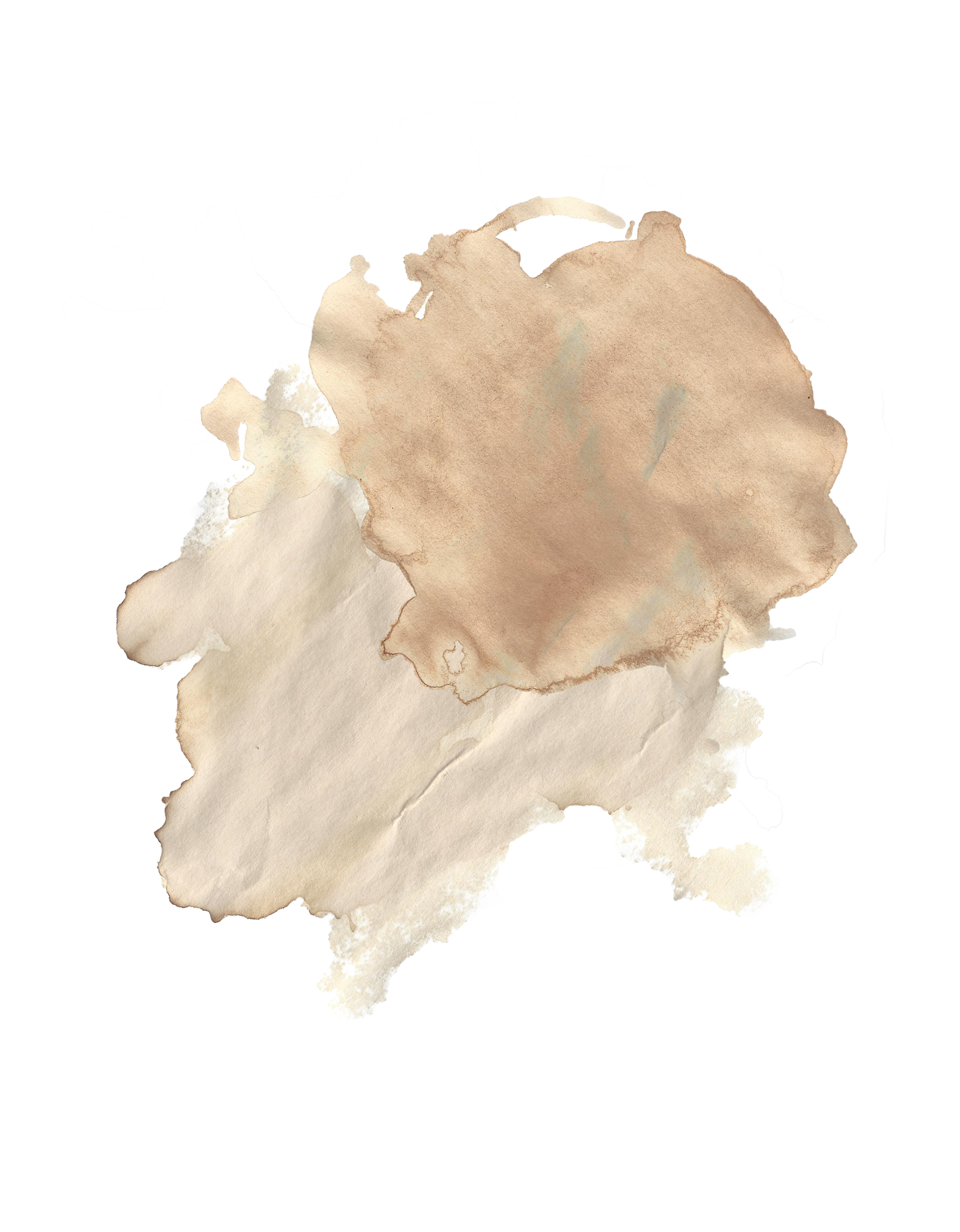


Black Speech
At 1st level, once per every short rest, as an action, you target one creature who is 10ft. of you, and can hear you, that creature takes 1d4 points of psychic damage. Alternatively, you can decide to instead have every creature with 20ft. of you and who can hear you take 1d4 points of damage. Creatures that are deaf are immune to this ability.
At 6th level this becomes the Enhanced Black Speech feature. You gain an additional usage of your Black speech Feature per short rest, as well as an additional d4. At 10th level, you gain one additional usage per short rest, and your d4s become d6s, and you may use this feature as your reaction instead of your action. At 18th level your d6s become d8s, and you gain a third d8, the range increases to 30ft., you may use it as your reaction or bonus action instead of using your action.
You also become able to read, write, and speak Undercommon and Deepspeech at first level
Unnatural casting
At 1st level you can cast Prestidigitation and Thaumaturgy cantrips at will. When doing so, you choose to use either Charisma, Intelligence, or Wisdom. Depending on the modifier used, different additional effects happen.
Wisdom v. Charisma: If turned the creature must move as far away from you as possible, up to its movement speed, while also being able to dash, or simply use the dodge action if there’s nowhere to move. If frightened, the creature is unable to attack or move in your direction for one minute. Regardless, the creature can’t take reactions.
Intelligence v. Wisdom: If turned, the creature moves in any direction using any means available to it. It cannot willingly move into 30ft of your position for 1 minute. If frightened, the creature is unable to move or take actions for 2 of its turns. Regardless, any creature affected cannot attack you in any way during the turn it is affected by this feature.
Charisma v. Intelligence: If turned, the creature must use any and all means available to it to move away from you, for 1 round. If frightened, the creature randomly moves away from you in any direction regardless of terrain or dangers. Regardless, if the saving throw was a critical failure, the creature will attack any other creature in its immediate path.
You may only use this feature once per long rest, you may not decide what creatures are affected by this feature, and any creature affected by this feature gains immunity to it until your second long rest after the use of this feature. Additionally, if attempting to frighten a creature, it has advantage on the saving throw. Additionally, if a Cleric or Paladin were to use one of their turn features, you become a valid target for it, and must make a Wisdom save to avoid being turned. Upon a failure, you are turned and affected by the listed effects of being under the condition. You are considered vulnerable to being turned. You may choose which saving throw v. skill check option to use.




Telepathy
Starting at 1st level, your alien knowledge gives you the ability to touch the minds of other creatures. You can communicate telepathically with any creature you can see within 30 feet of you. You don't need to share a language with the creature for it to understand your telepathic utterances, but the creature must be able to understand at least one language.
At 7th level this becomes the Enhanced Telepathy feature. You gain the ability to strengthen your telepathic powers, allowing you to use an action to allow the creature you’re communicating with to respond. At 14th level, you can use your Black Speech feature in conjunction with this one-overcoming the immunity of deaf creatures-, as well as being able to set up a link with up to 3 seperate creatures, which allows you to communicate, or use your Black Speech Feature, with/on them at the same time. Additionally, you no longer have to use an action to allow a creature you are communicating with to respond, as well as allowing a creature that does not understand a language to understand you.
Eldritch Emergence
At 3rd level, the alien energies merged into your body have begun to truly manifest. Choose Occultist, Mad speaker, Cosmic scholar, Serene Wanderer, Insane Maker, Guardian of the Gate,Black Summoner, Good Hunter, Fanatical Crusader, Rapturous Prophet,Twisted Artisan, Aberrant of Flesh, or Duel Warped, all detailed at the end of the description.Your choice grants you features at 3rd level and again at 6th, 12th, 16th, and 20th level
Tainted Soul
At 7th you gain advantage against being frightened, and can use the Unnatural Presence feature one additional time at the cost of being unable to take any other actions that round and 2d6 psychic damage.
You may alternatively decide instead to goad up to 4 hostile creatures into temporary madness, allowing them to take a savage attack-the savage attack deals double damage-at disadvantage during their turn.
Additionally, you show up as evil if the Detect Good and Evil spell is used, regardless of your actual alignment. You are no longer considered being vulnerable against being turned.
Additionally, you gain proficency in Charisma saves.
Tainted Mind
At 10th level you cannot be frightened, and you gain advantage against being charmed or turned. You also gain advantage against having your mind read, and can block out attempts at telepathic communication, except by creatures of a higher level or C.R. to your level in this class, as well as resistance to psychic damage, except when taken by a feature in this class.
Additionally, you may attempt to, as an action, infect others with your madness temporarily. If you decide to do so, the creature must make a saving throw contested by a skill check. If the creature fails, it is afflicted with the same type of insanity as you are until your next long/short rest, as well as the additional affects below. If it succeeds, nothing happens and the creature gains advantage on all attacks against you and becomes hostile if it is not already.
Wisdom v. Charisma: The creature’s madness causes it to act erratically, with it randomly taking actions with no regard for strategy, including attacking allies or running away. It may also take one action outside of its turn on a 50-50% chance. The DM has full discretion of the creature's actions.
Intelligence v. Wisdom: The creature’s intelligence score drops to ½ of what it currently is, rounded up. Additionally, due to its madness, it is temporarily unable to comprehend any language in speech or writing for 1 minute.
Charisma v. Intelligence: The creature is considered charmed for 1 of your turns, where it will follow any command given to it, including attacking friendly allies or creatures considered friendly to it, dropping whatever it is holding, or self-harm. However, after the end of the 1 turn it has an open pathway to your mind, allowing it to have advantage against being attacked, frightened, charmed, persuaded, or deceived by you. Additionally, it takes 2 d6 points of psychic damage.
You may only use this feature once per long rest. You may choose which saving throw v. skill check option used.
Tainted Mind
At 10th level you cannot be frightened, and you gain advantage against being charmed or turned. You also gain advantage against having your mind read, and can block out attempts at telepathic communication, except by creatures of a higher level or C.R. to your level in this class, as well as resistance to psychic damage, except when taken by a feature in this class.
Additionally, you may attempt to, as an action, infect others with your madness temporarily. If you decide to do so, the creature must make a saving throw contested by a skill check. If the creature fails, it is afflicted with the same type of insanity as you are until your next long/short rest, as well as the additional effects below. If it succeeds, nothing happens and the creature gains advantage on all attacks against you and becomes hostile if it is not already.
Wisdom v. Charisma: The creature’s madness causes it to act erratically, with it randomly taking actions with no regard for strategy, including attacking allies or running away. It may also take one action outside of its turn on a 50-50% chance. The DM has full discretion of the creature's actions.
Intelligence v. Wisdom: The creature’s intelligence score drops to ½ of what it currently is, rounded up. Additionally, due to its madness, it is temporarily unable to comprehend any language in speech or writing for 1 minute.
Charisma v. Intelligence: The creature is considered charmed for 1 of your turns, where it will follow any command given to it, including attacking friendly allies or creatures considered friendly to it, dropping whatever it is holding, or self-harm. However, after the end of the 1 turn it has an open pathway to your mind, allowing it to have advantage against being attacked, frightened, charmed, persuaded, or deceived by you. Additionally, it takes 2 d6 points of psychic damage.
You may only use this feature once per long rest. You may choose which saving throw v. skill check option used.
Tainted body
At 14th level you are immune to being poisoned, and to disease, you also may have one additional point of fatigue before death. You have resistance to spells of 4th level or lower, and the effects of healing spells of 4th level or lower are halved. Additionally, if you were to drop to 0 hit points, you drop to 1 instead.
Aberrant Blood
At 18th you have immunity to psychic damage except when it is caused by a feature from one of your Eldritch Emergences, as well as resistance to radiant and necrotic damage. You are completely unaffected by spells of 3rd level or lower, and have resistance to spells of 4th level to 6th level, with the effects of spells of 4th to 6th level being halved, including effects that grant temporary hit points and healing. You are completely unaffected by illusions.
Eldritch Emergences
All of the Star touched eventually reach a point where their powers mutate suddenly, or gain control over the chaotic energies infecting thier bodies. This point is reached at 3rd, where the Star Touched's choices manifest in a chosen emrgence.









The Occultist
ccultists are the oldest of the Star touched. Not necessarily in age, but rather for how long they have existed. They are incredibly similar to both Clerics and Warlocks, so much so that they could be considered a combination of the two. They worship the Great Old Ones, yet have bound themselves to the one they have made contact with, causing a strange gift of willing gained magic. They are truly connected to the Great Old Ones, as opposed to simply using their knowledge to siphon power off of their “gods”.
As occultists have a connection that is far deeper than that of a pact, they have gained abilities greater than that of a pact, but are not truly cared for despite their worship. They are often not the most lawful or stable of individuals, nor are they most moral. It is next to impossible to find a truly heroic occultist, as most are simply too far gone for them to even comprehend being so. At best, they will be completely self-centered, but not actively malicious, though even these case are rare. After all, worshipping beings alternatively called the “Elder evils” leaves little to ponder about.







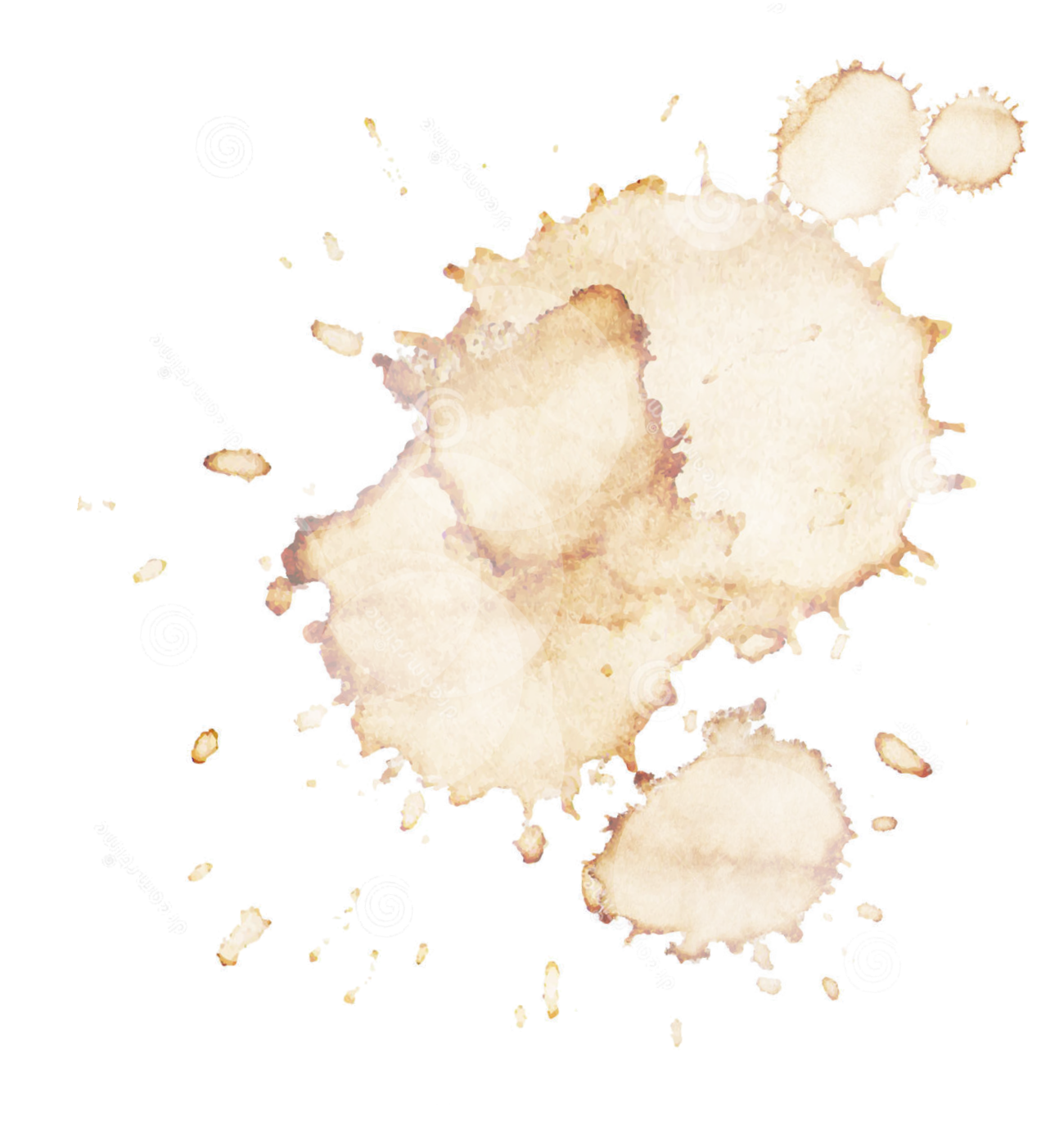
Eldritch Blasphemies
Your deep bond to the Great Old Ones has given you a unique ability to use spells.
The Eldritch Blasphemies feature does not count as The Spellcasting or Pact Magic features, it is different, menaing you simply add the features of it if you have either the Spell casting feature, Pact Magic feature, or both.
Cantrips
When you choose this Eldritch Emergence at 3rd level you gain the minor illusion and one additional cantrip of your choice from the Occultist spell list. You learn additional Occultist cantrips of your choice at higher levels, as shown in the Eldritch Blasphemy list.
Spell Slots
The Occultist table shows how many spell slots you have. The table also shows what the level of those slots is; all of your spell slots are the same level. To cast one of your Occultist spells of 1st level or higher, you must expend a spell slot. You regain all expended spell slots when you finish a short or long rest. Alternatively you may decide to take 1d4 psychic damage to cast a spell of 3rd level or lower, with an additional d4 being added for every level above 4th to a maximum of 4. This damage cannot be mitigated in any way.
You prepare the list of occultist spells that are available for you to cast, choosing from the occultist spell list. When you do so, choose a number of occultists spells equal to your Intelligence modifier + your occultist level (minimum of one spell). The spells must be of a level for which you have spell slots.
You can change your list of prepared spells when you finish a short or long rest. Preparing a new list of Occultist spells requires time spent in prayer and meditation: at least 1 minute per spell level for each spell on your list.
Dark Grimoire
You have a book constructed from various materials that were readily available, or painstakingly sought after. Any spells that you have prepared are written within its pages, and it serves as the bearer of all of your secrets from your insights and research into your aberrant powers. If a creature other than you were to read its pages, they would immediately become insane, but would gain one of the spells you have prepared and can cast it in the same ways you can. It also serves to contain any rituals you may wish to have readily available.
If you ever lose your Grimoire, you spend 2 hours constructing a new amidst a dangerous ritual while surrounded by a magic circle inscribed using a sentient humanoids blood. You must have some kind of material to serve as its pages, whether that be paper, skin, or cloth, something to use as its cover- wood, leather, bone-, and something to use as its inks, be it actual ink, or blood. Finally, after the completion of your new Grimoire, you must take 2d6 points of psychic damage, and temporarily suffer from an additional insanity effect, rolled for randomly. This lasts until your next long rest, however, your spells have all effects doubled during this period as well, and you remove 1d4 when casting without a spell slot, but you also do not gain any advantages of resting from the period of time spent constructing the Grimoire. You start off with a Grimoire when you choose the Eldritch Emergence at 3rd level, representing how you have already taken the measures necessary for such a time.
Spells Known
Like any ofthe faithful, you know all of the spells on the Occultist spell list, however, you have the ability to learn spells outside of your spell list. To do so, you must first encounter the spell, and then spend at least an hour studying the spell before copying it down into your Grimoire. Alternatively, if you find a Wizard’s spell book, or a Warlock's Book of Shadows, you may copy the spells written within them inside of your Grimoir, but you must spend two hours and spend 1000gp for the required rare inks and materials to do so. Alternatively, you may spend only a half hour if you are tutored by an individual who already knows the spell. Finally, depending on what class the spell you learned from was, you must use that class’s spell casting modifier: Charisma for bard, sorcerer, or warlock; Wisdom for cleric or druid: or Intelligence for wizard.
The spells still count as Eldritch Blasphemies for you, and the extra effects each modifier gives still apply.
Spell casting ability
Unlike other classes, you decide to freely switch between using Intelligence, Wisdom, or Charisma for your spellcasting modifier. The power of your spells come from your connection to the Great Old Ones, as opposed to your knowledge which comes from your devotion to them. You choose any of the ability modifiers when a spell refers to your spellcasting ability. Depending on the modifier used for when casting a spell, different effects are added to the spell.
Spell save DC= 8 + your proficiency bonus + Intelligence/Wisdom/Charisma modifier Spell Attack modifier- your proficiency bonus + Intelligence/Wisdom/Charisma modifier
Intelligence: The spell has its effects doubled, or if it is an illusion, if someone tries to perceive through it, they must make a Charisma saving throw. They take a1d8 psychic damage on a failure and half that on a success. If you cast using your Intelligence modifier without using a spell slot, you take 1d8 psychic damage instead of 1d4
Wisdom: The spell may deal a different damage type if offensive, or if it is an illusion, its effects last for double the amount of time they normally would.
Charisma: You may cast two spells instead of one so long as both take 1 action, or if it is an illusion, if a creature interacts with it, they must make a Wisdom saving throw or suffer from being frightened for 1 minute. If you cast without using a spell slot using your charisma modifier, you take 1d6 psychic for every additional spell you cast along with the normal 1d4 for the first spell.
Ritual casting
You can cast an occultist spell as a ritual if that spell has the ritual tag and you have the spell prepared.
Spell casting focus
The Dark Grimoire serves as your focus for your spells.

The Occultist
| Level | Cantrips Known | Spells slots | Slot level |
|---|---|---|---|
| 3rd | 2 | 1 | 2nd |
| 4th | 2 | 1 | 2nd |
| 5th | 3 | 1 | 2nd |
| 6th | 3 | 1 | 2nd |
| 7th | 3 | 2 | 2nd |
| 8th | 3 | 2 | 3rd |
| 9th | 4 | 2 | 3rd |
| 10th | 4 | 2 | 3rd |
| 11th | 4 | 2 | 3rd |
| 12th | 4 | 2 | 4th |
| 13th | 5 | 2 | 4th |
| 14th | 5 | 2 | 4th |
| 15th | 5 | 2 | 5th |
| 16th | 5 | 2 | 5th |
| 17th | 6 | 3 | 6th |
| 18th | 6 | 3 | 6th |
| 19th | 6 | 3 | 7th |
| 20th | 6 | 3 | 8th |
Chaotic casting
Starting when you choose this Eldritch Emergence at 3rd level, your spellcasting can unleash surges of untamed magic. Immediately after you cast an occultist spell of 1st level or higher, the DM can have you roll a d20. If you roll a 1, roll on the Wild Magic Surge table to create a random magical effect. Alternately, you may use percentile die where a d6 is used, and if you roll a 1 or 6, you have a Wild Magic Surge.
Cursed sight
When you choose this Eldritch Emergence at 3rd level, you gain these abilities
- You can peer through a shapeshifter’s disguise and tell whether or not they are in their true form, but you cannot see their true form.
- You are now able to tell if there is an illusion active, but you may not be able to peer through it.
- You may decide to grant yourself advantage in insight(wis.) once every long rest.
- You may decide to be able to ignore half and partial cover, when casting a spell once every long rest
Blightful Presence
When you choose this Eldritch Emergence at 3rd level, you gain the ability to sap the land of life. Once per day, during a short or long rest, you may go through a dark ritual that creates a death spot around you. All plant life within 10ft. around you dies, you may roll a d10, you gain that many temporary hit points. Alternatively, you may enter into the dreams of a random humanoid around you or a humanoid known to you, and if you so wish you may drain their mental fortitude, granting you one additional temporary spell slot. However, doing this severely harms the humanoid, causing them to take 1d10 psychic damage. The result is by a percentile dice roll. Additioanly, you may cut yourself to give 1d poision damage to your spells. You take 1d4 slashing damage.
Eldritch Revelations
At 6th level you may take 3 Invocations from the Eldritch Invocation list from the warlock class. You change which invocations you have every long rest.
Weave Rending
Starting at 6th level, you can attempt to cast a spell you don’t have prepared. When you use this ability, you use your action and choose one of the following options:
- Roll on the Reckless Casting table for cantrips and cast the resulting spell as part of this action.
- Expend a spell slot and roll twice on the Reckless Casting table for its level, or the 5th-level table if the slot is 6th level or higher. Pick which of the two results you want to use and cast the resulting spell as part of this action.
If the spell rolled isn’t an occultist spell, it nonetheless counts as an occultist spell for you.
Arcane awakening
By 12th level, you have plundered magical knowledge from the unfathomable. Choose two spells from any class, including this one. A spell you choose must be of a level you can cast, as shown on the Occultist table, or a cantrip.
The chosen spells count as an occultist spells for you.
You may choose an additional two at 16th level.
Blood Bound Spells
At 12th level you may choose two 4th level spells from the occultist list, those spells are always considered prepared and do not count against the number of spells prepared, you may also cast them once per long rest without using a spell slot and without rolling for any damage.
You may choose 1 6th level spell for this feature at 16th level, and 1 9th level spell at 20th level.
Feast for the Old Gods
Once per day you may bring an avatar of the Great Old Ones into your plane of existence via a ritual, The ritual 12 hours of uninterrupted chanting within a magical circle drawn in the blood of a freshly killed sentient humanoid, desecrated relics worth 25,000,000 gp, a dried octopus, the eyes of a fish, a pile of fine leather worth 5,000 gp, a vial of your blood and the death of either a trusted friend or a young innocent. The Ritual consumes the given materials, with the sacrifice having its soul consumed by the Avatar. The Avatar uses the same state block as a Kraken but with the following changes:
- Its creature type changes to Gargantuan Aberration
- It is able to use Eldritch Blasphemies and can innately cast any Illusion on the occultist spell list, Dissonant Whispers, Arms of Hadar, Tasha's Hideous Laughter, Crown of Madness, Hunger of Hadar, and Psychic Scream. It may use its Intelligence, Wisdom or Charisma modifier as its casting modifier and shares the same extra effects that you get when using each one, this also replaces the Kraken’s innate casting feature
- It has a flying speed equal to its swimming speed
- It has an aura that reduces any bright light in a 30-foot radius around it to dim light. Creatures within 10 feet of it must each succeed on a Charisma saving throw (DC 8 + its proficiency bonus +its Charisma modifier) or become frightened of it until the end of your next turn. Whenever an enemy that is frightened by it starts its turn in the aura, it takes 4d10 psychic damage.
The Avatar is considered neutral to you, and unfriendly to your allies, but it will avoid attacking you-it may even attempt to protect you to prolong it’s stay- if possible unless sufficiently provoked, nor will it actively attack any allies of yours unless it is threatened, or feels threatened in any way. It is actively hostile towards anything else. Its actions are completely controlled by the DM as you have absolutely no control over it. Anything killed by the Avatar has its soul consumed and cannot be revived by anything sort of a Wish. If the ritual is interrupted, you lose half of your hit points and take an additional 2d8 psychic psychic damage. The Avatar stays on your plane of existence for 1 hour.












The appearance of the Avatar is completely dependent on the player and/or the DM. Is it a mass of ooze with ever shifting and growing limbs, extremities, and organs that are reabsorbed just as quickly as they appear, does it look like one of the Eldrazi or maybe it looks like a more traditional Old One from the Lovecraft mythos, it could even look like one of the Great ones from BloodBorne. It is highly suggested, however, that the avatar share some kind of immediate similarity to the Great Old One that you had been in contact with.
The Mad Speaker
Pitiful beings, those who speak madness itself are invariably mad themselves. There is no hope for light in these soulless husks. They seemingly have only one purpose in life, and that is to spread the madness within themselves to others. There is no hope for these individuals, it would be a mercy to put them down.
Mad Speakers are in no way heroic in any sense. The best one could hope for when dealing with one is that they follow some kind of semblance of a code. However, this is incredibly rare, and most are firmly chaotic evil. Their insanity is actively malicious, and their views on camaraderie are nonsensical at best. More like rabid dogs than actual, thinking, humanoids, they are surprisingly hard to put down.

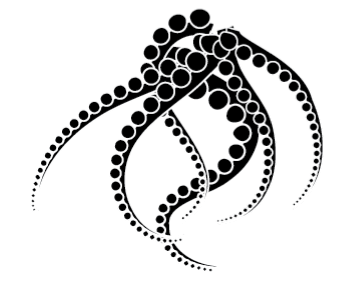
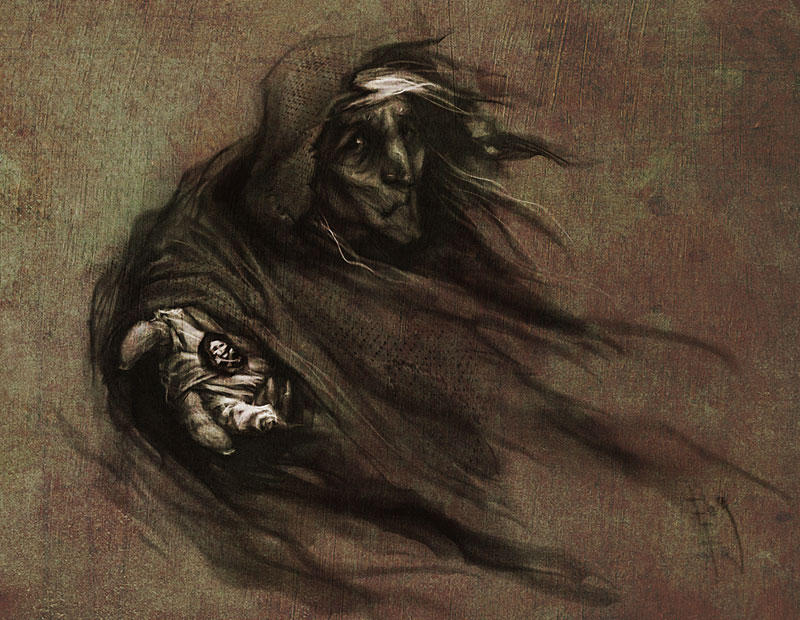





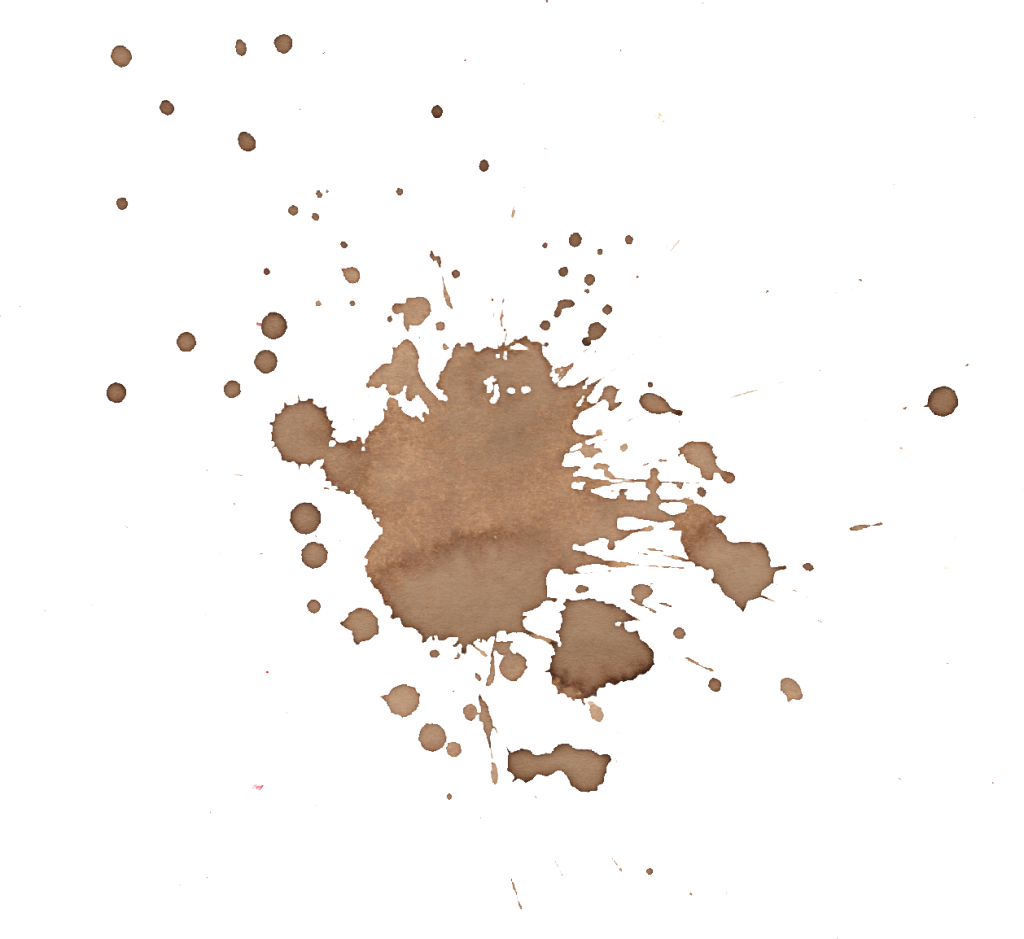


Untold Depths of Madness
When you choose this Eldritch emergence at 3rd level you must pick an 2 additional symptom of insanity found within the DM’s guide book.
It is imperative that one speaks with their DM about playing this sub-class, due to its volatile nature, and the fact that you are even more insane than you normally would be playing this class.
Bonus Proficiencies
When you choose this Eldritch Emergence at 3rd level you become proficient in unarmed attacks. Additionally, you may make one unarmed attack as a bonus action whenever you take the attack action. Also, you may decide to use your nails instead of your fist for 1d4 slashing damage, or your teeth for 1d4 piercing damage.
An unknowable mind
When you choose this Eldritch Emergence at 3rd level, the damage to your mind is so great it is truly a wonder as to why you are not dead. If a creature were to attempt to enter your thoughts unwillingly it would suffer 1d4 psychic damage, though it may still succesfully enter it. Additionally, you have resistance to being charmed and you can not be forced to dream, but you can still be forced to sleep.
Madness itself
When you choose this Eldritch Emergence at 3rd level, as an action, once per short or long rest you may go on a tirade of utter insanity. During which you may decide to do one of three options
- You attempt to stir every creature within 10ft of you into a brief moment of insanity, each creature in range who can hear must make a saving throw contested by a skill check:
Wisdom v. Charisma: Any creature that fails its saving throw is considered charmed by you until the end of the next turn, upon which you may order any charmed creature to do any one thing to the best of its ability. Afterwords, it is considered hostile toward you.
Intelligence v. Wisdom: Any creature that fails its saving throw is driven mad with fear for 1d4 turns, where 4 is rerolled. During this amount of time, every creature currently under the fear condition will randomly dash in any direction, where it will attack any other creature that attempts to stop until it can move away from the obstruction.
Charisma v. Intelligence: Any creature that fails its saving throw suffers 2d8 psychic damage, and if it was a critical failure, is driven insane. This saving throw is made with advantage.
- You spend 1 minute giving a speech to any friendly creatures who can hear you. At the end of this speech they must make consecutive Intelligence, Wisdom, and Charisma saving throws, Upon a success they gain advantage against being charmed, and dispelling illusions, but gain vulnerability to the fear condition. Upon a failure, they gain immunity to the charmed, and fear conditions. They cannot be incapcitated except by magical means, as well as having advantage on one attack per turn. But they will automatically fail any Intelligence, Wisdom, and Charisma saving throws, and skill checks, while also being forced to make a melee attack at disadvantage, but double attack if an enemy is within 5ft of them. If they miss, the attacked enemy has advantage on its next attack against its aggressor. Friendly creatures may choose to fail the saving throws willingly, and the effects last for 2 minutes. In order for the effects to take place, they must fail, or succeed on all three saves, otherwise, nothing happens
- You spend 1 minute ranting at any neutral, unfriendly or hostile creatures in range and who can hear and understand you. They must all make consecutive Intelligence, Wisdom, and Charisma saving throws, Upon a success they gain advantage against being charmed, and dispelling illusions, but gain vulnerability to the fear condition. On a failure they are driven mad for 1d6 turns. During this period of time, any creatures that failed their saves become violently hostile to anything they can see. They become unable to distinguish between friend and foe, and they will actively seek out other creatures to attack. They gain immunity to the charmed, and fear conditions. They cannot be incapcitated except by magical means, as well as having advantage on one attack per turn. All creatures affected must fail or succeed on all three saves for these effects to take place, otherwise nothing happens.
Deaf creatures are immune to this ability, and all creatures must be able to understand you to be affected by this feature.
Forked tongue
At 6th level, you learn to infuse innocent-seeming words with an insidious magic that can inspire terror.
If you speak to a humanoid alone for at least 1 minute, you can attempt to seed paranoia and fear into its mind. At the end of the conversation, the target must succeed on a Wisdom saving throw against your spell save DC or be frightened of you or another creature of your choice. The target is frightened in this way for 1 hour, until it is attacked or damaged, or until it witnesses its allies being attacked or damaged.
If the target succeeds on its saving throw, the target has no hint that you tried to frighten it, and you take 2d6 psychic damage.
The target must be able to understand you to be able to be affected by this feature.
Once you use this feature, you can’t use it again until you finish a short rest or long rest.
Sharp as a blade
Also at 6th level, you learn how to use your wit to distract, confuse, and otherwise sap the confidence and competence of others. When a creature that you can see within 30 feet of you makes an attack roll, an ability check, or a damage roll, you can use your reaction to impose disadvantage on it. You may only use this feature three times per long rest.
Hallucinatory words
At 12th level, you become able to cast phantasmal terror innately once per long rest without using material components.
Pain Fueled Madness
At 12th level, once per long rest, you may go through a trial of extreme self mutilation. You tear your flesh from youself and delve deeper into the maelstrom of your mind than any should go. You take 2d10 points of slashing, bludgeoning, and piercing damage, as well as 1d6 of psychic damage. This damage cannot be mitigated in any way. Afterwards, you regain all of your uses on all of your Eldritch Emergence features.
Dissociation of Mind and Body
At 16th level you can dissociate yourself from your body, causing you to lose your fear of harm and death. On your turn, you can dissociate yourself as a bonus action.
While dissociated, you gain the following benefits if you aren't wearing medium or heavy armor:
- You have advantage on Constitution saving throws
- You have resistance to bludgeoning, piercing, and slashing damage
- You cannot be incapacitated except by magical means or by falling to 0 hit points
- If you were to drop to 0 hit points due to an attack or spell, you can make a Charisma saving throw (DC 5 + the damage taken). On a success, you instead drop to 1 hit point. You can't use this feature if you are reduced to 0 hit points by a critical hit.
- You gain a +20 to your movement speed
Your dissociation lasts for 1 minute. It ends early if you haven't used any of your Eldritch emergence features or if your turn ends and you haven't attacked a hostile creature since your last turn or taken damage since then. You can also end your dissociation on your turn as a bonus action.You may dissociate a total of 5 times before you may do so again. If you have dropped to 0 hit points while dissociated or leave your dissociation with half or below your total hit points, you gain 3 levels of exhaustion and your walking speed is halved.
Insane Mutterings
At 16th level you can now whisper your insanity into the very minds of those unfortunate enough to cross your path. Deaf creatures are no longer considered immune to your features, and creatures no longer have to understand you to be affected by them.
The Death Chant of the Black Storm
At 20th Level, once per day, you may enter into the death chaint. While in the death chaint, all living things within 60ft have all of their bodily fluids violently torn out. Only creatures of CR 5 or higher, as well as level 3 or higher are immune to immediate death, but take 2d10 force damage for every turn that they are in range of the death chant’s area of effect. The death chant lasts for 1 hour, and if you are interrupted, eather by being incapacitated, being grappled, or succesfully being hit by a spell or attack, the death chant will collaspe inward onto you, forcing its affects on you and killing you outright and instantly.










The Cosmic Scholar
Individuals that have choosen a very different path when compared to most others, they have taken to their experience in an odd way. Driven to learn all they can about the beings they had come into contact with, they fail to see the possibility of delving deeper into insanity.
Cosmic Scholars are not necessarily evil, but are rather obsessed with finding out how such beings like the Great Old Ones could exist, and why they have not become the rulers of everything yet. Their madness compels them to search for forbidden pieces of information in any area, to the point that they don’t seem to actually care what happens to them in the search for such knowledge. Their reasons for this varies as well, perhaps they are trying to keep the Elder Evils out of the material plane, perhaps they are trying to ascend into being a new being, learn the secrets of the universe, gain control every the spawn of the beings, or maybe they are simple being manipulated into seeking out these secrets without their knowledge, regardless of the cost.
Bonus Proficiencies
When you choose this Eldritch Emergence at 3rd level you gain proficiency in an Artisan’s Tools of your choice and Investigation, Insight, or Persuasion.
Unspeakable Communion
When you pick this Eldritch Emergence at 3rd level, you may go into a trance during a short or long rest. During this trance, you turn inward to the madness infecting your mind, and its origins, allowing you to gain certain bonuses.
- If this feature is used during a short rest, you cannot be ambushed and gain a brief premonince of the future. You cast Augury without needing to expend material components as a ritual
- If this feature is used during a long rest, you gain all of the advantages of it being used during a short rest, but you also gain either a +1 to your initiative, or to your Intelligence, Wisdom or Charisma rolls for 1 minute
You take 1d4 psychic damage after the rest, which cannot be mitigated in any way, and you may only use this feature a number of times equal to ½ your Intelligence modifier (minimum of once)



Reach of the stars
Starting at 3rd level, you gain the ability to call forth spectral tentacles that grab at your foes. As an action, pick a point you can see within 60 feet of you. A horde of grasping tendrils appears at that point. Creatures of your choice within 10 feet of that point must make a Strength saving throw. Creatures that fail their saving throws are grappled for 1 minute or until you use this ability again. The spectral tentacle's Strength (Athletics) bonus is 2 + your proficiency bonus and its reach is 10 feet. You may only use this feature a number of times equal to your wisdom modifier (minimum of once ) every short rest.
Lashing of the stars
At 3rd level, you gain the ability to summon a spectral tentacle that strikes at your foes. As a bonus action, you create a 10-foot-long tentacle that strikes out at a point you can see within 10 feet of you. When you create the tentacle, you can make a melee spell attack against a creature within 10 feet of it. On a hit, the target takes 1d8 bludgeoning or psychic damage (your choice when it takes the damage). When you reach 12th level in this class, the damage dealt by the tentacle increases to 2d8. You may use this feature a number of times equal to Charisma modifier (minimum of once) every short rest.
Hold of the stars
At 6th level you gain the ability to start manipulating the battlefield to your and your companions advantage. You summon a spectral tendril to grab one creature that is at a maximum of one size larger than you, is within your line of sight, and is at a maximum of 20ft. from you. It must make either a dexterity (Acrobatics) save, or a strength (Athletics) save, whichever is higher. Upon a failure, the creature is moved 10ft. in any direction that you can see, after which it has its movement speed halved until the next turn. You may use this feature a number of times equal to ½ your level in this class (rounded down) every short rest.
Bloodletting
Also at 6th level, you can decide to roll 1d6, if you do, you take the rolled number in slashing damage. After words, you gain one additional usage of any feature in this Eldritch emergence. You may only use this feature once every long rest.
Wrath of the stars
At 12th level you may bring the anger of the stars in its entirety down upon your foes. A horde of spectral tentacles appear above any space you pick within 60ft. of you. This horde then batters every creature within 20ft. of them, dealing 2d8 bludgeoning and psychic damage. You may use this feature only once every long rest.
Welding of flesh and bone
Also at 12th level you gain the ability to heal others, at a potential cost. You gain a healing pool equal to your level in this class + 3. As an action, you can touch a creature and draw power from the pool to restore a number of hit points to that creature. up to the maximum amount remaining in your pool.
Alternatively, you can expend 3 hit points from your pool of healing to cure the target of one disease or neutralize one poison affecting it. You can cure multiple diseases and neutralize multiple poisons with a single use of this feature, expending hit points separately for each one.
This feature has no effect on undead and constructs. Additionally, everytime you heal a creature with this feature they must make a Wisdom save at advantage. On a failure, the creature takes 1d8 psychic damage that cannot be mitigated in any way.
Tearing of the fabric
At 16th level you have gained the ability to manipulate the battlefield in unprecedented ways. As an action you may choose one of the following for the following effects:
- You summon two spectral tentacles that appear in any space that you can see and is in 60ft. Above you. The tentacles have a reach of 10ft and attack any hostile creature that enters into its range and deals psychic and bludgeoning damage. It uses a d6 for damage and adds your Wisdom modifier to the hit. You may change the position of one tentacle as a bonus action, andWhen you or a creature you can see takes damage while within 10 feet of the tentacle, you can use your reaction to choose one of those creatures and reduce the damage to the chosen creature by half. After doing so, the tentacle vanishes. Otherwise, the tentacle last for 1 minute.
- You summon spectral tentacles that fill a 20-foot square of ground that you can see within 30ft. of you. For the duration, these tentacles turn the ground in the area into difficult terrain.
- Inky pools of darkness, of varying sizes, with tiny, ebony, writhing tendrils, appear around and above you. In the center of these tendrils are yellowed, distorted eyes, each of which has 1 HP, and an Armor class of 10. So long as these eyes are present, you gain a +3 to your passive perception and cannot be flanked or taken by surprise. The eyes last for 1 minute, but they can be targeted for attacks. If all of the eyes are destroyed before 1 minute is up, you take 2d10 psychic damage. The amount of eyes spawned is equal to your Intelligence modifier.
- As an action, choose a point you can see within 60 feet of you. For 1 minute, a spectral maw manifests in a 10-foot radius centered on that point. The maw has a reach of 10ft., attacks any hostile creature that enters its range and uses your Charisma modifier to hit. Any creature that starts takes damage from the maw takes 3d6 psychic and piercing damage. As a bonus action, you may move the maw to a different position.
The amount of uses you have for this feature equals ⅓ of your Intelligence, Wisdom, and Charisma modifier added together and rounded down (minimum of once). Additionally, you may have 3 of the feature’s option active at the same time. You regain all uses at the end of a long rest.

True Enlightenment
Once per day, at 20th level, you can gain true enlightenment over the material universe, and bend it to your will. Inky black tendrils reach behind you and slip into your skull, then a massive eye appears high in the sky. A 90ft. bubble spreads from the eye in all directions, including underground. While in the bubble no spells can be cast, and every creature takes 2d10 psychic damage for every turn they are in it, including you. Additionally the ground in the space of the bubble is considered difficult terrain for all creatures except you and you are healed 2d10 at the end of every round that you are in the bubble. You have all options of your Tearing the Fabric feature active while inside of the bubble. Finally, if you die inside of the bubbly, your soul is devoured by one of the Great Old Ones, preventing revival from anything short of a Wish.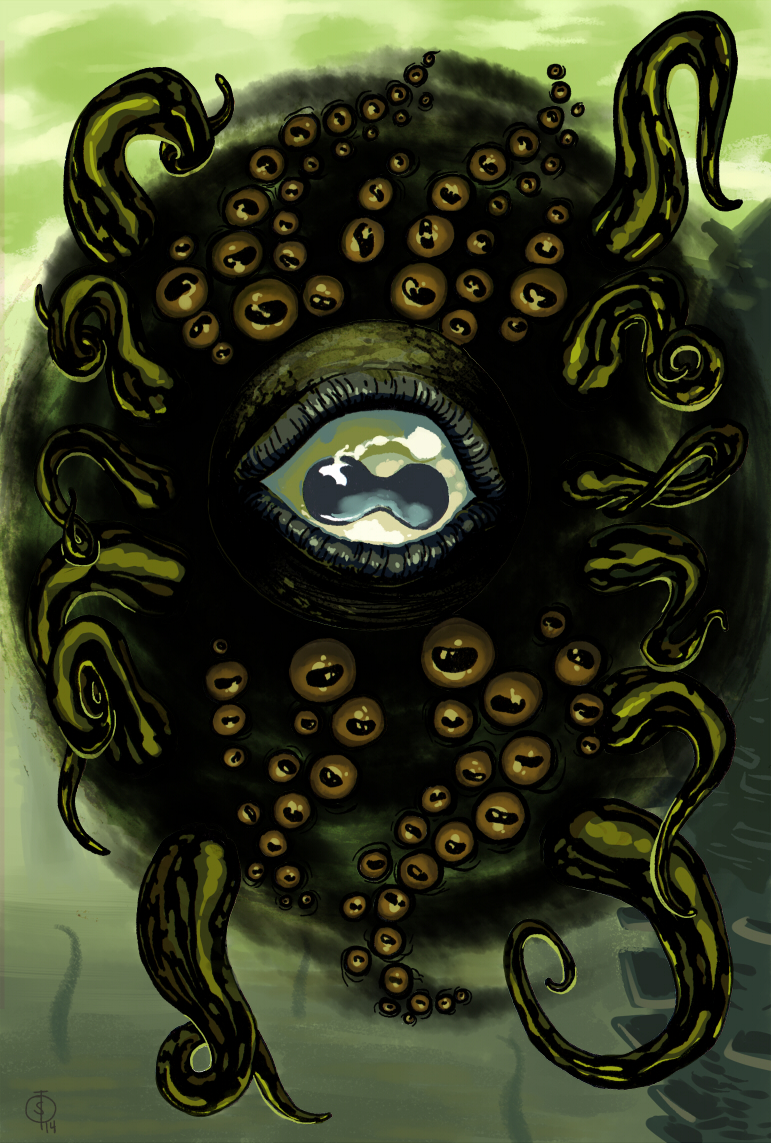




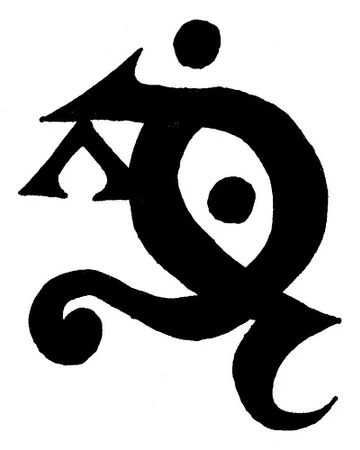
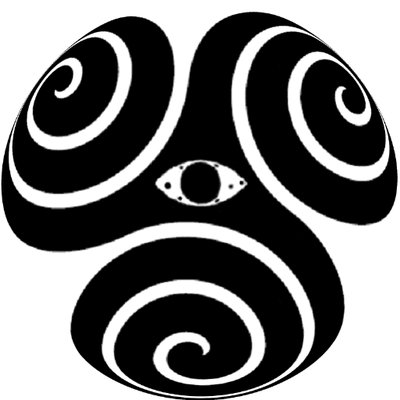
The Serene Wanderer
An oddity when it comes to those who have had such an intimate contact with the Aberrant gods, Serene Wanderers have been strengthened by their experience. Their minds have gradually healed, unlike most others, and have even expanded outward with their psionic abilities.
Serene Wanderers are one of the few Star Touched that have the capacity to truly be good. Heroic wanderers are not that uncommon, and most indeed end up there simply due to their unique experiences and the process that allowed them to heal in the first place. As a consequence of this unique mind set, they are determined to heal as many others as possible, or put down those who are simply too far gone. However, there are a few cases of Serene Wanderers deciding to withdraw from the world, not caring what happens either way, and even fewer who believe that their healing proves that they are superior to all others, leading them down a path of neutrality, or villainy.
A healed mind
Through long, and arduous self-reflection, restraint, and maybe even companionship, your mind has been able to recover from the hardship that brought your powers to you. Starting at 3rd level, you are no longer considered insane, nor suffer from any symptoms of insanity.
Bonus proficiencies
When you choose this Eldritch Emergence at 3rd you gain proficiency in any weapon with the finesse property, medium armor, and your choice of History, Investigation, Medicine, Perception, Performance, or Persuasion. Alternatively, you learn one language of your choice. When using a weapon that has the finesse property, you may use your Intelligence, Wisdom, or Charisma modifier, whichever is highest at any time, your choice if tied.


Enhanced Unnatural Casting
Your training in mind and body has increased your innate magical abilities. When you take this Eldritch Emergence at 3rd level your innate casting table expands. You immediately learn mage hand with the following alterations;
- The hand is always invisible
- You can stow one object the hand is holding in a container worn or carried by another creature
- You can retrieve an object in a container worn or carried by another creature
- You can use any tools that you are proficient with (if any)
Additionally, at 3rd level you also gain Healing Word, Calm Emotions Detect Thoughts, Telekinesis and Rary's Telepathic Bond at 12th level, and finally Telepathy at 16th
You may innately cast each spell below 4th level an amount of times equal to your Intelligence modifier (minimum of once) before having to take a long rest. You may cast each spell of 5th level once per long rest, and you may cast Telepathy once per day. You may use either your Intelligence, Wisdom, or Charisma modifier when casting, each of which gives an additional effect. You do not use the effects from the Unnatural Casting feature when casting mage hand, but the effects listed below, as you do with all of the spells listed in this Eldritch Emergence.
Intelligence: The spell has its duration doubled, or heals twice the rolled number, but it also takes your reaction.
Wisdom: The spell’s casting time changes to a bonus action but has its duration and effects cut in half.
Charisma: You may cast one extra spell so long as the casting time is 1 action by using your reaction and bonus action.
Ki
Starting at 3rd level, your training allows you to harness the mystic energy of ki. Your access to this energy is represented by a number of ki points. Your Serene Wanderer level determines the number of points you have, as shown in the Ki Points column of the Serene Wanderer table.
You can spend these points to fuel various ki features. You start knowing seven such features: Flurry of Blows, Patient Defense, Step of the Wind, One with the blade, Deft Deflection, Calculated Stance, and Strengthened spirit. You learn more ki features as you gain levels in this class.
- Flurry of Blows: Immediately after you take the Attack action on your turn, you can spend 1 ki point to make two unarmed strikes as a bonus action, in which case you use a d4 when rolling for damage.
- Patient Defense: You can spend 1 ki point to take the Dodge action as a bonus action on your turn.
- Step of the Wind: You can spend 1 ki point to take the Disengage or Dash action as a bonus action on your turn, and your jump distance is doubled for the turn.
- One with the blade: Immediately after you take the Attack action on your turn, you can spend 2 ki points to make an additional attack with your weapon.
- One with the blade: Immediately after you take the Attack action on your turn, you can spend 2 ki points to make an additional attack with your weapon.
- Calculated Stance: As an action you may spend 2 ki points to enter into a stance that allows you to make one attack against a creature in range that you can see with advantage
- Strengthened spirit: You can spend 3 ki points, then touch one friendly creature, that creature gains 5 temporary hit points, and if that creature were to be hit by a melee attack, the attacker gets dealt 1d6 radiant damage.
When you spend a ki point, it is unavailable until you finish a short or long rest, at the end of which you draw all of your expended ki back into yourself. You must spend at least 30 minutes of the rest meditating to regain your ki points.
Some of your ki features require your target to make a saving throw to resist the feature's effects. The saving throw DC is calculated as follows:
Ki save DC = 8 + your proficiency bonus + your Wisdom modifier.
Ki Points
| Level | Ki |
|---|---|
| 3rd | 3 |
| 4th | 3 |
| 5th | 3 |
| 6th | 4 |
| 7th | 4 |
| 8th | 4 |
| 9th | 4 |
| 10th | 4 |
| 11th | 4 |
| 12th | 5 |
| 13th | 5 |
| 14th | 5 |
| 15th | 5 |
| 16th | 5 |
| 17th | 5 |
| 18th | 5 |
| 19th | 6 |
| 20th | 6 |
Fighting Style
At 6th level, you adopt a particular style of fighting as your specialty. Choose one of the following options. You can't take a Fighting Style option more than once, even if you later get to choose again.
Dueling
When you are wielding a melee weapon in one hand and no other weapons, you gain a +2 bonus to damage rolls with that weapon.
Two-Weapon Fighting
When you engage in two-weapon fighting, you can add your ability modifier to the damage of the second attack.
Serenity die
- You can use a bonus action on your turn to choose one creature other than yourself within 60 feet of you who can hear you. That creature gains one Serenity die. Once within the next 10 minutes, the creature can roll the die and add the number rolled to one ability check, attack roll, or saving throw it makes. The creature can wait until after it rolls the d20 before deciding to use the Serenity die, but must decide before the DM says whether the roll succeeds or fails. Once the Serenity die is rolled, it is lost. A creature can have only one Serenity die at a time.
- You can expend one of your Serenity die to cause the weapon to deal extra damage to the target you hit. The damage equals the number you roll on the Serenity die. You also add the number rolled to your AC until the start of your next turn.
- You can expend one of your Serenity die to cause the weapon to deal extra damage to the target you hit and to any other creature of your choice that you can see within 5 feet of you. The damage equals the number you roll on the Serenity die.
- You can expend one of your Serenity die to cause the weapon to deal extra damage to the target you hit. The damage equals the number you roll on the Serenity die. You can also push the target up to 5 feet away from you. You can then immediately use your reaction to move up to your walking speed to an unoccupied space within 5 feet of the target.
- When you hit a creature with a weapon attack, you can expend 2 of your serenity die to deal extra psychic damage to that target equal to the number rolled. You can do so only once per round on your turn.
- You may expend one or more of your Serenity dice to heal a total of 6 friendly creatures that you can see and that are within 20ft. of you. The amount healed is equal to the combined numbers rolled, but a creature cannot be healed any more than half its total HP.
- You can use a bonus action on your turn to choose one creature other than yourself within 60 feet of you who can hear you. That creature gains one Serenity die. Once within the next 10 minutes, the creature can roll the die and add the number rolled to the damage dealt by an attack or spell.
Extra attack
Starting at 6th level, you can attack twice, instead of once, whenever you take the Attack action on your turn.
Dissociation of Mind and Body
At 16th level you can dissociate yourself from your body, causing you to lose your fear of harm and death. On your turn, you can dissociate yourself as a bonus action.
While dissociated, you gain the following benefits if you aren't wearing medium or heavy armor:
- You have advantage on Constitution saving throws
- You have resistance to bludgeoning, piercing, and slashing damage
- You cannot be incapacitated except by magical means or by falling to 0 hit points
- If you were to drop to 0 hit points due to an attack or spell, you can make a Charisma saving throw (DC 5 + the damage taken). On a success, you instead drop to 1 hit point. You can't use this feature if you are reduced to 0 hit points by a critical hit.
- You gain a +20 to your movement speed
If you are able to cast spells, you can't cast them or concentrate on them while dissociated, nor are you able to use ki points or serenity die
Your dissociation lasts for 1 minute. It ends early if you haven't used any of your Eldritch emergence features or if your turn ends and you haven't attacked a hostile creature since your last turn or taken damage since then. You can also end your dissociation on your turn as a bonus action.You may dissociate a total of 5 times before you may do so again. If you have dropped to 0 hit points while dissociated or leave your dissociation with half or below your total hit points, you gain 3 levels of exhaustion and your walking speed is halved.
Expanded Ki
At 16th level you gain these additional options for the use of your ki points.
- Flurry of blades: Immediately after you take the Attack action on your turn, you can spend 4 ki points to make two additional attacks as a bonus action.
- Disruption of Ki: If you make an unarmed strike against a creature, you can immiedatly spend 4 ki points to force a Constitution saving throw by it, which is contested by your Ki saving DC. On a success it takes 1d4 bludgeoning damage, on a failure, it is stunned for 1 round.
- Channeled flow of life: You can spend 4 ki points, then roll a d6, you gain that many temporary Hit Points.
- Harness the mind: As an action you can spend 5 ki points to cast one of your innately casted spells of 5th level one additional time per long rest.
- Practiced stroke: As an action you may spend 5 ki points, once you do, you make one attack against a creature in range of you, and if you hit, the creature can make a dexterity saving throw contested by your Ki saving DC, on a success it takes normal damage, on a failure it takes double of the weapon’s damage type.
- Soothed mind: As an action, you may spend 5 ki points to regain 1d4 to a maximum of 3 serenity die.
- ** Companion’s respite:** You can spend 6 ki points to have all friendly creatures within 10 ft. of you gain an extra action this turn.
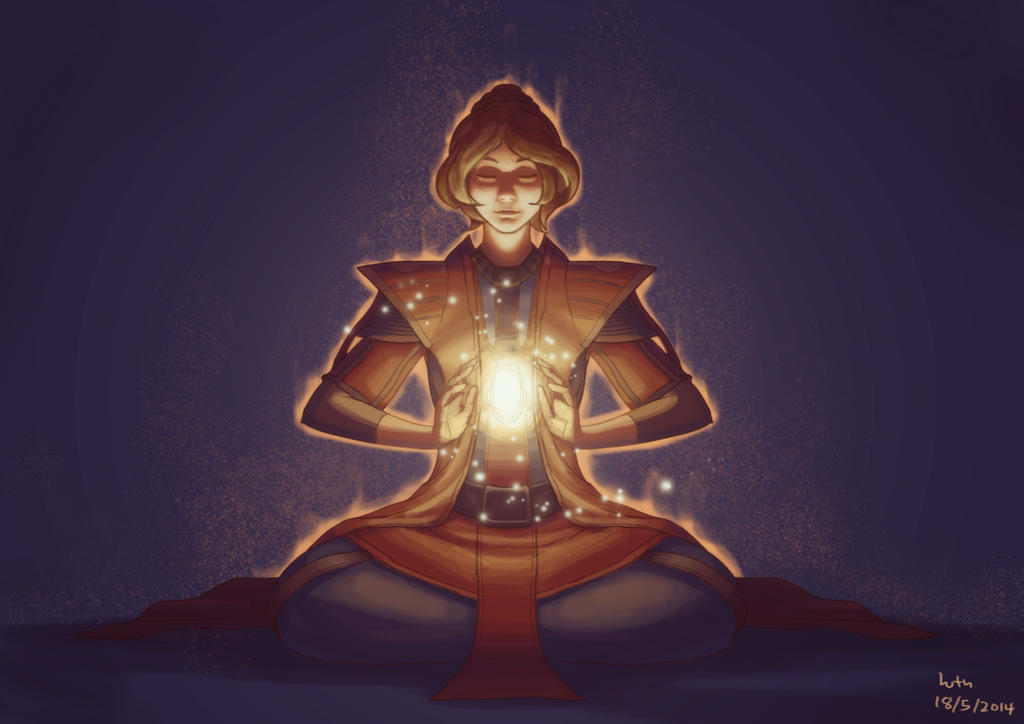


State of emptiness
Once per day, at 20th, you may enter into a state of pure emptiness. You may disassociate yourself and be able to cast and concentrate on spells if you can you are able to, and you can use your ki points as well as your serenity dice while in a dissociated state. While you are using this Feature, and are dissociated, you gain the following abilities:
- Telekinetic Manipulation: If the target is a creature that is Medium or smaller, it must succeed on a DC 12 Strength saving throw or be moved up to 30 feet directly away from you.
- Advanced Telepathy: You can perceive the content of any telepathic communication used within 60 feet of you, and you can't be surprised by creatures with any form of telepathy.
- Telepathic Shroud: You are immune to any effect that would sense your emotions or read your thoughts, as well as all divination spells.
- Psychic stab: The target must succeed on a DC 13 Intelligence saving throw or take 6d6 psychic damage.
- Mind Blast: You emit psychic energy in a 20-foot cone. Each creature in that area must succeed on a DC 15 Intelligence saving throw or take 4d8 + 4 psychic damage and be stunned for 1 minute. A creature can repeat the saving throw at the end of each of its turns, ending the effect on itself on a success.
- Telepathic Hub: You can use your telepathy to initiate and maintain telepathic conversations with up to six creatures at a time. You can let those creatures telepathically hear each other while connected in this way.
Each of the listed options take one action to perform. This feature lasts for 1 hour.













The Insane Maker
Individuals who have been instilled with a desire to overcome their limitations as mortals due to their contact with the Great Old Ones, these Star Touched commit numerous atrocities for this goal. They consider even their awakened minds weak, and the cycle of life and death inherently flawed.
These individuals follow the same chaos and death filled path that most of their ilk walk, but they are notable for having a strange sense of morality that governs their actions. They truly believe that their actions will lead them to creating a greater world, one free of all of the issues the one they currently live in has. However, there are others who wish to attain this sought after ascension only for themselves, whereas still others who simply wish to attain the ability to ascend, with no other goals beyond that.
Bonus proficiencies
When you choose this Eldritch emergence at 3rd level, you gain proficiency in Alchemist’s supplies, Herbalism kit, smith’s tools, and Crafting magical items.
You have the ability to craft unique magical items, and when doing so, it takes a quarter of the time and cost. If using the DMGs rule set for crafting magical items, these items can be crafted even though you do not have spell slots, but the cost is doubled instead of being quartered.
Alchemical Homunculus
At 3rd level, you learn ancient methods for magically creating a special homunculus that is formed by alchemical substances.
Whenever you finish a long rest and your alchemist’s supplies are with you, you can form this homunculus in an unoccupied space within 5 feet of you. If you already have a homunculus from this feature, the first one immediately dies.
The homunculus is friendly to you and your companions, and it obeys your commands. See this creature’s game statistics in the Alchemical Homunculus stat block. You determine the homunculus’s appearance, which includes wings and bits of alchemical equipment. Some alchemists prefer mechanical-looking birds, whereas others like winged vials or miniature cauldrons.
In combat, the homunculus shares your initiative count, but it takes its turn immediately after yours. The only action it takes on its turn is the Dodge action, unless you take a bonus action on your turn to command it to take one of the actions in its stat block or to take the Dash, Disengage, or Help action.
If the Mending spell is cast on it, it regains 2d6 hit points. If it dies, you must create a new homunculus.
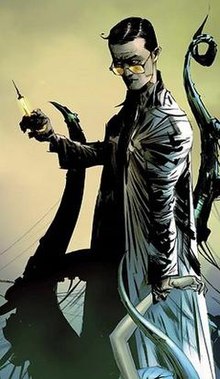








Resonator construction.
When you choose this Eldritch Emerence at 3rd level, you gain the ability to construct unique magical items that increase your awareness of the various planes of existence, at a cost.
Resonator Tuning fork: At 3rd level you are able to construct a tuning fork enchanted with your Aberrant power. This item’s weight is .5lb. and is used by ringing it against another object. When ringed, for 1 minute;
- You can tell if an illusion is active,
- You know if there is a shapeshifter within 10ft. of you (but you cannot tell where, who it is, or if it is currently shifted)
- You gain a +1 to your Perception skill rolls
In order to craft the fork you must 1lb. of silver and you must have smith’s tools on you, otherwise you cannot craft this item. Additionally, the rules for crafting magic items remain the same. In order to complete the fork, you must go through an additional 1 hour long ritual, at the end of which you take 2d4 psychic damage. The item counts as a common magical item
Hand Held Resonator: At 6th level you can add onto your tuning fork, using it as the core for a greater contraption. When constructing a Hand Held resonator, you require an already constructed Tuning Fork. You also require 2lb. of silver, and 1ft. of straightened and thinned copper. The effects of the Hand Held Resonator replace that of the Tuning Fork. Its effects are;
- You gain advantage when trying to peer through illusions, as well as knowing when one is active.
- You know the identity of any shapeshifter within 10ft of you, but you cannot see their true form, nor know if they are currently shifted.
- You gain advantage on all Perception skill rolls.
The effects last for 1 minute, the device weighs 2lb. and counts as if you were constructing an uncommon magical item from scratch when crafting it.
Portable Resonator: At 12th level you further increase your Resonator. In order to do so you require 10lb. of silver, 12ft. of straightened and thinned copper, and 8lb. of worked gold to construct the base of the Portable Resonator. This process counts as if you are constructing a rare magic item. Afterwards, you must construct a second Tuning Fork, attach it to the Hand Held Resonator, which itself takes an additional hour, before working it into the base of the Portable Resonator. This process takes 2 hours to complete. The Portable Resonator can be carried, it weighs 14lb., and cannot be held, but must be set down to use. It gives the following effects when activated;
- You gain advantage when trying to peer through illusions, as well as knowing when one is active. You also gain the advantage against being charmed.
- You know the identity of any shapeshifter within 10ft of you, and you can tell whether or not they are currently shifted, but you cannot see their true form.
- You gain a +1 to your Perception skills rolls as well as advantage.
- Everytime the resonator is used, roll a d20, on a 5 and below you see into the Astral Plane, which is overlaid on what you would normally see. This lets you add double your proficiency bonus to one skill you are proficient in. On a 6-20, you do not peer into the Astral plane, nor gain the benefits of doing so.
The Portable Resonator can be attacked, it has 22 Hit Points, and an armor class of 16. It has an area of effect equal to 30ft. And all of its effects apply to any creature in that area. Additionally, its effects last so long as it is activated, but it may only stay activated safely for 10 minutes. Afterwards, every creature in its area of effect takes 2d8 psychic damage for every turn that it ends in it. Also, if you are currently peering into the Astral plane, other creatures may end up appearing in the material plane. I vn order to decide whether or not this happens, the DM rolls a d100, on a 10-50, creatures spawn within any unoccupied space within the Resonator’s area of effect. When deciding what creatures that spawn, roll as if preparing a random encounter, afterwords, spawn according to the roll, but any creature spawned must be an elemental, aberration, fiend, or celestial. On a 60-100, no creatures spawn. Any creatures spawned by it do not have the effects applied to them however.
Fully Constructed Resonator: At 16th level you gain the ability to perfect your resonator. In order to do so you require 12lb. of silver, 17ft. of thinned and straightened copper, 10lb. of worked gold, and 9lb. of mithril. The mithril is used to construct a core for the finished resonator. Additionally, you must craft two additional tuning forks, and attach them to the Portable Resonator, a process taking two hours. Afterwards, you go about constructing the Resonator, which is counted as crafting a legendary magical item in terms of cost. The Fully Constructed Resonator cannot be carried with you, and must remain in place at the point of its construction. In order to move it, you must deconstruct it, a process that requires a full day. Additionally, you may decide to activate it in degrees, where you may use any of the previous levels of the Resonator when deciding what effects the Resonator grants. However, when fully activated, it has an area of effect of 60ft. and grants the following effects to any and all creatures within it. Those spawned by it do not have the effects applied to them however.
- You gain advantage when trying to peer through illusions, as well as knowing when one is active. You also gain immunity against being charmed.
- You know the identity of any shapeshifter within 10ft of you, you can tell whether or not they are currently shifted, and you can see their true form.
- You gain a +1 to your Perception skills rolls as well as advantage. You also gain a +2 to your passive perception.
- When the Resonator is fully activated, you also see the Astral Plane, which is overlaid on what you normally would see. This lets you add double your proficiency bonus to one skill you are proficient in. Additionally, creatures always spawn as if the DM had rolled a 10-50 on a d100, with the same restrictions on what can be spawned still applying.
- After the 10 minutes of safe usage is up, all creatures, except those spawned by the Resonator, in its area of effect take 3d8 psychic damage, and a d20 is rolled. If a 1 or 20 is rolled, the Resonator goes rampant and must be destroyed to end its effects.
The Resonator has 22 hit points, and an AC of 20. 



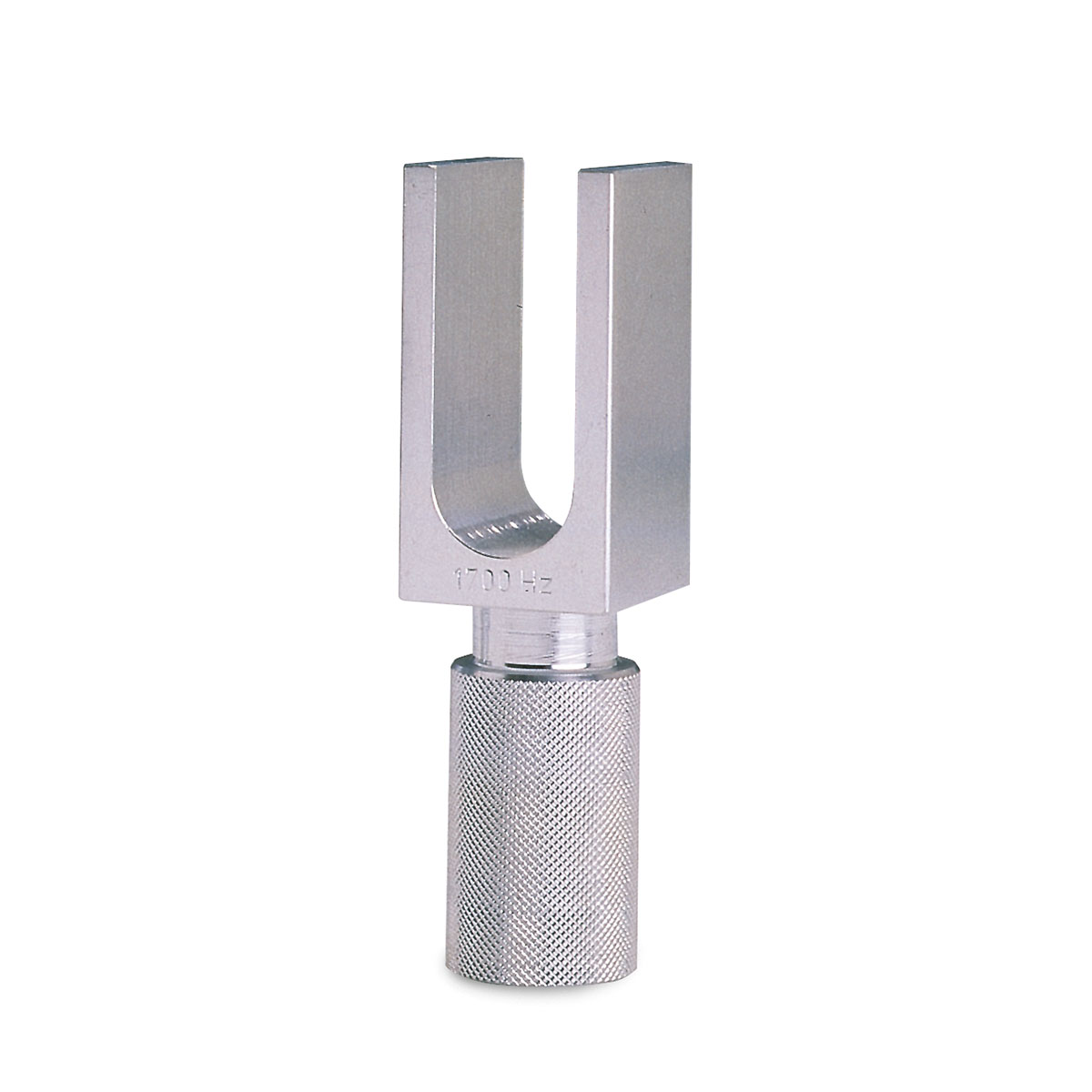





















The Revival Formula
Also at 3rd level you begin experimenting with chemicals that have been infused with necrotic, healing, and your own aberrant energies. You can a potion that is injected into dead creatures. In order to do so, you must first craft a potion of healing. Afterwards, you spend 1 additional hour, and spend an additional 100 gp to infuse it with necrotic energies, and some of your aberrant energies. You take 1d4 psychic damage and 1d6 necrotic damage at the end of this ritual. Upon completion, you have one vial of your Revival Formula. In order to use it, you must inject it into a corpse, after which, in 1 minute, it is received as an undead creature. It is treated as a zombie with the following changes.
- It gains +9 hit points
- It becomes proficient in constitution throws instead of Wis.
- Its intelligence, wisdom, and charisma scores all drop to 1
- Its dexterity score increases to 13, and its strength score increases to 14
The zombie is considered actively hostile to everything, including other undead, you, and your allies. It will even attack structures if there is nothing else to attack. The only thing the zombie will not immediately attack are other zombies created through the formula, in which case they are considered neutral to each other.
Altered Unnatural Casting
You have experimented greatly on yourself, gaining a number of newspells bound in your very blood as a result. Starting at 6th level, you gain the following spells at the following levels as innate casting.
You can cast Animate Dead as a 4th level spell and Revivify at 6th level, Raise Dead, Danse Macabre as 6th level spells and Create Undead as a 7th level spell at 12th level, and finally Finger of Death, and Resurrection at 16th level.
You may cast each spell using your Intelligence, Wisdom, or Charisma modifier. Each modifier gives extra effects;
Intelligence: If you summon an undead, it gains 1d4 extra Hit Points. If you Revive a creature, it gains 1 additional hit point.
Wisdom: If you summon an undead, the amount of time you have for controlling it is doubled. If you revive a creature, you may do so in as an action.
Charisma: If you summon an undead, you create one additional undead so long as there is an additional corpse to do so. If you are reviving a creature, you do not need the required material components.
This features replaces your Unnatural Casting feature. You must still follow restrictions of the spells, and may cast them once per day.
You also gain the Create Homunculus spell at 6th level as a ritual. Otherwise, you must still pay the cost and follow all restrictions of the spell
Greater Revival Formula
At 6th level, you learn to have greater efficiency when creating your original formula, instead creating 3 at the end of the process instead of 1. However, you also gain the ability to create a vial of Greater Revival Formula. In order to do so you must first create a greater healing potion. Afterwards, you may mix one vial of Revival formula with the potion, and then you add your blood to the mixture, taking 1d6 slashing damage. This process takes 10 minutes to complete. You do not need to inject your Greater Revival formula in order for it to work, but may simply pour it onto a corpse. After 1 minute, the corpse becomes a ghoul with the following changes;
- It gains +9 hit points
- It becomes proficient in constitution throws.
- Its intelligence, wisdom, and charisma scores all drop to 1
- Its strength score increases to 13, and its constitution score increases to 14
- It gains the Undead fortitude trait.
The Ghoul acts exactly like the Zombies created by the Revival Formula, except it will actively hunt any Zombie created by the Revival Formula before turning against anything else.
Of Flesh and Bone, given false life.
At 12th level, your knowledge on life and death has expanded to create controllable false lifeforms. You gain the ability to create a flesh golem for only a quarter of the time and cost in gold, but you must still use the required materials used in the actual construction of the flesh golem.
Superior Revival Formula
Also at level 12 you once again manage to improve your Revival Formula, and become even more efficient when creating the lesser versions of it, now creating 4 original Formula vials when making it, and 2 Greater Formula when going through the necessary processes. You also manage to find an additional ingredient to make your formula even more powerful. In order to do so, you must first make a Superior Healing Potion, then you must mix one Greater Revival Formula into it, finishing things by adding in the flesh of one random aberration. The time required for mixing and adding the Greater Formula and aberrant flesh to the Superior Healing Potion is 2 hours. Just as you may pour the Greater Revival Formula onto a corpse, you may do the same with the Superior Revival Formula using one bonus action. After 1 minute, the corpse turns into a Greater Zombie with the following changes;
- It gains +9 hit points
- It becomes proficient in constitution throws.
- Its intelligence, wisdom, and charisma scores all drop to 1
- Its dexterity score increases to 15
Unlike any other undead spawned by your lesser versions of the Revival Formula, the Greater Zombie is considered Neutral to you and your allies. Additionally, any other Undead created by any other version of your Revival Formula will become “docile”, following the Greater Zombie and attacking what it attacks. It actively hunts normal undead, and will immediately attack anything that isn’t you or your allies so long as you do not provoke it. This includes structures, and other Greater Zombies spawned by the Superior Revival Formula, if there is more than one within 60ft. Of it. The Greater Zombie will always prioritize killing another of its kind over anything else, and every other Formula created zombie within 60ft. become inactive so long as there is more than one Superior Formula spawned Greater Zombie.
Blasphemous Innovation
t 16th level you learn to create even more complicated flesh golems. You may create a flesh golem using beasts instead of Humanoids. When doing so, you take the beast out of these options: an ape, a black bear, a boar, a giant badger, a giant weasel, a mule, a panther, or a wolf. If you create a flesh golem out of one of these animals, you use its stat block with the following changes;
- Its creature type changes to construct.
- It gains the aversion to Fire trait.
- It gains the Lightning absorption trait.
- It gains the Magic Weapons trait.
You have also learned ways to create horrific amalgamations by combining the techniques to create a flesh golem and your Superior Revival Formula. When doing so, you may now combine Beast, Humanoid, and even metal to create these amalgamations. The Horrific Amalgamation uses the Flesh Golem stat block with the following changes;
- It loses the Berserk Trait.
- It Loses the Aversion to Fire Trait.
- Its creature type changes to Aberration and undead, causing it to be affected by effects that specify either of the two types.
- It becomes vulnerable to being turned.
- It becomes vulnerable to radiant damage.
- It gains +9 to its hit points.
- It gains the Undead Fortitude trait.
- When it takes the Multi-attack action, it may decide to use any added attacks gained from its construction in place of its slam attacks.
- Its size becomes large.















Additionally, you may add the following features to the Horrific Amalgamation during its construction;
- Claws: The Horrific Amalgamation gains claws which lets it make a claw attack that deals 2d4 slashing damage.
- Hooves: The Horrific Amalgamation gains hooves that it can use to make a trampling attack with. In order to do so it can decide to take the dash action, and if it moves 10ft. Or more, it can decide to trample over any creature that is in its path, dealing 1d4 bludgeoning damage, and knocks whatever creature hit prone.
- Horns: The Horrific Amalgamation gains horns, which it can use to a goreing attack which deals deals piercing damage equal to ld6 +its strength modifier.
- Snapping Jaws: The Horrific Amalgamation gains snapping jaws, which it can use as a bonus action to make one bite attack. On a hit it deals 1d6 piercing damage.
- Antlers: The Horrific Amalgamation gains antlers, with them it can make one goreing attack, which on a hit deals 1d4piercing damage and shoves the target 10ft. Away unless they succeed on a strength check.
- Toughened hide: The Horrific Amalgamation gains an armored hide, be it an exoskeleton or scales is up to you. It gains a +2 to its armor class.
- Gripping Tail: The Horrific Amalgamation gains a gripping tail, with which it may hold one item that is not a weapon or weighs more than a medium sized creature. The Horrific Amalgamation may also attempt to grapple using the tail, in which the target must succeed in either a Strength (Athletics) or Dexterity (Acrobatics)-its choice-or it is considered grappled and restrained. It may repeat the save at the end of each of its turns.
- Lashing Tail: The Horrific Amalgamation gains a lashing tail with which it may make one additional attack if it takes the attack option. The tail deals 1d4 slashing damage on a hit.
- ** Bludgeoning Tail:** The Horrific Amalgamation gains a bludgeoning tail, with which it may make an attack with. On a hit it deals 1d8 + its strength modifier.
- Iron skeleton: You create the Horrific Amalgamation around a skeleton made of pure iron, costing 400 gp and weighs 20lb. This allows the Horrific Amalgamation to add its constitution modifier to its armor class.
- ** Metal Plating:** You add metal plates to the Horrific Amalgamation, changing its armor class to 15 and costing 750 gp.
- Iron Claws: During the construction of the Horrific Amalgamation you replaced one of its limbs with a crushing claw made of iron, preventing it from using that limbe for anything other than attacking. With this claw the Horrific Amalgamation may attempt to grapple one creature where it must make either a Strength (Athletics) or Dexterity (Acrobatics)-its choice-or it is considered grappled. Each turn the creature is grappled takes 1d6 bludgeoning damage, the target is restrained, and it may repeat the choice at the start of every one of its turns.
- Spring loaded legs: During the construction of the Horrific Amalgamation you had loaded its legs with oversized springs, weakening its legs (-2 to con.) but tripling its jumping size.
- Arm Blade: You have replaced one of the limbs of the Horrific Amalgamation with a very large blade, preventing it from using that limbe for anything other than attacking. It may attack with the blade, which on a hit deals 1d8+ its strength modifier slashing damage.
- Arm shield: You have permanently mounted a large shield on one of the Horrific Amalgamation’s arms. The shield acts exactly like a normal shield, except it prevents the usage of the arm it is mounted on, and the amalgamation may decide to use a bonus action to hit a creature that is within 5ft of it, dealing 1d4 bludgeoning on a hit, forcing the creature back 10ft. If it fails a strength save.
- Extra arms: You have mounted a pair of extra arms on the Horrific Amalgamation, which it may use as normal. Additionally, it gains one additional attack with which it may use these extra arms. These arms may also be altered, but any restrictions these alterations cause are applied to them.
- Extra legs: You have mounted an additional pair of legs on the Horrific Amalgamation, doubling its carrying capacity, but preventing it from being able to use stairs or climb ladders.
- Extra head: You have mounted an extra head onto the Horrific Amalgamation, giving it advantage against the Blinded and Deafened conditions. The extra head may be modified in the same manor as the original one can.
You may only have a total of 6 of the options on the Horrific Amalgamation, and you may only have one Horrific Amalgamation at any point in time. Finally, the creation of a Horrific Amalgamation is 120 days and takes 100,0000 gp. With an additional day for every alteration added to it.
It is considered friendly to you and your allies. If you attempt to create a second one, the existing one immediately dies, and it will actively kill every undead spawned by any version of your Formula, prioritizing them over anything else, including your orders. Otherwise, it obeys your orders to the best of its ability, and during combat it runs off of your initiative roll, but takes its turn immediately after yours.
Finally, you may use your Superior Revival Formula to create 6 Crawling Claws, so long as you have enough materials to create the tiny undead, of which you control telepathically, and always sense everything they sense.
Supreme Revival Formula
After years of continuous study, and numerous atrocities, you have finally perfected the Revival formula. At 20th you are also now able to create 5 Original Formula vials, 3 Greater Formula Vials, and 2 Supreme Formula vials whenever you go about brewing them. IN order to create the SUpreme Revival formula, you must first create a Supreme Healing Potion, then you must a Superior Revival Formula vial into it, and go about an additional ritual where you take an additional 2d4 psychic damage,and 2d6 necrotic damage at the end of it. The entire process takes 2 hours to complete. Upon completion, you must inject it into a corpse within 1 hour or it expires. Upon injection the corpse immediately revives just as it was in life with the following changes;
- Its creature type changes to Undead.
- It gains the Undead Fortitude trait.
- It gains the Undead Nature trait.
- It has a permanent -3 modifier to its Intelligence, Wisdom, and Charisma ability checks, and saves.
- The creature no longer ages
Additionally, you may decide to intentionally die by the psychic damage inflicted onto you by the Fully Constructed Resonator at full activation. If you do, and you die while still in the Resonator’s area of effect by the psychic damage from it on its fully activated setting, and you have the Supreme Revival Formula injected into you, you are revived but gain the following changes;
- Your creature type changes to Aberration and undead, causing you to be affected by effects that specify either of the two types.
- You gain the Undead Fortitude trait.
- You gain the Undead Nature trait.
- You gain a +3 to your Intelligence, Wisdom, and Charisma ability checks and saving throws.
- You no longer age.
- You have disadvantage on saving throws forced on you by spells casted from Paladins and Clerics.
The same effects apply to any creature that would go through the same process you would. The resonator ceases to give the bonuses it normally would, it no long spawns any creatures, and no longer causes psychic damage to you. If the Resonator would be destroyed, you are banished from the matirel plane until it is repaired.



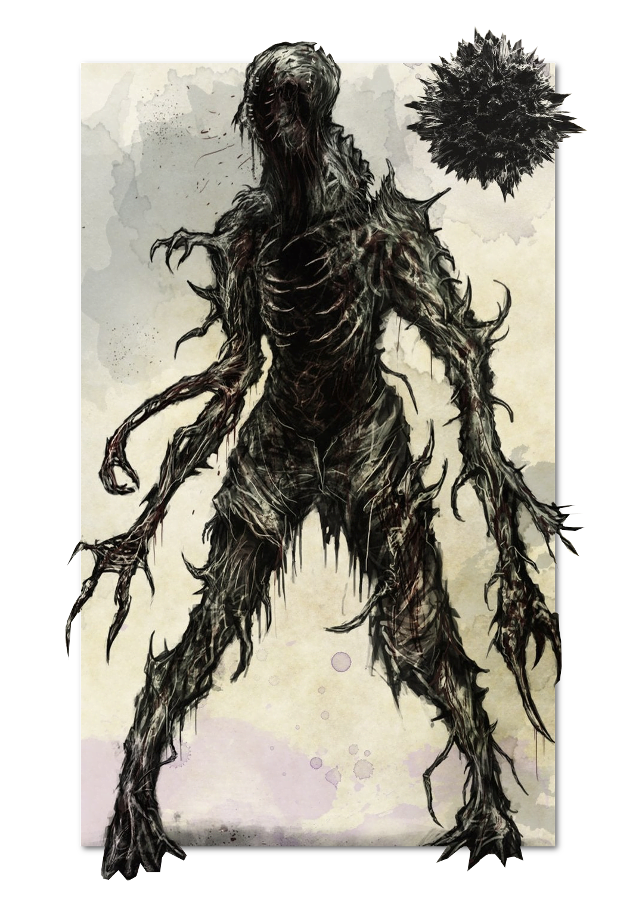










The Guardian of the Gate
Masters in manipulating the weave through their aberrant abilities, these Star Touched have mostly eliminated the downfalls of learning to expand their natural aptitude for spellcasting. This however limited them even further than they already would be, so they make up for it through martial prowess, but also allowed them to heal.
Guardians are one of the few Star Touched that can be of good alignment, what’s more, most become lawful in nature simply due to their strict adherence to order. As a consequence, they are often put in direct opposition to their less benign and orderly “brothers”. However, there are indeed a few, hunted by other Guardians, that have shirked their responsibilities and rejoined the vast majority of their “brothers”.
Bonus Proficiencies
When you choose this Eldritch Emergence at 3rd level, you gain proficiency in martial weapons that do not have the heavy property, one instrument of your choice, Performance and Athletics or Acrobatics. If you are already proficient in Performance, then you may gain proficiency in one tool set instead. When using a martial weapon you are proficient with, you may instead use your Intelligence, Wisdom, or Charisma modifier (whichever is highest at anypoint of time) when rolling to hit or for damage, in place of your strength or dexterity modifier.
A healed mind
Through long, and arduous self-reflection, restraint, and maybe even companionship, your mind has been able to recover from the hardship that brought your powers to you. Starting at 3rd level, you are no longer considered insane, nor suffer from any symptoms of insanity.
Enhanced Unnatural Spellcasting
Your training in mind and body has increased your innate magical abilities. When you choose this eldritch emergence at 3rd level you gain additional spells that you are able to cast innately;
Bane, Expeditious Retreat, Shield, Armor of Agathys, and Zephyr Strike at 3rd level, Misty Step, Blur, Gaseous Form, and Haste at 6th, Banishment, and Teleportation Circle at 12th, and finally Teleport at 16th.
You may cast any spells of 3rd level or below a number of times equal to ½ your Intelligence modifier (minimum of once), and all above 3rd level once per long rest, except for Teleport, which is once per day. Whenever you cast any of these spells, you may use your Intelligence, Wisdom, or Charisma modifier, with each casting modifier granting additional effects;
Intelligence: You may take the attack action as well
Wisdom: You can delay the spell’s effect for 1 turn
Charisma: You do not need to perform verbal or somatic components for the spell.





Eldritch Blasphemies
Your intense training to control your aberrant powers has given you a unique ability to use spells.
Spell Slots
The Guardian of the Gate table shows how many spell slots you have. The table also shows what the level of those slots is; all of your spell slots are the same level. To cast one of your Guardian of the Gate spells of 1st level or higher, you must expend a spell slot. You regain all expended spell slots when you finish a short or long rest. Alternatively you may decide to take 1d4 points of damage to cast a spell of 1st level or lower, with an additional d4 being added for every level above 1st to a maximum of 5. This damage cannot be mitigated in any way.
You prepare the list of spells that are available for you to cast, choosing from the Guardian of the Gate spell list. When you do so, choose a number of Guardian of the Gate spells equal to your Intelligence modifier + your Guardian of the Gate level (minimum of one spell). The spells must be of a level for which you have spell slots.
You can change your list of prepared spells when you finish a short or long rest. Preparing a new list of Guardian of the Gate spells requires time spent in prayer and meditation: at least 1 minute per spell level for each spell on your list.
Spell casting ability
Unlike other classes, you decide to freely switch between using Intelligence, Wisdom, or Charisma for your spellcasting modifier. The power of your spells come from your intense training and control. You choose any of the ability modifiers when a spell refers to your spellcasting ability. However, Intelligence is used to set your spell save DC. Depending on the modifier used for when casting a spell, different effects are added to the spell.
Spell save DC= 8 + your proficiency bonus + Intelligence modifier.
Spell Attack modifier= your proficiency bonus + Intelligence/Wisdom/Charisma modifier.
Intelligence: The spell has its duration doubled, or heals twice the rolled number, but it also takes your reaction
Wisdom: The spell’s casting time changes to a bonus action but has its duration and effects cut in half
Charisma: You may cast one extra spell so long as the casting time is 1 action by using your reaction and bonus action.
When you cast without using a spell slot, these effects are not applied, but you can still use any of the three modifiers.
The Gate Key
You have a small magical item crafted through the arduous training you went through when attempting to control your powers. It looks somewhat like a heavily twisted and warped key, which can be hung around your neck or wrapped around your wrist by using a piece of string. You use this when casting any spells gained in this class, otherwise you lose the ability to be able to control what you're casting, causing you to roll on Wild Magic Surge table everytime you cast.
You can create another Gate Key if the original is lost, but for 120 days all spells casted using it have a chance to go through a Wild Magic Surge. You determine this by rolling a d20, with a 1 causing a Wild Magic Surge. This is due to you not having the chance to perfect the newly formed key yet.
The true power of a gate key is its ability to open or close portals. At first you may only open and close portals that have already been used, but at 16th level you can open portals on your own, and close any portal that you come into contact with.
If you are using a newly constructed Gate Key, you cannot interact with any portals until the 120 days are up.
Ritual casting
You can cast a Guardian of the Gate spell as a ritual if that spell has the ritual tag and you have the spell prepared.
The Guardian of the Gate
| Level | Spell Slots | Spell slot level | Sorcery Points |
|---|---|---|---|
| 3rd | 1 | 1st | - |
| 4th | 1 | 2nd | - |
| 5th | 1 | 2nd | - |
| 6th | 1 | 3rd | 3 |
| 7th | 1 | 3rd | 3 |
| 8th | 1 | 3rd | 3 |
| 9th | 1 | 3rd | 3 |
| 10th | 1 | 3rd | 3 |
| 11th | 1 | 3rd | 3 |
| 12th | 1 | 4th | 3 |
| 13th | 2 | 4th | 3 |
| 14th | 2 | 4th | 3 |
| 15th | 2 | 4th | 4 |
| 16th | 2 | 4th | 4 |
| 17th | 2 | 5th | 4 |
| 18th | 2 | 5th | 4 |
| 19th | 2 | 5th | 4 |
| 20th | 2 | 5th | 5 |
Martial Augmentation
The intense training you did to actively control your abilities has allowed you to channel some of that energy into your physical self. When you choose this eldritch Emergence at 3rd level you gain 1 extra hit point every time you level up in this class.
Extra Attack
Beginning at 6th level, you can attack twice, instead of once, whenever you take the Attack action on your turn.
Metamagic
At 6th level, you gain the ability to twist your spells to suit your needs. You gain the following Metamagic options. You can use only one Metamagic option on a spell when you cast it, unless otherwise noted.
Careful Spell
When you cast a spell that forces other creatures to make a saving throw, you can protect some of those creatures from the spell's full force. To do so, you spend 1 sorcery point and choose a number of those creatures up to your Charisma modifier (minimum of one creature). A chosen creature automatically succeeds on its saving throw against the spell.
Distant Spell
When you cast a spell that has a range of 5 feet or greater, you can spend 1 sorcery point to double the range of the spell.
When you cast a spell that has a range of touch, you can spend 1 sorcery point to make the range of the spell 30 feet.
Empowered Spell
When you roll damage for a spell, you can spend 1 sorcery point to reroll a number of the damage dice up to your Charisma modifier (minimum of one). You must use the new rolls.
You can use Empowered Spell even if you have already used a different Metamagic option during the casting of the spell.
Heightened Spell
When you cast a spell that forces a creature to make a saving throw to resist its effects, you can spend 3 sorcery points to give one target of the spell disadvantage on its first saving throw made against the spell.
Portal tracker
At 6th level, you gain the ability to psychically sense the presence of a planar portal. As an action, you detect the distance and direction to the closest planar portal within 1 mile of you. Once you use this feature, you can't use it again until you finish a short or long rest.
See the "Planar Travel" section in chapter 2 of the Dungeon Master's Guide for examples of planar portals.
Force wielder
At 12th level, you learn to draw on the energy of the multiverse for your attacks. As an action, choose one creature you can see within 10 feet of you. You can shunt out a blast of pure force that hits the creature, causing it to take 1d8 force damage from the attack. When you reach 16th level in this class, the damage increases to 2d8. You can use this feature a number of times equal to your Wisdom Modifier.
Eldritch Smite
At 12th level, once per turn when you hit a creature with your weapon, you can expend a Guardian of the Gate spell slot to deal an extra 1d8 force damage to the target, plus another 1d8 per level of the spell slot, to a maximum of 2, and you can knock the target prone if it is Huge or smaller. Additionally, depending on the modifier you used when rolling to hit, you get this extra effects;
Intelligence: You deal an extra 1d4 psychic damage
Wisdom: You deal an extra 1d4 of the weapon’s damage
Charisma: You deal an extra 1d4 radiant damage
Flash Step
At 16th level, you gain the ability to blink between areas that you can see. When you use the Attack action, you can teleport up to 10 feet before each attack to an unoccupied space you can see. If you have advantage on the attack, you can trade that advantage for an extra 1d6 of damage that is the same damage type of the weapon you used to hit the creature with. Once you use this feature, you can't use it again until you finish a short or long rest.
Favored Enemy
Beginning at 16 level, you have significant experience studying, tracking, hunting, and even talking to creatures that do not normally exist on the material plane.
You gain a +2 bonus to damage rolls with weapon attacks against creatures of the following types: aberrations, celestials, elementals, and fiends. Additionally, you have advantage on Wisdom (Survival) checks to track your favored enemies, as well as on Intelligence checks to recall information about them.
When you gain this feature, you also learn one language of your choice, typically one spoken by your favored enemies or creatures associated with them. However, you are free to pick any language you wish to learn.
You are your sword
At 20th level, once per day, you are capable of entering into a state of hyper aware consciousness for 1 hour. During this period of time you gain the following benefits;
- You gain blindsight and tremor sense up to 30ft. In every direction.
- You have advantage on Dexterity saving throws against effects that you can see, such as traps and spells.
- You can take a bonus action on each of your turns in combat. This action can be used only to take the Dash, or Disengage action, and you do not provoke opportunity attacks when doing so.
- When an attacker that you can see hits you with an attack, you can use your reaction to halve the attack's damage against you.
- You can nimbly dodge out of the way of certain area effects, such as a red dragon's fiery breath or an Ice Storm spell. When you are subjected to an effect that allows you to make a Dexterity saving throw to take only half damage, you instead take no damage if you succeed on the saving throw, and only half damage if you fail.
- You have advantage on Strength checks and Strength saving throws.
- You have resistance to non magical bludgeoning, piercing, and slashing damage.
Finally, you can open a portal directly to the Astral plane by using your Gate Key, which pulls all creatures in a cone 90ft. long. All creatures inside of the cone must make a Strength (athletics) and Dexterity (acrobatics) save to avoid being pulled in. They must succeed on both saves to avoid being pulled in, and the save is contested by your spell save DC. What happens to the Creatures pulled in is up to the DM’s discretion. You may only use this once while using this feature.
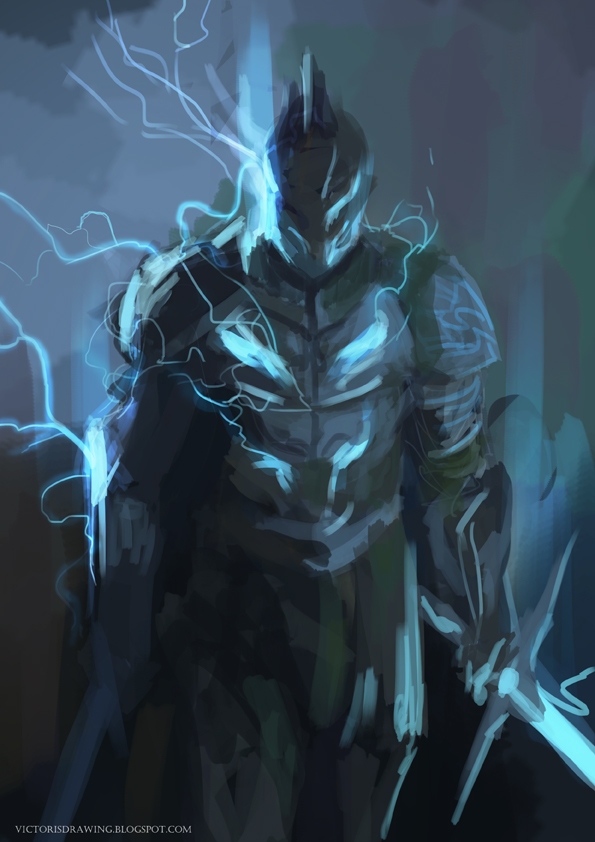









The Black Summoner
Individuals that reject the notion of serving under any others, and instead decide to ensure their freedom by enslaving, dominating, or manipulating others, these Star Touched may walk a path that is similar to most others, but it certainly has its differences.
Most Star Touched that become Black Summoners are completely neutral to matters of morality, instead using any means they have to secure their own independence above all else, often causing them to be fickle, lone wolves, and deal breakers. A few take this desire into the extremes and grow to love having power over others, enslaving as many other beings to their will as they can. This means that all Black Summoners are chaotic. This may lead to petty actions, such as doing minor crimes simply as a form of rebellion, and may include malicious compliance in cases where they are being forced to create chaos, as it is not to their will.
Bonus Proficiencies
You become proficient in any weapons that have either the ranged property, or the thrown property. You also become proficient in Animal Handling, the Herbalism kit, and Healer’s Kit.
Martiel Weakness
Due to you expanding what your mind was capable of, you neglected to train your body. You have a permanent -2 when rolling to hit with a melee attack, and to the damage roll.
Expanded Unnatural Spellcasting
At 3rd level, your training in your unique abilities has expanded the spells you can innately cast. You gain the following spells at the following levels;
Friends at 3rd level, Animal Friendship, Unseen Servant, Charm Person, and Command at 6th level, Crown of Madness, Tiny Servant, Enthrall, and Suggestion at 12th level, Compulsion, Dominate Beast, Charm Monster, Dominate Person, Geas, and finally Mass Suggestion at 16th level.
You can only innately cast each spell once per day, but you may use your Intelligence, Wisdom, or Charisma modifier when casting, which gives extra effects;
Intelligence: If the creature targeted becomes charmed, they are also considered incapacitated, Unseen and Tiny Servent have thier duration doubled.
Wisdom: If the creature targeted is charmed, it becomes willing to harm itself or its companions once, but then the effect immediately ends, unless the spell casted already allows those options, in which case the creature will take one more command after the spell ends or if it succeeds on ending it itself. Unseen and Tiny Servent have the creature they spawn gain 1 additional hit point.
Charisma: The charmed creature has disadvantage on all of its saves to end the charmed effect, or you only need to use a bonus action to maintain control over the creature. The Unseen Servant spell has the creature spawned by it gain a +5 to its AC, and you can spawn two of the creatures spawned by Tiny Servent.
These affects and the restrictions of this feature apply to the cantrip Friends.

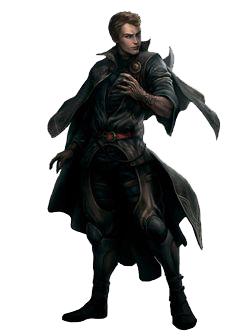




Ceremonial Dagger
When you choose this Eldritch Emergence at 3rd level, you gain a specialized dagger. This dagger must be crafted by you for it to be eligible for the ritual that grants it its abilities. The dagger may be made of most materials, including stone, bone, and metal, but not made purely from wood. Even if you are not proficient in Smith’s tools you are still able to craft this dagger. The dagger appearance is decided by, but it will always have runes inscribed into it, these runes are the physical writing of your black speech feature. You start off with a Ceremonial Dagger when you choose this eldritch Emergence at third level, having already done the required ritual to turn the crafted dagger into one.
The dagger can be used as a focus for your Unnaturally casted spells, but it is essential to certain features in this Eldritch Emergence. Your Ceremonial Dagger uses the same stat block as a normal dagger, but is considered a magic weapon for the purpose of overcoming resistances and immunities.
If you lose your Ceremonial Dagger at any point of time, it is destroyed, you must craft a new one. First, you must forge a new dagger, a process that takes an hour to complete, or one short rest. Afterwards, you must spend an additional 2 hours, or one long rest, outside bathing the dagger in the blood of a recently slain lamb, while also inscribing it with runes and using your Black Speech feature, all the while with the Star of Hadar hanging over you. If the Star of Hadar is not visible where you are, it is simply not currently in the night sky, you may decide to take 2d8 psychic damage instead to inscribe the runes with the necessary power needed to complete their functions. You must wait until your next long rest before you can use your Black Speech again after going through this process. You do not gain the benefits of resting if you craft a new Ceremonial Dagger during a short or long rest.
A dagger that becomes a Ceremonial Dagger loses the thrown trait.
Black Summoning
When you choose this Eldritch Emergence at 3rd, you gain the ability to tear into space and time, enslaving and binding aberrations of a certain CR to your will, but only so long as there is a hostile creature that is an immediate danger to you or your allies, or until 1 minute passses and you haven’t entered into combat again with it. When an aberration leaves your service it returns to its point of origin, wherever that might be. The CR of aberration you can summon is based on your level in this class. Additionally, you must make a sacrifice every time you wish to summon an aberration, which takes an action.
Sacrifices
You may make a sacrifice by one of four options.
- Slashing yourself with your Ceremonial Dagger, in which case you take 1d6 slashing damage which cannot be mitigated in anyway.
- Stabbing a Fresh Heart with your Ceremonial Dagger.
- Stabbing a Preserved Heart with you Ceremonial Dagger.
- Killing a creature with your Ceremonial Dagger.
3 of the listed options give varying effects, with an additional effect being added if the creature or heart sacrificed is an aberration or humanoid. Slashing yourself gives no additional bonuses to the aberration summoned. You cannot sacrifice your summoned aberrations. The aberration gains additional bonuses if the creature type of the sacrifice is Humaniod or Aberration, as listed below. Summoned aberrations take their own turns, and roll for their own initiative. You decide what actions the aberration takes on its turn.
Fresh Hearts
Aberrations summoned by using a Fresh Heart gain a +2 to their hit points and initiative roll.
- Humanoid: The +2 bonus becomes a +3.
- Aberration: The +2 bonus becomes a +3 and the Aberration gains an additional 10ft. to its movement speed.
Preserved hearts
Aberrations summoned by using a Preserved Heart gain a +1 to their Hit Points.
- Humanoid: The +1 bonus becomes a +2.
- Aberration: The +1 bonus becomes a +2 and the Aberration gains an additional 5ft. to its movement speed.
Killed Creature
Aberrations are summoned by a killed creature when you cause a creature's Hit Points to drop to 0 and it dies as a result by using your Ceremonial Dagger. Aberrations summoned by a killed creature may add ½ their constitution modifier to their Hit points (minimum of 2), gains 5ft. to their movement speed, and a +2 to their AC.
- Humanoid: The minimum for the Hit point bonus becomes 3, it gains 10ft to its movement speed, and a +3 to its AC.
- Aberration: The aberration can add its constitution modifier to its Hit Points (minimum of 3), it gains 10ft to its movement speed, and may add its dexterity modifier to its AC (minimum of 2).
Incapacitated creature may be killed instantly so long as its hit points doesn’t exceed 60, and it has not been incapacitted through magical means, which makes it unsuitable as a scarifce.
Harvesting hearts
In order to gain hearts used for your summoning, you must harvest them. In order to harvest hearts, you must find, or make, a corpse that has been dead for a maximum of 1 day, afterwards the heart becomes unsuitable to be used as a sacrifice. Then you spend a minute using your Ceremonial Dagger to carve the heart out. A heart that has just been harvested counts as a Fresh Heart, which either must be used as a sacrifice or preserved in 1 hour, or it spoils and becomes unsuitable to be used as a sacrifice. The heart must come from a creature that would actually have one, or is not directly connected to mystical elements, hearts can be harvested from any creature except constructs, undead, elementals, oozes, fiends or celestials.
Preserving Hearts
Preserving a heart prevents it from spoiling, and allows you to keep it on your person indefinitely, until it is used for a sacrifice. In order to preserve a heart you must have both a herbalism kit and a healing kit on your person, which you use for 10 minutes to go about preserving the heart.
Sacrificing and Creature size
In order to summon certain creatures of a certain size, you require sacrifices of a certain size. In order to summon a medium sized creature, you must either Slash yourself once, or sacrifice a Fresh or Preserved heart that came from a medium sized creature, marking them as Medium sized hearts. The same applies to every creature size type, however, you can use two hearts to summon one creature that is one size larger than the hearts, but both hearts must be of the same size to do so. Alternatively, you may use a heart that is one size larger than the summoned creature, in which case you may summon two of the creatures as a result. For every size category above medium you must take an additional 1d6 of slashing damage, which cannot be mitigated in any way, you can also summon 1 small aberrations or 1 tiny aberrations instead of 1 medium one.
When killing a creature that is a sacrifice, you may summon one creature that is one size type larger than the sacrificed creature, two creatures of the same size, or three creatures that are one size smaller than the sacrificed creature. All of this information is seen in the table below.
Slashing Damage
| Damage | Creature Size type |
|---|---|
| 1d6 | 1 medium aberration, 1 small aberration, or 1 tiny aberration |
| 2d6 | 1 large aberration, or 2 medium aberrations |
Hearts
| Heart size | Aberrant size/amount |
|---|---|
| 1 tiny heart | 1 tiny aberration |
| 1 small heart | 1 small aberration, or 2 tiny aberrations |
| 1 medium heart | 1 medium aberration, or 2 small aberrations |
| 1 large heart | 1 large aberration, or 2 medium aberrations |
| 2 tiny hearts | 1 medium aberration |
| 2 small hearts | 1 medium aberration |
| 2 medium hearts | 1 large aberration |
Creatures
| Creature Size | Aberrant size/amount |
|---|---|
| 1 tiny creature | 2 tiny aberrations, or 1 small aberration |
| 1 small creature | 2 small aberrations, or 1 medium aberration |
| 1 medium creature | 2 medium aberrations, or 1 large aberration |
Finally, you are telepathically connected to each of your summoned aberrations, and are always aware of what they are as your senses are permanently linked, so long as the aberration is summoned. Additionally, you are only able to control a certain amount of aberrations at certain levels, and you may only control one aberration of the maximum CR you are able to summon, which counts as controlling the maximum amount of aberrations you are able to, as seen on the table below.

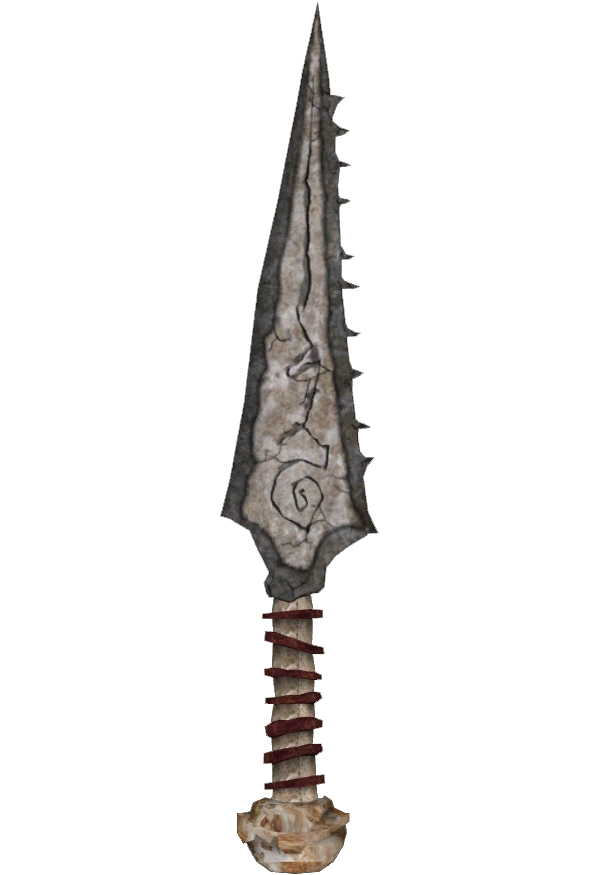
Summoning Table
| Level | Controlled | CR | Maximum CR |
|---|---|---|---|
| 3rd | 2 | Below 1, 2 | 3 |
| 4th | 2 | Below 1, 2 | 3 |
| 5th | 2 | Below 1, 2 | 3 |
| 6th | 2 | Below 1, 2 | 3 |
| 7th | 2 | Below 1, 2, 3 | 4 |
| 8th | 2 | Below 1, 2, 3 | 4 |
| 9th | 3 | Below 1, 2, 3 | 4 |
| 10th | 3 | Below 1, 2, 3, 4 | 5 |
| 11th | 3 | Below 1, 2, 3, 4 | 5 |
| 12th | 3 | Below 1, 2, 3, 4, 5 | 6 |
| 13th | 3 | Below 1, 2, 3, 4, 5 | 6 |
| 14th | 4 | Below 1, 2, 3, 4, 5, 6 | 7 |
| 15th | 4 | Below 1, 2, 3, 4, 5, 6 | 7 |
| 16th | 4 | Below 1, 2, 3, 4, 5, 6, 7 | 8 |
| 17th | 4 | Below 1, 2, 3, 4, 5, 6, 7, 8 | 9 |
| 18th | 4 | Below 1, 2, 3, 4, 5, 6, 7, 8, 9, | 10 |
| 19th | 5 | Below 1, 2, 3, 4, 5, 6, 7, 8, 9, 10, 11 | 12 |
| 20th | Below 1, 2, 3, 4, 5, 6, 7, 8, 9, 10, 11. 12 | 13 |
You cannot summon any variant of Ixitxachitl or Neogi until 6th level
You cannot summon Green Slaad until 12th level
You cannot summon any variant of Ithilid (Mind Flayer) or grey Slaad until 16th level
You are unable to summon Death Slaads, Elder Brains, Beholders, Aboleths or Neothelids using this feature.
Summoned Slaadi lose any feature that would create additional Slaadi
If using a source book that adds aberrations higher than CR 14, you cannot summon them using this feature. If the aberrations have an intelligence score of 10 or higher, you cannot summon them until 6th level.
Black Release
The runes in your Ceremonial dagger have finally settled, allowing their energies to permeate the blade. Starting at 6th level, whenever you hit a creature with your Ceremonial Dagger, you deal an additional 1d4 psychic damage. You do not subtract from the psychic damage, only the slashing damage.
Eldritch Binding
At 12th level, your abilities to control aberrations have expanded to an extreme degree. You are now able to bind a summoned aberration to you until you dismiss it, or until it dies. This destroys whatever autonomy you had left it after you summoned and enslaved it. To do the binding, you must take unmitigated 2d10 slashing damage, 1d8 psychic damage (which cannot be mitigated), Sacrifice 1 heart that is one size larger than the aberration you are binding, Sacrifice one creature to it.
You can only bind 1 aberration in this way, and you cannot summon other aberrations so long as you have a bound aberration. It gains the following changes;
- It now counts as being the same level as you.
- It levels up when you do.
- It uses your initiative roll for combat, but its turn happens immediately after your own.
- If it has a multiattack feature, it loses it.
- It gains the Extra Attack feature.
- It may equip armor, shields, and/weapons so long as it meets the requirements, the armor and shield is specifically crafted for it (which increases the cost an additional 250 gp), and it has limbs that would allow it to hold weapons and shields.
- If it has the ability to cast spells, it uses your Intelligence, Wisdom, or Charisma modifier (whichever is highest at any time), instead of whatever modifier it would normally use.
You cannot bind an aberration that has a CR that is the maximum CR you can summon. You must use a bonus action to tell it basic commands, otherwise it simply follows you whenever you move, and will only actively defend either itself or you.
Enthrall
At 16th level, you gain the ability to enslave a humanoid to your will permanently, destroying its autonomy in the process. You can use your action to touch an incapacitated humanoid, so long as it wasn’t incapcitated by magical means. That creature is then charmed by you, and will now follow any orders you give it. It will blindly follow you if you do not give it any orders, and you must use your action to give it commands during combat. If it can cast spells, it uses your Intelligence, Wisdom, or Charisma modifier (whichever is highest at any point in time), and you must use your action to order it to do so, and which spell to cast, so long as it knows the spell
You automatically know all of the spells your thrall can cast if it has the ability to do so.
You can communicate telepathically with the charmed creature as long as the two of you are on the same plane of existence.
Supreme Summons
At 20th level, you have gained the ability to summon the apexes of the aberrations, albeit with limited control. You can now summon Death Slaadi, Elder Brains, Beholders and Aboleths. In order to do so you must sacrifice a large creature, a large heart, and take 2d10 slashing damage, which cannot be mitigated in any way. You can only control one of each, and then only for an hour. If 1 hour passes and you have not dismissed any of the summoned aberrations before then, they are freed of your control and immediately become hostile towards you and your allies. You are unable to give orders to them while they are under your control, they DM controls any if they are summoned, and they are considered friendly to you and your allies until the end of the hour you had summoned them.
Additionally, you can summon 1 Neothelid once per day without sacrificing, and cannot summon it in any other way. It is treated as if you had summoned by sacrificing an aberration creature to it, and it is considered friendly to you and your allies, but does not follow your orders, nor is it inclined to help unless forced to. It will act just as it normally would, until 1 hour passes, afterwards the Neothelid dies, and its body contracts in on itself back to its point of origin.
If using a sourcebook that adds aberrations that are CR 14 or higher, you can summon them using this feature. They are treated in the same manner that Beholders, Aboleths, Elder Brains, and Death Slaadi are treated when using this feature. You cannot summon any Aberration that is of a CR higher than 18 using this feature.
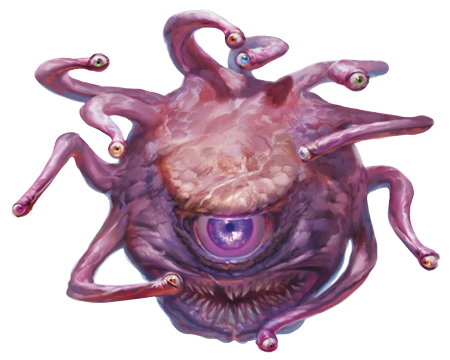


![]()

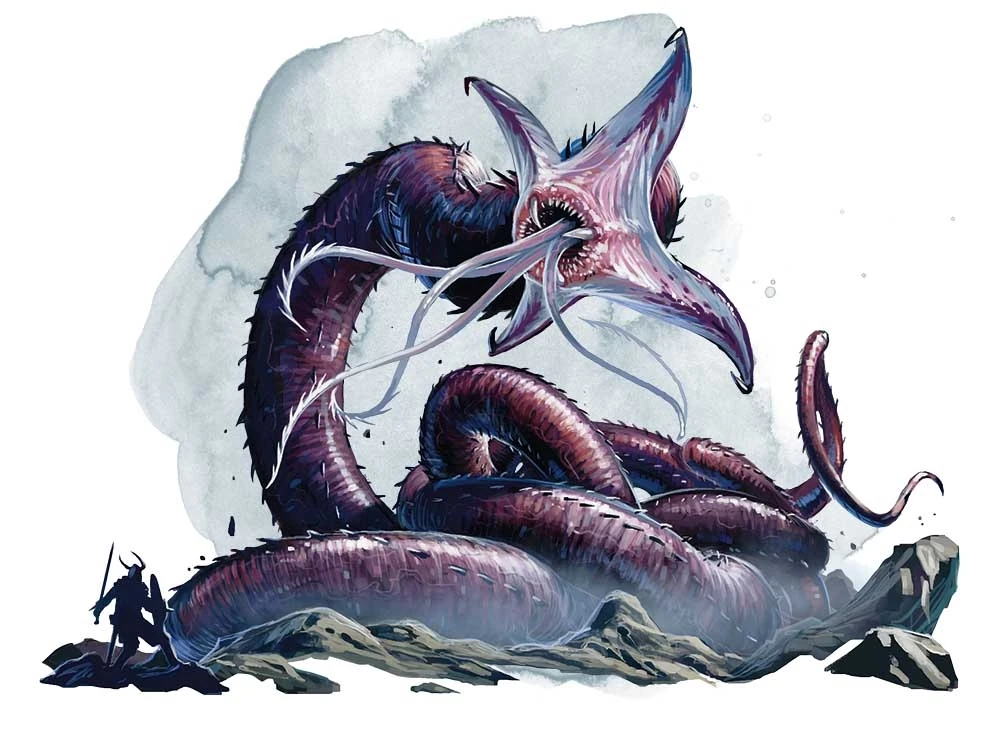

The Good Hunter
Unfortunate souls, bound to a life of blood shed, these Star Touched have found alternative ways to sait their lust for chaos and death. They often join churches, conclaves, or guilds dedicated to the hunting and slaying of monsters. They have a particular penchant for hunting down other Star Touched, and aberrations, but they can also be seen hunting monstrosities just as often.
Good Hunters earned their name by their habit of obsessively hunting down Star Touched, aberrations, and anything else that would serve their purposes or got in the way. This obsessiveness comes from a desire not to end up the way most other Star Touched do, yet they are unable to see that they already have. As a consequence, Good Hunters attempt to live up to their name, and may succeed in managing to maintain a good alignment, but more often than not, the desire for death and destruction wins out in the end, and so they seek things other than their fellow man to hunt.
When playing a Good Hunter, it is important to be affiliated with some kind of group. This Group must be of a good inclined nature, regardless of where it stands on chaos vs order scale. It could be a Ranger Conclave, a Church that takes part in purging the land of evil, or maybe your simply employed in a guild of monster hunters, or perhaps something else. Regardless, the Good Hunter must have some kind of purpose given, or possibly taken, or else it turns into a mindless killing machine.
Bonus Proficiencies
When you choose this Eldritch Emergence at 3rd level you gain proficiency in Smith’s tools, Alchemist’s supplies, and Woodcarver’s tools.






Walking Workshop
You gain the ability to craft weapons, shields, and armor when you choose this Eldritch Emergence at 3rd level. In order to craft a set of armor or a weapon, you require the materials the armor/weapon is made of in the weight of the armor/weapon, and the gp worth of the armor/weapon. You must have your Smith’s tools to do so, and it takes you 1 day to craft a full set of armor, and 3 hours to craft a weapon, unless it is a simple one, which takes only an hour to do. You may also craft unique weapons; Firearms and Switch Weapons.
Firearms
In order to craft a firearm you must have all of your tools on you, 75 gp worth of wood, and 25 gp worth of some type of metal. After words you must spend 3 hours working, crafting the weapon, a batch of ammunition, and a batch of fine, black powder which bursts when put under pressure. You are considered proficient when using any Firearm.
Rifle, heavy: Has the heavy and two handed properties, weighs 20lb., Ammunition (range 150/600). Can be fired a total of 5 times before needing to reload, does 1d10 piercing damage on a hit. May be Equipped with a dagger to allow you to make a melee weapon attack, which deals 1d6 piercing damage. You may only have 1 heavy rifle on your person at any time.
Rifle, hand: A rifle that can be held in one hand. Weighs 5lb., Ammunition (range 30/120), can be fired 3 times before needing to be reloaded, which takes 1 turn, does 1d8 piercing damage on a hit. You may only have one hand Rifle on your person at any time.
Side Arm: A highly inaccurate, small, single shot firearm. When firing a sidearm, you roll with disadvantage if the target is more than 10ft. away. Has the light property, weighs 3lb., can be fired in a snap-shot, which uses your reaction, and a quick-shot, which uses your bonus action so long as you have a free hand. On a hit it deals 1d8 piercing damage. It takes a full-round to reload, and you may have a maximum of six on your person at any point of time. Ammunition (range 5/100), loading.
You can hand another creature a firearm, but it has disadvantage when using it unless you spend a day, or one long rest to teach it how to use it.
Switch Weapons
Switch weapons are unique weapons that can be crafted by you, but are extremely expensive to do so. They are a combination of three weapons, gaining attributes of every composite weapon, and gaining the ability to use either your Intelligence, Wisdom, or Charisma modifier when rolling to hit, depending on the weapon. At 3rd level you can craft 3 different switch weapons, but gain the ability to craft more at later levels in this class. You must have your Smith’s tools and Woodcarver’s tools on you to begin crafting, then you spend one day crafting the weapon. You must be at a forge to craft a Switch Weapon. You are considered proficient with any Switch Weapon. Switch wepons count as magical for the purpose of overcomeing immunities and resistences.
Ripping Cleaver: Requires a longsword, dagger, and hand axe to craft.
- Contracted: You must take an Action to contract the Ripping Cleaver. When the Ripping Cleaver is in its contracted state, it deals 1d6 slashing damage, and you can make 1 additional attack using your bonus action, it has a reach of 5ft.
- Extended: You must take an action to extend the Ripping Cleaver. When the Ripping Cleaver is extended it deals 1d8 slashing damage, and you can decide to make one cleaving attack if you have advantage. You give up your advantage to deal an additional 1d8 slashing damage on a hit. It has a reach of 5ft.
You can use your Intelligence modifier when rolling to hit and damage with the Ripping Cleaver.
Switch Axe: Requires a halberd, battleaxe, and greataxe to craft.
- Contracted: You must take an action to to contract the switch axe. When the switch axe is contracted it deals 1d8 slashing damage, and you can decide to two hand it, changing the damage die to 1d10. It has a reach of 5ft.
- Extended: You must take an action to extend the switch axe. When the switch axe is extended, it deals 1d12 slashing damage and must be held in two hands. Its reach is 10ft.
You can use your Wisdom modifier when rolling to hit and damage with the Switch Axe.
Sword-whip: Requires a War Pike, Rapier and whip to craft.
-
Contracted: You must take an action to contract the sword-whip. When the sword-whip is contracted it deals 1d8 piercing, and you may decide to take a reckless thrust, which deals double damage on a hit, but gives the target advantage on their next attack. It has a reach of 5ft.
-
Extended: You must take an action to extend the sword-whip. When the sword-whip is extended it deals 1d4 slashing damage, you can make 2 additional attacks using your bonus action. It has a reach of 10ft.
You can use your charisma modifier when rolling to hit and damage with the Sword-whip.
At 6th level you can craft the following Trick Weapons.
Piercing Cleaver: Requires a spear, dagger and hand axe to craft.
- Contracted: You must take an action to contract the piercing cleaver. When contracted, it deals 1d6 slashing damage, and you may use your bonus action to make 1 additional attack. It has a reach of 5ft.
- Extended: You must take an action to extend the piercing cleaver. Extended it deals 1d10 piercing damage, and you may decide to make a cleaving thrust attack, which deals 2d4 additional damage, but prevents you from moving or making any additional attacks that turn. It has a reach of 10ft.
You can use your Intelligence modifier when rolling to hit and damage with the Ripping Cleaver.
Bladed club-whip: Requires a club, greataxe, and whip to be crafted.
- Contracted: You must take an action to contract the bladed club-whip. When contracted it deals 1d10 slashing or bludgeoning damage, your choice. It has a reach of 5ft.
- Extended: You must take an action to extend the bladed club-whip. When extended, it must be held in 2 hands, and deals 1d12 slashing damage. However, you have permanent disadvantage when rolling to hit. It has a reach of 10ft.
You can use your Wisdom modifier when rolling to hit and damage with the Switch Axe.
Extending Sword: Requires a scimitar, longsword and greatsword to craft.
- Contracted: You must take an action to contract the extending sword. When contracted, it deals 1d6 slashing damage and you can take a parrying stance with it using a bonus action. If a creature attacks you while in this stance, you can make an opportunity attack against it. It has a reach of 5ft.
- Extended: You must take an action to extend the extending sword. When extended,it must be held in 2 hands and it deals 2d6 slashing damage. You can decide to take a striking stance, which lets you attack once with advantage, and deals an additional 1d6 by using an action and doing nothing else that turn.
You may use your charisma modifier when rolling to hit and damage with the extending sword.
At 12th level you can craft these additional trick weapons.
Sliding Scythe: Requires a sickle, short sword and scimitar to be crafted.
- Contracted: You must take an action to contract the sliding scythe. When contracted it deals 1d4 slashing damage. Whenever you attack using the sliding scythe while it is contracted, you make two attacks as a part of the same action. It has a reach of 5ft.
- Extended: You must take an action to extend the Sliding scythe. When extended it deals 1d6 slashing damage and you have the option to do a powered cut. To do so you must use your action to prepare to do so, causing you and you must not move during the rest of the turn. Afterwards, you may dash to the nearest enemy to you that you can reach, and then make one attack for that turn. On a hit this attack does an additional 2d4 slashing damage and knocks the target prone. It has a reach of 5ft.
You may use your intelligence modifier when rolling to hit and damage with the sliding scythe.
Hammer and Blade: Requires a warhammer, great sword and war pike to craft.
-
Unconnected: You must take an action to unconnect the hammer and blade. When unconnected you wield a sword that must be held in 2 hands and deals 2d6 piercing or slashing damage, (your choice). On your back lies a sheath that doubles as the hammer portion of the weapon, and you may use your bonus action to attempt to smash a target using it, dealing 1d8 bludgeoning on a hit, but you roll with disadvantage. It has a reach of 5ft.
-
Connected: You must use an action to connect the hammer and blade. When connected, it must be wielded using 2 hands. It deals 2d8 bludgeoning. It has a reach of 5ft.
You may use your Wisdom modifier when rolling to hit and damage with the hammer and blade.
Twinned Blades: Requires a rapier, scimitar, and shortsword to craft.
- Unconnected: You must use an action to unconnect the twinned blades. When unconnected the two blades are dual wielded and count as 2 seperate weapons. Each blade deals 1d4 slashing damage, but you may attack with both weapons every time you attack when they are unconnected. You can make a dashing attack if you have advantage, and on a hit, you deal an additional 1d6 slashing damage for each blade. Both have a reach of 5ft.
- Connected: You must take an action to connect the twinned blades. When connected the twinned blades deal 1d6 slashing damage. You may use a bonus action to take a deflecting stance, which when a creature attacks you it must succeed on a dexterity save. If it fails, you move behind it and take an opportunity attack with advantage. On a success, it automatically hits you and has advantage on its next attack against you.
You may use your charisma modifier when rolling to hit and damage with the twinned blades.
At 16th level you create the perfected versions of your switch weapons, at the cost of the deconstruction and destruction of your other switch weapons.
Cleaving Sickle: Requires the Ripping Cleaver, Piercing Cleaver, and Sliding Scythe to craft.
- Unconnected: You must use an action to unconnect the cleaving sickle. When unconnected deals 1d6 slashing damage. You also have a folded handle on your back which you can swap with the blade to use. When swapped it deals 1d4 bludgeoning damage instead. It has a reach of 5ft. You also gain these additional features;
You can make 1 additional attack using your bonus action.
You make two attacks as apart of the same action whenever you attack with the cleaving sickle.
- Connected: You must take an action to connect the cleaving sickle. When connected the cleaving sickle deals 2d6 slashing, or piercing damage, your choice, and it must be held in 2 hands. It has a reach of 10ft. It also has the following features;
You can decide to make one cleaving attack if you have advantage. You give up your advantage to deal an additional 1d8 slashing damage on a hit.
You may decide to make a cleaving thrust attack, which deals 2d4 additional damage, but prevents you from making any additional attacks that turn.
You have the option to do a powered cut. To do so you must use your action to prepare to do so, causing you and you must not move during the rest of the turn. Afterwards, you may dash to the nearest enemy to you that you can reach, and then make one attack for that turn. On a hit this attack does an additional 2d4 slashing damage and knock the target prone.
You can use your intelligence modifier when rolling to hit and damage with the Cleaving Sickle.
Celestial Blade: Requires the Switch axe, The Bladed Club-whip, and the Blade and Hammer to craft.
- Unawakened: You do not have to actively cause the Celestial blade to revert to this state, as it will do so on its own. When you are wielding the unawakened Celestial blade, you may decide to use one hand (which causes it to deal 1d10) or two hands (which causes it to deal 1d12). It has a reach of 5ft. You can also do the following actions with it;
You can stab the blade into the ground, causing the ground around you in a 10ft circle to become difficult terrain.
You can give up all additional attacks, give yourself disadvantage on all saving throws the next turn, to make a climactic strike. On a hit, you deal an additional 4d6 slashing damage. The target of the strike also gains advantage on all of its saving throws you inflict upon it next turn, and all attacks made against you.
- Awakened: You must take an action to awaken the Celestial Blade. When awakened, the blade counts as a magic weapon, and it gains 5 charges. These charges can be used to make a shock wave of pure energy fire off the celestial blade. This energy deals psychic and force damage if it hits. Any creature up to 100ft. targeted by this attack can make a dexterity (acrobatics) save to avoid being hit by the wave. The celestial blade stays awakened for 10 minutes, or until you use up all of its charges. Afterwards it reverts back into being unawakened. Finally, when you make melee attacks using the celestial blade while it is awakened, all of its damage become pure force damage, with an additional 1d4 of radiant damage. It has a reach of 10ft.
You may use your wisdom modifier when rolling to hit and damage with the celestial blade.
Dualed Blades: Requires the sword-whip, extending sword, and the twinned blades.
- Unconnected: You can take a bonus action to unconnect the dualed blades. When unconnected the two blades are dual wielded and count as 2 seperate weapons. Each blade deals 1d6 slashing damage, but you may attack with both weapons every time you attack when they are unconnected. Both have a reach of 5ft. You also gain the following features;
You may decide to take a practiced thrust, which deals double damage on a hit, but preventing you from making any additional attacks that turn.
You can take a parrying stance with it using a bonus action. If a creature attacks you while in this stance, you can make an opportunity attack against it.
You can make a dashing attack if you have advantage, and on a hit, you deal an additional 1d6 slashing damage for each blade.
- Connected: You can take a bonus action to connect the dualed blades. When connected, the blades deal 1d8 damage, and you may attack with both ends, letting you deal an additional 1d4 every attack. You also gain the following features;
You can make 2 additional attacks using your bonus action.
You can decide to take a striking stance, which lets you attack once with advantage, and deals an additional 1d6 by using an action and doing nothing else that turn.
You may use a bonus action to take a deflecting stance, which when a creature attacks you it must succeed on a dexterity save. If it fails, you move behind it and take an opportunity attack with advantage. On a success, automatically hits you and has advantage on its next attack against you.
You may use your charisma modifier when rolling to hit and damage with the Dualed Blades.
Unarmored Defense
Starting at 3rd level, when you are not wearing armor of any kind, your AC becomes 6 + your intelligence modifier + your wisdom modifier + your charisma modifier.
Favored Enemy
Beginning at 1st level, you have significant experience studying, tracking, hunting, and even talking to aberrations and monstrosities
You gain a +2 bonus to damage rolls with weapon attacks against creatures of the chosen type. Additionally, you have advantage on Wisdom (Survival) checks to track your favored enemies, as well as on Intelligence checks to recall information about them.
Learned Explorer
Starting at 3rd, you become a master of navigating the natural world, and you react with swift and decisive action when attacked. This grants you the following benefits:
- You ignore difficult terrain.
- You have advantage on initiative rolls.
- On your first turn during combat, you have advantage on attack rolls against creatures that have not yet acted.
In addition, you are skilled at navigating the wilderness. You gain the following benefits when traveling for an hour or more:
- Difficult terrain doesn’t slow your group’s travel.
- Your group can’t become lost except by magical means.
- Even when you are engaged in another activity while traveling (such as foraging, navigating, or tracking), you remain alert to danger.
- If you are traveling alone, you can move stealthily at a normal pace.
- When you forage, you find twice as much food as you normally would.
- While tracking other creatures, you also learn their exact number, their sizes, and how long ago they passed through the area.

Blood of mine enemies
At 6th level you learn to drain the fading remnants of a creature’s you’ve slain life force to sustain you through combat. When you reduce a hostile creature to 0 hit points using a switch weapon, you gain temporary hit points equal to your Charisma modifier + your star touched level (minimum of 1).
You may instead create five blood bullets, which count as magical and can be fired using a firearm even if you do not have Black Powder on you. You can only have 10 blood bullets at any time.
Extra Attack
Beginning at 6th level, you can attack twice, instead of once, whenever you take the Attack action on your turn.
Prosthetics
tarting at 12th level, you gain the ability to create prosthetics to replace lost limbs or eyes, each being enhanced with your unnatural energies. Every prosthetic gives a +1 to AC, and functions exactly like a normal body part, unless otherwise stated. However, a prosthetic requires upkeep every 2 days, which takes 10 minutes or more depending on how long you ignore it, with the effects of doing so seen in the table below;
Prostehetic upkeep table
| Days Without upkepp | Required time for upkeep | Effects of not being upkept |
|---|---|---|
| 2 | 10 minutes | - |
| 3 | 1 hour | All rolls associated with the prosthetic gains a -1 modifier, replacing any it may have given. |
| 4 | 1 short rest | All rolls associated with the prosthetic gains a -1 modifier, replacing any it may have given, and you gain disadvantage with them. |
| 5 | 1 long rest | All rolls associated with the prosthetic gains a -1 modifier, replacing any it may have given, you gain disadvantage with them, and any effects given to you by the prosthetic becomes unusable |
| 6 | 1 day | The prosthetics completely stops function, making it completely useless and preventing you from performing actions that you would be able to do with a normal limb or eye |
Creating prosthetics
Creating prosthetics requires 4 hours of work, 50gp worth of any metal, 75gp worth of wood, 9ft. of twine, and you must have your Smith’s tools and Woodcarver’s tools. Prosthetics give an additional effect when used.
Arms
- Blasting Arm: This prosthetic uses some of the techniques used when creating firearms. By taking an action, you can pull a self-retreating string, then the hand of the arm flips down, revealing a miniature cannon barrel. This barrel fires a shot of pure Black Powder, which has a range of 5ft., and deals 1d12 fire and thunder damage on a hit, but then you cannot use it again until your next long rest. Requires the additional material of 1lb of iron, and the cannon uses a full batch of black powder for every use. This prosthetic grants a +3 to your AC.
- Grappling Arm: This prosthetic was built with the intention of using a grappling hook to increase your mobility. The grappling hook has a range of 30ft. and can be used freely outside of combat to grab onto edge, overhanging formations, or to go into the branches of trees, the top of houses or scaling walls/cliff faces. Everytime you use this you must make a dexterity (acrobatics) check. Inside of combat, it can be used to jump up to half your movement speed to any point you can see by using an action, bonus action or a reaction. This prosthetic requires the additional materials of 30ft of rope and at least 1 gram of bone.
Legs
- Sheathing leg: This prosthetic was created with the intention of having a ready supply of throwing weapons. The sheathing leg can hold up 15 monk darts, which you can spend a minute crafting 5 so long as you have a gram of metal and a ready supply of wood. You can take an action to activate the prosthetic, causing the kneww to split out into 4 pieces pedalled around your supply of darts, and preventing you from moving so long as you have the prosthetic activated. This prosthetic requires the additional materials of 1lb of silver, and copper.
- Booming leg: This prosthetic was created specifically for combat and utility. The booming leg has 5 cylindrical cartridges around the ankle. Each cartridge contains 5 grams of Black Powder, which can be used to either give an additional 5ft. when jumping, or to deal 1d4 force and thunder damage for every cartridge used, but you do not regain any uses until your next long rest. This prosthetic consumes a batch of Blackpowder after 6 uses, but causes that batch to be unusable for any other feature that can use Black Powder simply due to the fact that each batch is measured for exactness in usage.

Eyes
- Soul seeing eye: This prosthetic was made for the purpose of tracking magic and seeing through any disguises or invisibility. The eyes look like small tan caps over your eyelids, or like doll eyes, with the pupils being slits instead of being rounded. The prosthetic acts as if you have Detect Magic constantly on, you can see invisible creatures, and you are not fooled by any spells, features, or kits that would alter or disguise a creature's appearance. However, you are completely blind in the eye replaced with this prosthetic, causing you to lose ⅓ of your passive perception and are unable to see anything using the eye. Requires the additional materials of leather straps the lens of an eye from a medium creature.
- Divining eye: This prosthetic was made for the purpose of gaining the ability to gain premonitions and telling if a creature is possessed or charmed. The eye looks like a ball of some type of metal or crystal. Randomly, the grants you premonitions based on the Augury spell (the DM decides when, if ever), and you can tell if a creature is currently being possessed or is charmed by an effect. However, you are completely blind in the eye replaced with this prosthetic, causing you to lose ⅓ of your passive perception and are unable to see anything using the eye. Requires the additional materials of 10grams of silver and 1 gemstone of anytype and worth.
If both eyes on a creature are replaced by prosthetic eyes, it loses ⅔ of its passive perception (rounded down), but gains blindsight of up to 30ft., but is completely and totally blind beyond this range.
Equipping Prosthetics
When attempting to equip a prosthetic, it is important to note that it replaces whatever part of the body the prosthetic functions as. This means a creature with both eyes and all of its limbs is unable to equip any prosthetic. As such, a creature can choose to have the corresponding body part to equip a prosthetic. This process is painful, and dangerous, as well as time consuming. It takes 3 hours to safely remove a body from a creature, causing it to take unmitigated damage equal to 1d12. You can shorten the process to an hour, but you must roll a d20, and on a roll of 1 or 20, the creature that is going through the process dies. It takes 2 hours to actually equip a prosthetics, which is not as dangerous, but is also very painful. Equiping a prosthetic causes a creature to take 1d4 unmitigated damage. Afterwards, the prosthetic functions completely normally.
You are able to put yourself through the body part removal process, and to equip a prosthetic onto yourself by yourself, but it doubles the time required to do so. You can have help, which brings it down to the original time, and you may equip a prosthetic to one willing creature.
Blood of mineself
Your aberrant abilities have given you the ability to enchant your weapons, and to increase their damage output, at a hefty cost. Starting at 12th level you can decide to attack yourself with a switch weapon, taking the appropriate damage when doing so, and using your action for the turn. Afterwards, your weapons become covered in mystical blood, adding an additional 1d6 of the same weapon type as the Switch weapon, or whatever damage the switch weapon dealt, and giving every weapon with a reach of 5ft. an additional 5ft. of range. However, for every turn you have this feature active, you take 1d6 unmitigated damage, you can end this effect using a bonus action, or your reaction.
At 16th level you can ignite the blood’s mystical properties, taking an additional 1d4 unmitigated psychic damage every turn to add 1d4 of fire, lightening, or radiant damage to your weapon
Born by the blood
Colossus Slayer
Your tenacity can wear down the most potent foes. When you hit a creature with a weapon attack, the creature takes an extra 1d8 damage if it’s below its hit point maximum. You can deal this extra damage only once per turn.
Giant Killer
When a Large or larger creature within 5 feet of you hits or misses you with an attack, you can use your reaction to attack that creature immediately after its attack, provided that you can see the creature.
Horde Breaker
Once on each of your turns when you make a weapon attack, you can make another attack with the same weapon against a different creature that is within 5 feet of the original target and within range of your weapon.
Escape the Horde
Opportunity attacks against you are made with disadvantage.
Multiattack Defense
When a creature hits you with an attack, you gain a +4 bonus to AC against all subsequent attacks made by that creature for the rest of the turn.
Steel Will
You have advantage on saving throws against being frightened.
Made by the blood
At 16th level, you gain a set of abilities that are fueled by special dice called superiority dice.
Superiority Dice. You have six superiority dice, which are d8s. A superiority die is expended when you use it. You regain all of your expended superiority dice when you finish a short or long rest.
Using Superiority Dice: You can expend superiority dice to gain a number of different benefits:
- Precision Attack: When you make a weapon attack against a creature, you can expend one superiority die to add it to the attack roll. You can use this ability before or after making the attack roll, but before any of the effects of the attack are applied, and you must be using a switch weapon to be able to use this option.
- Sharpened Senses: When you make a Wisdom (Perception) check to detect a hidden creature or object, or a Wisdom (Insight) check to determine if someone is lying to you, you can expend one superiority die to add it to the roll. You can use this feature after seeing the total but before learning if you succeeded or failed.
- Superior Willpower: When you make an Intelligence, a Wisdom, or a Charisma saving throw, you can expend one superiority die to add it to the roll. You can use this feature only before you learn if the save succeeded or failed.
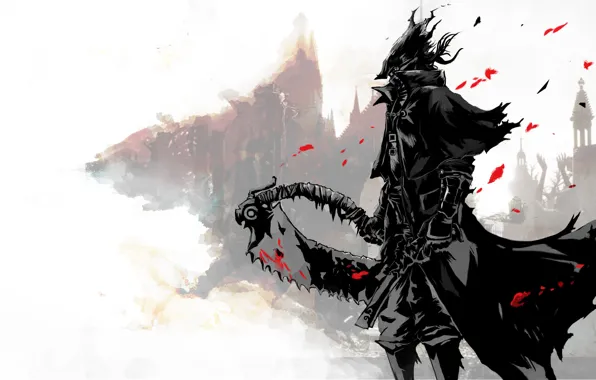


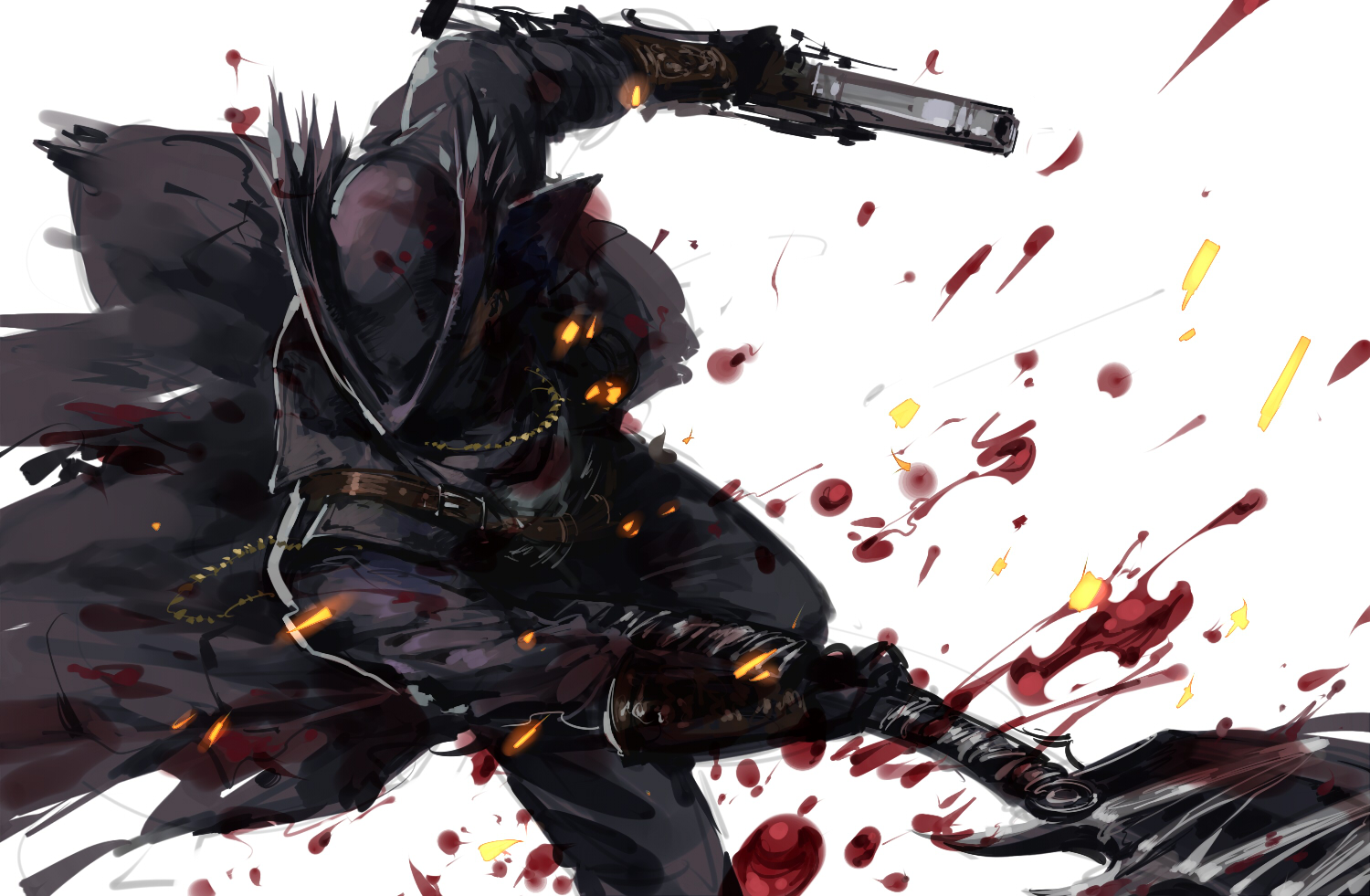



Ruined by the blood
At 20th level you can release the desire for death and destruction raging in your blood to take physical form. Once per day, for 1 hour, you transform into a hybrid beast, anything you are wearing, holding or have on your person when you enter this transformation is shunted to a pocket dimension directly connected to you. You also have the following changes;
- You have immunity to non magical slashing piercing, or bludgeoning damage except when inflicted by a firearm, switch weapon, or silvered weapon.
- You gain vulnerability to silvered weapons.
- You gain vulnerability to firearms and switch weapons.
- You gain vulnerability to fire damage.
- Your creature size changes to large, unless you where small or tiny, in which case it changes to medium, or if you were already large, in which case you become the maximum size for large creatures.
- Your creature type changes to monstrosity and aberration, causing you to be affected by effects that specify either type.
Additionally, while transformed you gain the following features;
- You gain natural weapons, 2 claws and a maw. Both can be used to make unarmed attacks.
- You may double your proficiency bonus when making an attack with your natural weapons attack.
- You may use your Intelligence, Wisdom, or Charisma modifier when rolling to hit, and to your damage roll with your naturel weapons.
- You gain a claw attack, where you attack with both of your claws, each dealing 1d8 slashing damage on a hit.
- You gain a bite attack, which deals 1d6 piercing damage on a hit.
- You sprout a multitude of tendrils, 5 of which count as natural weapons, have a reach of 10ft. and can be used to make unarmed attacks.
- You can make a sweeping tendril attack, where you make a maximum of 5 separate attacks against all creatures in range of your tendrils, dealing 2d4 bludgeoning damage on a hit for each.
- You may make a piercing tendril attack, where you make three attacks using three of your tendrils against one creature, dealing 1d4 for each tendril on a hit.
- You gain a regurgitation attack, which has a range of 5ft., deals 1d6 acid damage, and the target must make a constitution save or be poisoned for 1 round.
- You can make a scream attack, which forces every creature within 20ft. Of you to make a dexterity save or take 1d6 force damage and be knocked prone.
- You gain a multiattack feature which lets you make three attacks using any combination of the attacks you gain from your transformation.
- You can cast Arms of Hadar innately, at will, without expending material components.
- You can cast Psychic Scream innately, at will, without expending material components, once.
- Your natural weapons count as Switch Weapons in regards to you eldritch emergence features requiring them.
- You regenerate 9 hit points at the start of each round unless the damage taken came from a weapon you're vulnerable to, or from a critical hit.
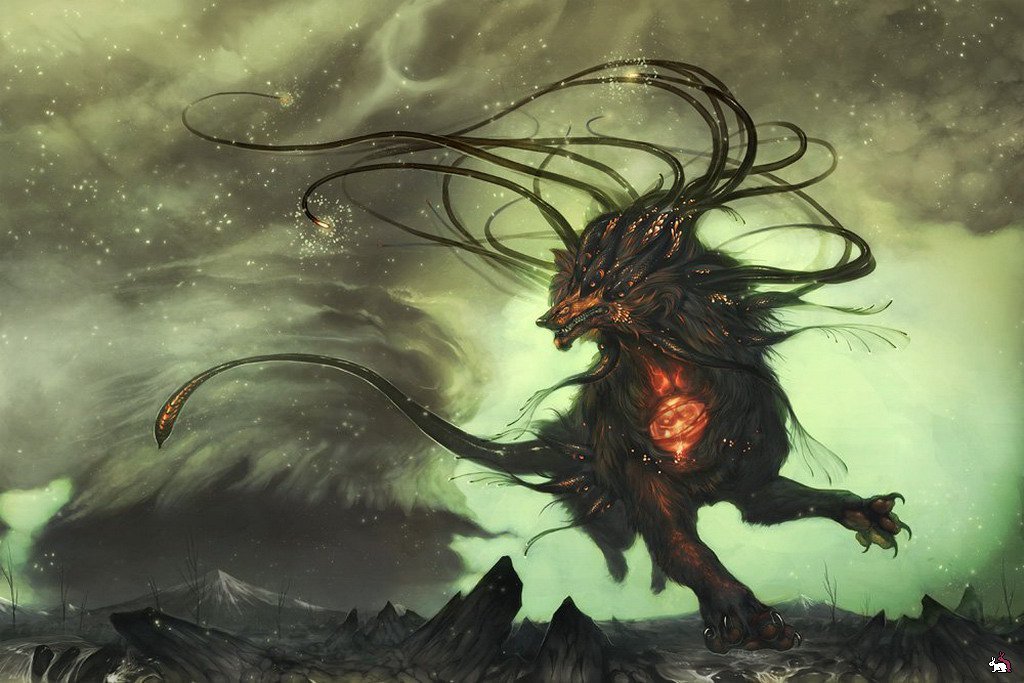





The Fanaticle Crusader
Driven with an unending drive, these Star Touched have taken the trauma of their contact with the Great Old Ones and turned it into a pedestal of strength. Very much like Guardians of the Gate, and Good Hunters, they go around searching for aberrations to cleanse. However, unlike their “brothers”, on either side of the spectrum, they are true believers of the saying “the ends justify the means”. Fanaticle Crusaders have burned and destroyed entire villages on the mere suspicion that there may be a cult worshiping one of, or all, of the Great Old Ones, and that every one of the villagers are tainted by their corruption. They cannot be fully blamed for this however, as many of the Star Touched often use such guises for their own ends, and only another Star Touched could hope to find such things without days of investigation, they know their own.
Fanaticle Crusaders reject the usage of their powers completely, unable to stand the taint of them. This doesn’t help with their insanity however, as only careful training in controlling them would cure them, but it has given them the ability to focus their strengths on physicality while also ironically making their insanity worse. Fanatcile Crusaders refuse to suffer aberrations, and those affiliated with them, using any means necessary to stop the spread of their influence. This includes outright evil actions, as any individual, no matter status, condition, or age can be tortured, kidnapped, or killed in an especially brutal way, such as being burnt alive. The actual innocence of the target doesn’t matter, so long as the taint of The Great Old Ones doesn’t spread. They can even be seen taking their fight on guilds of Eye Tyrants, hunting Aboleths, and raiding colonies of Mind Flayers. Slaying servants, slaves, and followers alike in these cases, as three innocent lives for every one tainted life is considered acceptable. However, this fanaticism reaches deep down to their souls, causing them to take suicidal actions to cleanse even themselves from this world.














Trying to play this sub-class may prove diffficult for some, and it is highly recomended that one avoids doing so if there is a memeber of the party that has an affiliation with something from the Lovecraft mythos, like a Great Old One Warlock.
Rejection of your Heritage
When you choose this Eldritch Emergence at 3rd level, you lose the ability to use your ZUnnatural Casting, Telepathy, and Black Speech features, though you can still read, write, and speak undercommon and deepspeech. You are no longer proficient in charisma and wisdom saves.
You gain the following features in replacement to those you lost;
- Danger Sense: You gain an uncanny sense of when things nearby aren't as they should be, giving you an edge when you dodge away from danger. You have advantage on Dexterity saving throws against effects that you can see, such as traps and spells. To gain this benefit, you can't be blinded, deafened, or incapacitated.
- Action Surge: You can push yourself beyond your normal limits for a moment. On your turn, you can take one additional action on top of your regular action and a possible bonus action. Once you use this feature, you must finish a short or long rest before you can use it again.
- Reckless Attack: You can throw aside all concern for defense to attack with fierce desperation. When you make your first attack on your turn, you can decide to attack recklessly. Doing so gives you advantage on melee weapon attack rolls using Strength during this turn, but attack rolls against you have advantage until your next turn.
You gain proficiency in Strength and Dexterity throws to replace the saving throws you lost, you also gain a +2 to either your strength or dexterity, and a +1 to your constitution.
Price of Rejection
You gain one additional effect of insanity when you choose this Eldritch Emergence at 3rd level.
Death Seeker
When you choose this Eldritch Emergence at 3rd level you have permanent disadvantage on all death saving throws.
Bonus Proficiencies
When you choose this Eldritch Emergence at 3rd level you gain proficiency in Athletics, or Acrobatics, and investigation, shields, medium armor, and martial weapons.
Fighting Style
At 3rd level you adopt a particular style of fighting as your specialty. Choose one of the following options. You can't take a Fighting Style option more than once, even if you later get to choose again.
Archery
You gain a +2 bonus to attack rolls you make with ranged weapons.
Defense
While you are wearing armor, you gain a +1 bonus to AC.
Dueling
When you are wielding a melee weapon in one hand and no other weapons, you gain a +2 bonus to damage rolls with that weapon.
Great Weapon Fighting
When you roll a 1 or 2 on a damage die for an attack you make with a melee weapon that you are wielding with two hands, you can reroll the die and must use the new roll, even if the new roll is a 1 or a 2. The weapon must have the two-handed or versatile property for you to gain this benefit.
Protection
When a creature you can see attacks a target other than you that is within 5 feet of you, you can use your reaction to impose disadvantage on the attack roll. You must be wielding a shield.
Two-Weapon Fighting
When you engage in two-weapon fighting, you can add your ability modifier to the damage of the second attack.
Hardened body
At 3rd level, you have advantage on all constitution saving throws.
Advanced tactics
At 6th, you learn maneuvers that are fueled by special dice called superiority dice.
Maneuvers: You learn the five maneuvers listed below. These maneuvers enhance your attacks in some way. You can use only one maneuver per attack.
Superiority Dice: You have five superiority dice, which are d8s. A superiority die is expended when you use it. You regain all of your expended superiority dice when you finish a short or long rest.
Saving Throws: Some of your maneuvers require your target to make a saving throw to resist the maneuver's effects. The saving throw DC is calculated as follows:
Maneuver save DC = 8 + your proficiency bonus + your Strength or Dexterity modifier (your choice)
Executions
At 6th level you gain executions. Executions are fueled superiority die, but can only be used when a creature drops to 0 hit points due to an attack from you. However, due to their limitations, they give greater bonuses to you, or cause stronger effects. The execution done is determined by the weapon damage type you are using. Some executions require a save, the save DC is the same as your Maneuver save DC.
If a creature has less than 6 hit points, you can use an execution to kill it instantly, but it can make a save, upon a success, it survives and the superiority die is still expended, upon a failure, it is executed. You may also use an execution if you roll a critical hit, and the creature has less than 15 hit points remaining. Useing an execution in this manor kills the creature instantly.
Burn in Righteous Flame
At 12th level ,you have learned to create an incendiary that you may use in place of your executions or on a incapcitated creature. In order to create the incedairy, you must first spend one minute foraging for the necessary materials, and then you must have some way to light the incendiary.
When using the incendairy against one incapacitated creature, it kills it in three rounds unless the flames are put out. It takes an action to put the flames out, and the creature must make a DC 15 wisdom (survival) check and succeed before putting the flames out, and on a critical failure, the flames spread to the creature attempting to put the flames out. Creatures that are immune to fire damage are unaffected, creature’s resistant to fire damage take 1d12 fire damage instead (resistance still applies), creatures vulnerable to fire damage die in 1 round.
It takes an action to light the incedary.
If used in place of an execution, you must also expend a superiority die as well, the incendiary kills the creature, and every creature that can hear and see the event are frightened of you for the rest of the round and one turn after. They are unable to approach the burnt corpse of the creature you killed this way. Creatures immune to fire damage cannot have this execution done to it, nor are they affected by the fear effect and can freely pass over the burnt corpse.
This is an excessively cruel, brutal, and sadistic way to kill a creature, and is considered as an evil action by others.
Dissociation of Mind and Body
At 16th level you can dissociate yourself from your body, causing you to lose your fear of harm and death. On your turn, you can dissociate yourself as a bonus action.
While dissociated, you gain the following benefits if you aren't wearing medium or heavy armor:
- You have advantage on Constitution saving throws
- You have resistance to bludgeoning, piercing, and slashing damage
- You cannot be incapacitated except by magical means or by falling to 0 hit points
- If you were to drop to 0 hit points due to an attack or spell, you can make a Charisma saving throw (DC 5 + the damage taken). On a success, you instead drop to 1 hit point. You can't use this feature if you are reduced to 0 hit points by a critical hit.
- You gain a +20 to your movement speed
If you are able to cast spells, you can't cast them or concentrate on them while dissociated.
Your dissociation lasts for 1 minute. It ends early if you haven't used any of your Eldritch emergence features or if your turn ends and you haven't attacked a hostile creature since your last turn or taken damage since then. You can also end your dissociation on your turn as a bonus action.You may dissociate a total of 5 times before you may do so again. If you have dropped to 0 hit points while dissociated or leave your dissociation with half or below your total hit points, you gain 3 levels of exhaustion and your walking speed is halved.






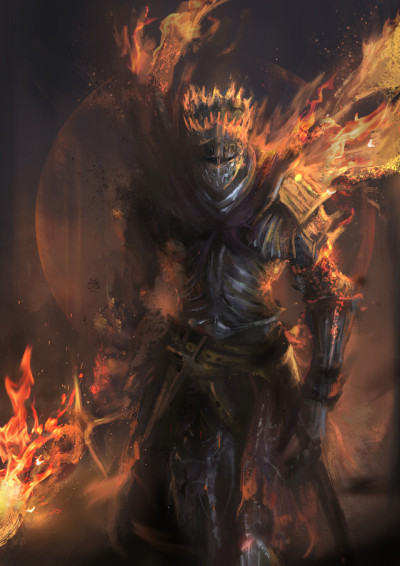










Fervor of the Fanatic
Your fervor for the destruction of the taint allows you to pull impossible feats. Once per day, you may use your executions without expending superiority die, and may kill any creature that could be killed by said executions, of CR 9 or lower when you successfully hit the creature, additionally, you get criticals on 19s and 20s, for one hour.
You may also decide to take 4d10 additional damage to increase the CR maximum by one to a maximum of four times. You must take this damage every time you attack.









Manuvers
Disarming Attack: When you hit a creature with a weapon attack, you can expend one superiority die to attempt to disarm the target, forcing it to drop one item of your choice that it's holding. You add the superiority die to the attack's damage roll, and the target must make a Strength saving throw. On a failed save, it drops the object you choose. The object lands at its feet. Lunging Attack: When you make a melee weapon attack on your turn, you can expend one superiority die to increase your reach for that attack by 5 feet. If you hit, you add the superiority die to the attack's damage roll.
Pushing Attack: When you hit a creature with a weapon attack, you can expend one superiority die to attempt to drive the target back. You add the superiority die to the attack's damage roll, and if the target is Large or smaller, it must make a Strength saving throw. On a failed save, you push the target up to 15 feet away from you.
Sweeping Attack: When you hit a creature with a melee weapon attack, you can expend one superiority die to attempt to damage another creature with the same attack. Choose another creature within 5 feet of the original target and within your reach. If the original attack roll would hit the second creature, it takes damage equal to the number you roll on your superiority die. The damage is of the same type dealt by the original attack.
Menacing Attack: When you hit a creature with a weapon attack, you can expend one superiority die to attempt to frighten the target. You add the superiority die to the attack's damage roll, and the target must make a Wisdom saving throw. On a failed save, it is frightened of you until the end of your next turn.
Executions
Off with his head: Caused by a weapon that deals slashing damage. You brutally slash off a creature's head, killing it, and causing you to gain advantage on your next attack.
Smashed to dust: Caused by a weapon that deals slashing damage. You savagely smash portions of the creature's body, forcing every creature that can see the event to make a save, on a failure, they are given the frightened condition. Creatures that can not see you are unaffected.
Stabbed through the heart: Caused by a weapon that deals piercing damage. You cruelly run the creature through the heart, before lifting it up and pulling your weapon free. Any creature that attacks you has disadvantage next turn.
A kill shot: Caused by a ranged weapon. You fire your one shot of your ammunition through the creature’s head, causing it allies within 5ft. of it to be stunned. Creatures that can not see you are unaffected.
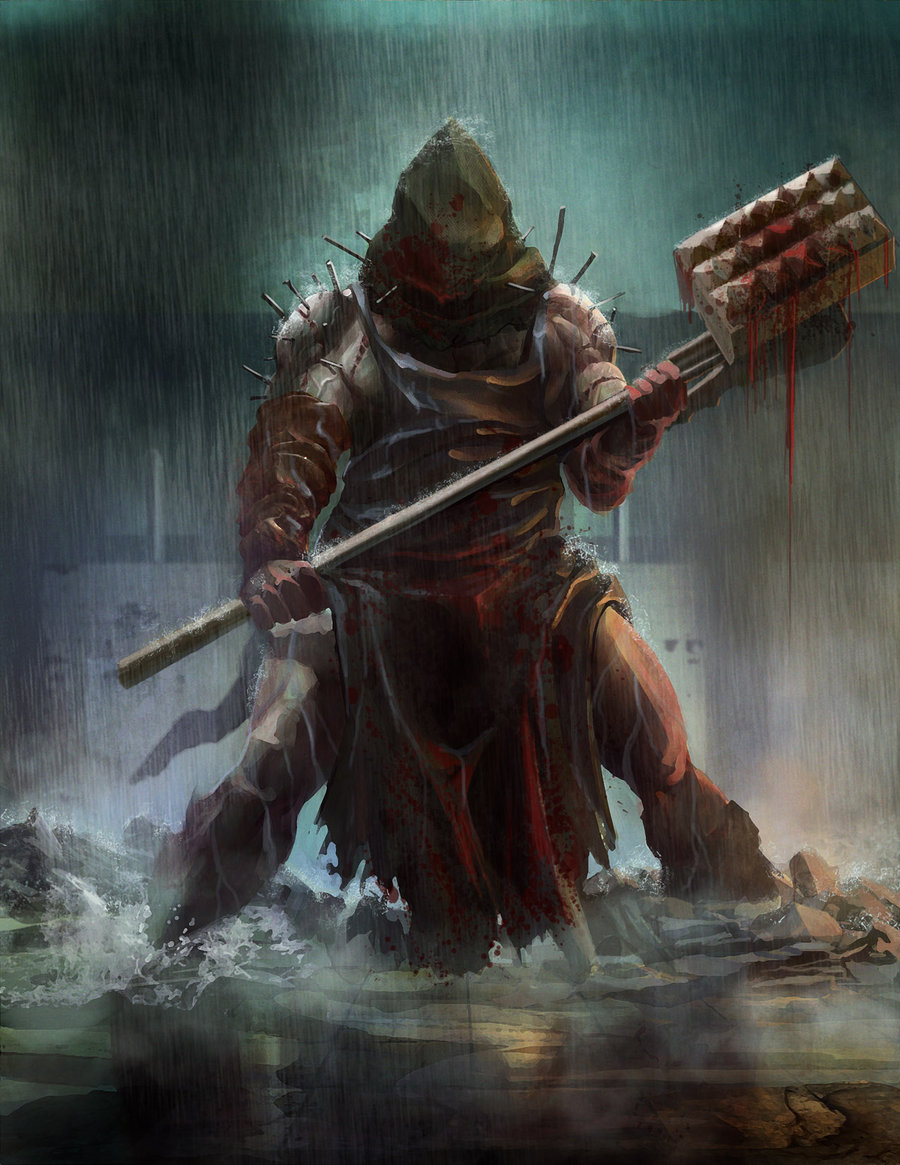



Rapturous Prophet
Quite possibly the worst of the worst of the Star Touched, these individuals are exactly what the Occultist had tried to be, what Mad Speakers failed to be, holders of the knowledge that Cosmic Scholars seek out so desperately, and what the Guardian of the Gate, Good Hunter, and Fanaticle Crusader try to purge from the prime material plane. Mad beyond compare, they gleefully serve their “gods” in every manner presented to them, with no cost to high, no action to disdainful, they bring chaos for the sake of chaos.
Rapturous Prophets are often the leader of cults, and often have a host of occultists serving under them, promising them ascension in the same manner that they have achieved it, whispered lies of the mad to the mad. Rapturous Prophets have no higher beliefs, they see no point in life, thinking of it as a mistake, and seeing undeath as nothing more than a falsehood of life, they crave for death and destruction. They do not care if their “gods” do not care for them, they do not care what happens to their soul after death, they do not care about the lives of other beings, they view the whole of creation as a mistake. They greatest gift they could ask for is to be one with one of their “gods”, be it as having their soul devoured, being absorbed into their bodies, or joining them in eternal servitude.
Nihilistic views and morality
Due to the extremity of your insanity, you are capable of doing everything. You have no goals short of those given to you by the Great Old Ones, and even then you know that they may not actually care if said goals are ever accomplished, or what the cost of said goals are. IF you had to give one goal for your miserable life, it would be to allow the Great Old Ones the power to do what they wish for the various planes of reality. Everything and everyone, including yourself, is nothing more than a tool, a meaningless tool at that, for this end.
You do not suffer any penalties that normal characters would if you were to commit an act of great evil, besides the resulting shifts of opinions and viewpoints that such an action would cause.
Chaos for Chaos’s sake
You must actively create as much strife as possible in as many places as possible when given the chance to do so, for no other reason other than to do so. This does not mean that you do so indiscriminately however. In your inherently contradictory nature, you have an orderly way of setting things to spin out of control. Everything you do is for the Great Old Ones, the beings that embodied insanity and chaos in its purest form, and so only the purest offerings of insanity and chaos are acceptable.
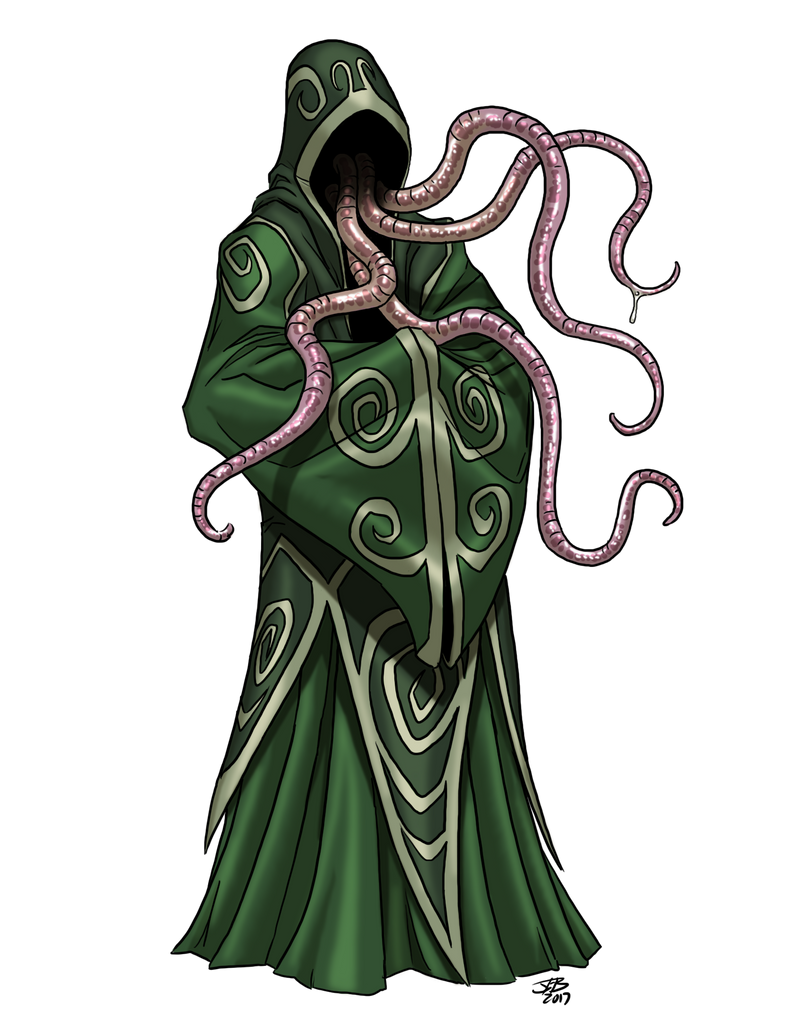





Friend to the Dark
Sentient evil beings that have the capacity to know what the nature of your soul/alignment are, under normal circumstances, neutral or unfriendly towards you. You are capable of working with Devils and Demons, Yuan-ti, Werewolves, or even the minions of evil gods. However, just because you are capable of working with these beings, you are in no way friends, but are actually temporary allies in the best of circumstances, and you will engage in hostilities just as often as you do not. The end of these encounters depends entirely on whatever you, and the second party, are trying to accomplish, and for what reason you are trying to accomplish that goal. You are first and foremost, forever and always, a servant the Great Old Ones, before any other mortal connections.
Contradictory nature
Due to the nature of your extreme insanity, you have an inherently contradictory nature. While you believe in nothing, you Worship the Great Old Ones as divine beings, while you only wish for chaos for the sake of chaos, you wish for it as a way to honor the Great Old Ones, and finally, while you cause as much chaos as possible, and whenever possible, you limit yourself to the absolute best opportunities to do so. You are a natural planner, orchestrating grand designs that mean absolutely nothing in the end. You lead cults dedicated to causing meaningless destruction and death, but the cults have strict rules and a stratified hierarchy. You think in the long term, but said long term is nothing more than meaningless chaos. The biggest contradictory action you partake in is causing the chaos, which is supposed to be meaningless in nature, but is also MEANT to be an offering to your “gods”.
Enlightened madness
When you choose this Eldritch Emergence at 3rd level, you choose an additional 3 symptoms of madness, you cannot be cured of your madness by anyrthing short of a Wish.
Enhanced Unnatural Casting
Your unique mind set has increased your innate magical abilities. When you take this Eldritch Emergence at 3rd level your innate casting table expands. You immediately learn mage hand with the following alterations;
- The hand is invisible always
- You can stow one object the hand is holding in a container worn or carried by another creature.
- You can retrieve an object in a container worn or carried by another creature.
- You can use any tools that you are proficient with (if any). You also learn the following cantrips, Eldritch Blast, Guidance, Vicious Mockery and Minor Illusion.
You are able to cast these cantrips a number of times equal to your intelligence modifier per day, and you use your intelligence modifier when casting them.
Additionally, you also gain Cause Fear, Calm Emotions, and Detect Thoughts at 3rd level, Telekinesis and Rary's Telepathic Bond at 12th level, and finally Telepathy at 16th.
You use your Wisdom modifier when casting these spells, you must use material components, a focus, or take 1d4 psychic damage that cannot be mitigated in any way. You can only cast each spell once per day using this feature.
Eldritch Blasphemies
Your deep bond to the Great Old Ones has given you a unique ability to use spells, at a great cost.
Unique casting
Unlike every other class/sub-class with the capability to properly cast spells, you do not have any spell slots, but rather gain access to certain spells that require \you taking 1d6 psychic damage for every time you cast. The cost of the spell goes up by an additional 1d4 for every level it goes above 3rd., maxing out at 4d4.
Additionally, you have a maximum casting amount per day, which goes up at certain levels as you progress in this class, and you cannot go over this maximum casting limit per day.
You know every spell on your spell list, and if you are of a level that lets you cast it, you already have it prepared and ready to cast at any time. The only exception to this are spells of 6th level and above. You may only cast 6th level and above spells once per day at any point of time.
Finally, any and all of your spells that you can cast in this class change to being considered Psionics instead of Arcane magic.
You use your intelligence modifier to cast these spells.
Spell save DC= 8 + your proficiency bonus + Intelligence modifier.
Spell Attack modifier= your proficiency bonus + Intelligence modifier.

Blasphemous Gift
You have been a “gift” to focus your rampaging energies by your “gods”, most likely by mistake. You have a Blasphemous gift, which is used as your focus to cast your spells. Your blasphemous gift is an item that can either be worn or held. You can freely construct your own blasphemous gift, but it must be constructed of materials that would be considered a crime to obtain, such as desecrated artifacts, or the bones of a sentient being you killed. It’s appearance is whatever you decide it to be.
Depending on the materials involved with constructing your Blasphemous Gift, your DM will decide the difficulty getting them and the time it takes to craft it.



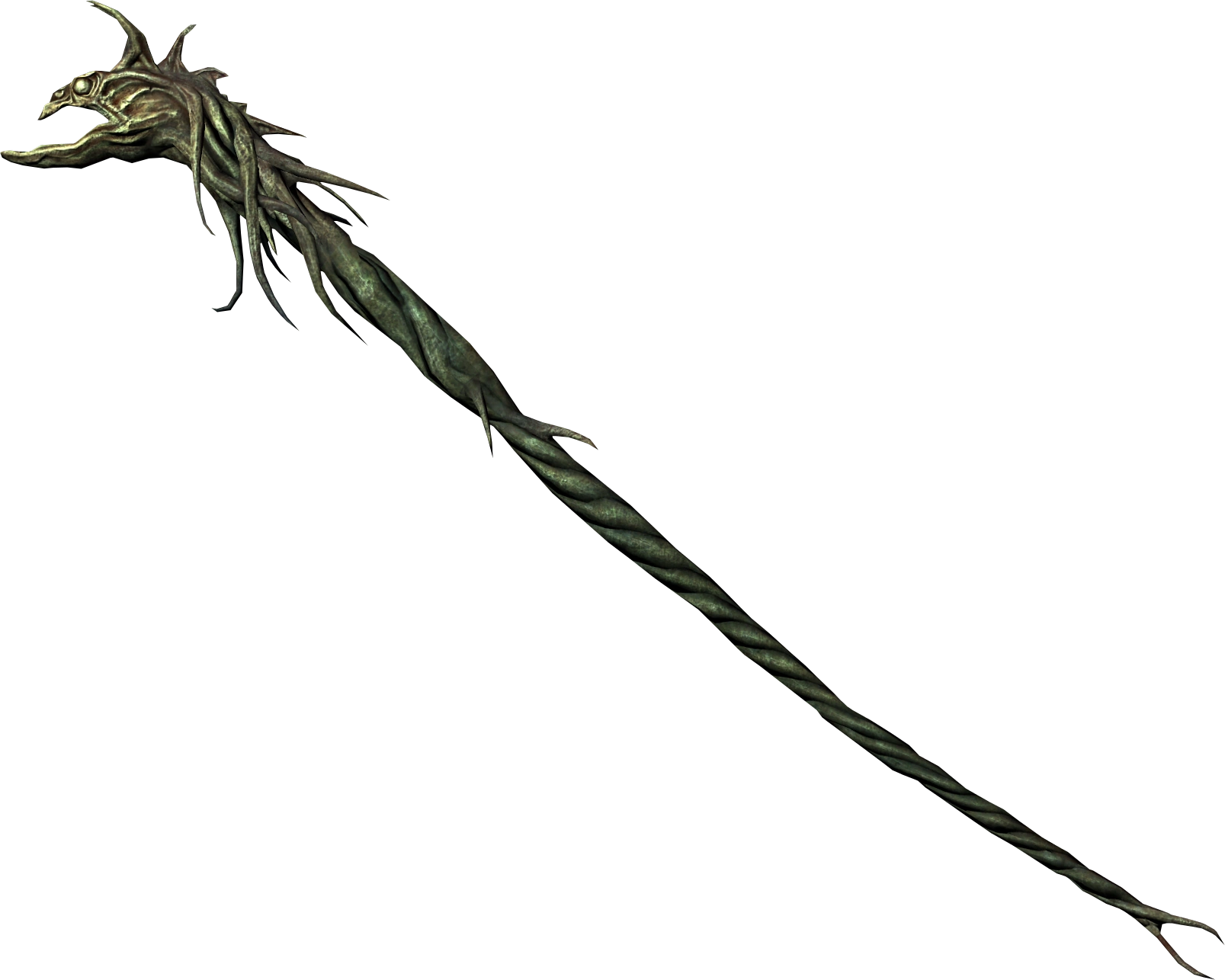






The Rapturous Prophet
| Level | Castings per day | Max Spell level | 6th | 7th | 8th | 9th | |
|---|---|---|---|---|---|---|---|
| 3rd | 3 | 2nd | — | — | - | - | |
| 4th | 3 | 2nd | - | - | - | - | |
| 5th | 3 | 2nd | - | - | - | - | |
| 6th | 4 | 3rd | - | - | - | - | |
| 7th | 4 | 3rd | - | - | - | - | |
| 8th | 4 | 3rd | - | - | - | - | |
| 9th | 5 | 4th | - | - | - | - | |
| 10th | 5 | 4th | - | - | - | - | |
| 11th | 5 | 5th | - | - | - | - | |
| 12th | 6 | 5th | once | - | - | - | |
| 13th | 6 | 6th | once | - | - | - | |
| 14th | 6 | 6th | once | - | - | - | |
| 15th | 7 | 7th | once | once | - | - | |
| 16th | 7 | 7th | once | once | - | - | |
| 17th | 7 | 8th | once | once | once | - | |
| 18th | 8 | 8th | once | once | once | - | |
| 19th | 8 | 9th | once | once | once | once | |
| 20th | 8 | 9th | once | once | once | once |
Unarmored Defense
Starting at 3rd level, when you are not wearing armor of any kind, your AC becomes 6 + your intelligence modifier + your wisdom modifier + your charisma modifier.
Rend for the Old Ones
When you take this Eldritch emergence at 3rd level, you can turn your weaponry toxic to the mind as well as the body. When you take the attack action, you can decide to add an additional 1d4 of psychic damage to the attack.
You can only use this feature three times before needing to take a long rest to do so again.
Stressful Sermon
Also at 3rd level, you may use an action to sing a tune of madness, causing each creature in 20ft. of you to make a Wisdom save. Those that fail have disadvantage on their next attack.
Preaching of the mad
Starting at 6th level you can now infect every word you say with madness. You gain the following options:
- If you speak to a humanoid alone for at least 1 minute, you can attempt to seed paranoia and fear into its mind. At the end of the conversation, the target must succeed on a Wisdom saving throw against your spell save DC or be frightened of you or another creature of your choice. The target is frightened in this way for 1 hour, until it is attacked or damaged, or until it witnesses its allies being attacked or damaged.
If the target succeeds on its saving throw, the target has no hint that you tried to frighten it.
- When a creature that you can see within 30 feet of you makes an attack roll, an ability check, or a damage roll, you can use your reaction to impose disadvantage on it.
You may use this feature three times before needing to take a long rest.
Abominable “Gifts”
Starting at 6th level you begin to be “gifted” horrific mutations. These “gifts'' are the only thing that could be considered to have meaning to you, besides your “gods”, and so you are more than willing to show them off to the world, unless it interferes with one of your plans.
Every abominable gift causes a -3 modifier to your charisma rolls during any kind of diplomacy, excluding intimidation. This malus is instead turned into a bonus when doing diplomacy with other cultists, and allows you to say your piece, leave without hostilities or even cause a friendly attitude when in regards with other evil creatures.
This only applies if they are openly displayed.
The malus doubles for good aligned creatures.
You gain additional gifts at higher levels
At 6th level you have access to the following abominable gifts. You can instead roll a d4 to decide which abominable gift is applied. You may also roll a d6, where a 6 causes you to gain two gifts instead of one, and a 5 causes you to get nothing. If you choose the rolling option, you must continue to do so every time you gain a gift.
01: Piercing Tendril
The gift causes a large, pinkish red cyst to sprout from your back, which holds the tendril. Everytime you take the attack option, you may decide to use the piercing tendril instead. You can only attack once using it, it deals 2d6 piercing damage, and uses your wisdom modifier to hit and damage. This gift slithers inside of your back at will, and slithers out, and around your arm at will. When it is out, you cannot use that arm for anything other than attacking. It looks like a reddish, pink octopus arm that has a hook at the end of it, and it has teeth instead of suction cups. It has a reach of 10ft.
02: Siren Jaw
The gift causes a medium, reddish, pink cyst to grow at the base of the back of your neck, and if you are female, an Adams apple-like bulge to push out through your throat. As an action, you can cause two fleshy, pulsating, boneless, reddish, pink lower jaw pieces to slide together and a set of lower teeth to force their way up through your throat, finishing the lower jaw. Using the siren jaw, you can add an additional 1d6 to your black speech feature. You may use an action to reverse the process, and so long as the gift is out, you cannot speak anything but Deep Speech.
03: Explosive Pustules
The gift causes hundreds of thousands of cancerous, bloody, pustules of varying sizes to form around your body. As a reaction, you can decide to take 1d4 force damage after being attacked, and if you do, the attacker gets dealt 1d4 acid damage from pustules that you forced to pop, and the attacker must make a constitution save or be poisoned for one turn.
04: Aberrant Arms
The gift causes eight reddish, pink tendrils to sprout randomly on your lower body, around your legs. You gain a climb speed equal to your movement speed, and each individual tendril can hold an item of 5lb., but cannot wield weapons.
05: Nothing
You fail to form a gift, causing disadvantage on all of your ability rolls until your next long rest.
06: Two picks
You manage to form two gifts instead of one, you may roll for these gifts again using a d4 (rerolling if you get the same result). Additionally, you gain a +1 to all of your ability rolls until your next short or long rest.
All of these gifts can be concealed using armor or clothing, but in order to use them the armor or clothing must be specially made to you to do so, or you must be wearing rags or an easily removed robe.
At 12th level you gain an additional chance to form an abominable gift. You also gain more additional options, letting you choose an additional level 6 gift, or one level 12 gift. You may roll instead if you did so before, and you must use the die you used before while doing so.
01: Lashing Tongue
The gift causes your tongue to enlarge, elongate, and grow teeth. You can use your bonus action to lash your tongue against one creature, it deals 1d6 slashing damage on a hit. You use your charisma modifier when rolling to hit. You are unable to normally speak with this gift, forcing you to use stuttering and broken language, but can speak Deep Speech and Abyssal (if you know it) perfectly.
- If you already have the Siren Jaw gift, you can no longer retract it, and you can no longer speak anything but Deep Speech, gaining a +1 when rolling persuasion checks with creatures who can understand you, but forcing you to find alternative ways to communicate to those that can’t.
- This gift doesn’t interact with the repurposed spine gift.
02: Repurposed Spine
The gift has caused your spine to become redundant, giving you a +1 to con., and so it has drastically altered it. You are now able to pull your Spine out through your mouth, the hip/tailbone portion has become a sharpened tip, and you can use your reaction to attempt to hit a creature in front of you dealing 1d8 piercing damage on a hite. You may use your intelligence modifier when rolling to hit. It has a reach of 10ft.
- This gift doesn’t interact with any other gift.
03: Boneless Limbs
The gift causes all of your limbs to become reddish, pink and boneless. They also lose their fingers and toes, becoming a tendril, with your legs splitting to form three. This gives you advantage with dexterity (sleight of hand) checks, causes your climbing speed to have a minimum of 30ft., but also causes you to lose 10ft. in movement speed.
- If you have the piercing tendril gift, you are no longer able to retract it, and it fuses with your arm, which retains its original structure and doesn’t turn into a tendril, and your pointer, middle, and ring fingers fuse with the end of the tendril. The tendril can now switch between doing slashing (having repurpose the bones of your fingers to form a makeshift blade) or piercing damage.
- If you have the aberrant arms gift, you also gain a swimming speed of 20ft.
04: Undulating Lips
The gift causes your entire upper jaw to split into four writhing, toothed, reddish, pink tendrils. You can no longer speak any language other than Deep Speech, nor do you need to form somatic components for any spells you cast, your tendrils doing both for you.
- If you already have the Siren Jaw gift, you can no longer retract it, but you regain the ability to speak undercommon, the tendrils and lower jaw contorting unnaturally to do so, which causes any attempt at persuasion failing immediately unless the creature is an aberrant, devil, demon, hag, or any other creature of evil alignment.
05: Nothing
You fail to form a gift, causing disadvantage on all of your ability rolls until your next long rest.
06: Two picks
You manage to form two gifts instead of one, you may roll for these gifts again using a d4 (rerolling if you get the same result). Additionally, you gain a +1 to all of your ability rolls until your next short or long rest.
You are unable to wear armor anymore, and you cannot wear normal clothing. You cannot conceal any of your gifts anymore, unless you are wearing rags or an easily removed robe with a hooded cloak, and even then, any creature that makes a DC 9 wisdom (perception) check will immediately know about your mutations.
At 16th level you once again gain the option to pick another abominable gift. You may choose the last two level six gifts, one more level 12 gift, or one level 16 gift. If you rolled the last two times, you must do so once more.
01: Arachnoid lower body
The gift causes you to manifest a carapaced lower body that has eight segmented legs, four of which have been repurposed to be used as grasping claws. The first pair lies at the point of origin between your upper and lower bodies, and can be used to hold items of 5lb. maximum, but cannot hold weapons. The second, larger pair lies where your first set of legs would have lied, and can be used to make a one slam attack that deals 1d8 bludgeoning damage on a hit, and the target must succeed on a DC 12 strength (athletics) check or be knocked prone. They can be used to carry items that are 20lb. maximum. You gain an additional 2ft. in height, and 10lb. in weight. You gain a +3 to your AC.You may use your intelligence, wisdom, or charisma modifier (whichever is highest at any point of time) when rolling to hit and damage.
- If you have the boneless limbs gift, the first set of grasping claws instead become tendrils that function as normal arms, with a third tendril that also acts as a functional arm. You also regain your lost movement speed.
- If you have the aberrant arms gift, the tendrils ring the the point of connection between your upper and lower bodies, and each arm can now carry 5lb. each, maximum. Your climbing speed goes up by 5ft.
- If you have both the boneless limbs and aberrant arms gifts, your swimming speed is increased by 5ft.
02: Bladed Tail
The gift causes you to sprout a tail that has converted your tailbone into a cutting blade. You can use your action to make two tail attacks, which deals 1d8 bludgeoning, or 1d8 slashing (your choice) damage on a hit. You may use your intelligence, wisdom, or charisma modifier (whichever is highest at any point of time) when rolling to hit and damage.
- If you have the piercing tendril gift, you can still make one attack using your tail.
- If you have the repurposed spine gift, you gain the ability to shoot spikes of bone, which deal 1d8 piercing and have a range of 10/50ft. You may use your intelligence, wisdom, or charisma modifier (whichever is highest at any point of time) when rolling to hit and damage.
- If you have both the piercing tendril and repurposed spine gifts, you can make an additional attack even if you attack using the piercing tendril.
03: Vestigial Heads
The gift causes your hands on each of your arms to twist, distort, break, and eventually form into two mouths that have vestigial eyes sporadically dotted around them, have useless grey matter exposed and are filled with three rows of flat, crushing teeth. You may attempt to grapple one creature where it must make either a Strength (Athletics) or Dexterity (Acrobatics)-its choice-or it is considered grappled. Each turn the creature is grappled, it takes 3d6 bludgeoning damage, the target is restrained, and it may repeat the save at the start of every one of its turns. You become unable to hold weaponry. You may use your intelligence, wisdom, or charisma modifier (whichever is highest at any point of time) when rolling to hit and damage.
- If you have the piercing tendril gift, your arms each gain one piercing tendril, and may each attack using them once. The tendril acts as a tongue
- If you have the boneless limbs gift the heads become functional, giving you the following benefit: While you have more than one head, you have advantage on saving throws against being blinded, charmed, deafened, frightened, stunned, and knocked unconscious. Whenever you take 25 or more damage in a single turn, one of the two extra heads dies. If both heads die, you lose this benefit. You regrow any lost heads every short or long rest. You cannot use your heads for anything other than attacking.
- If you have both the piercing tendril and boneless limbs gifts, you are able to make a multi attack where you use one of each attack you gain from the vestigial head and piercing tendril gifts. You gain the same benefits as you do when you have the boneless limbs and vestigial heads features. The piercing tendril acts as a tongue for the heads. You cannot use your heads for anything other than attacking.
04:Bulging Eye
The gift causes you to grow a huge, bulging eye that takes up the entirety of your stomach region. You can use this eye to force any creature within 10ft. of you, that you can see, or can see you, to make a DC 10 Wisdom save, otherwise it becomes stunned.
- If you have the exploding pustules gift, you no longer take force damage when using your reaction to activate them. The pustules center around the edges of the eye and take up your chest region.
05: Nothing
You fail to form a gift, causing disadvantage on all of your ability rolls until your next long rest.
- If you have failed to manifest a gift all three times you have attempted to, you have managed to gain the ire of the Great Old Ones, consciously or subconsciously. You subtract your constitution modifier from your current total hit points, and you do not add it when rolling for to gain hit points when you level up.
06: Two picks
You manage to form Either the two gifts from the level 6 list along with one from the other two so long as you have already manifested two of the four level 6 options, two from any list, or two from the 12th or 16th level list Additionally, you gain a +1 to all of your ability rolls until your next short or long rest.
- If you have managed to pick two from any list every time you have rolled, you have strengthened your body, allowing you to add your constitution modifier to your AC.
You can no longer conceal your gifts.




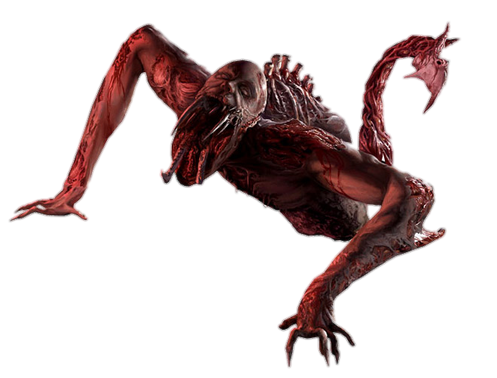






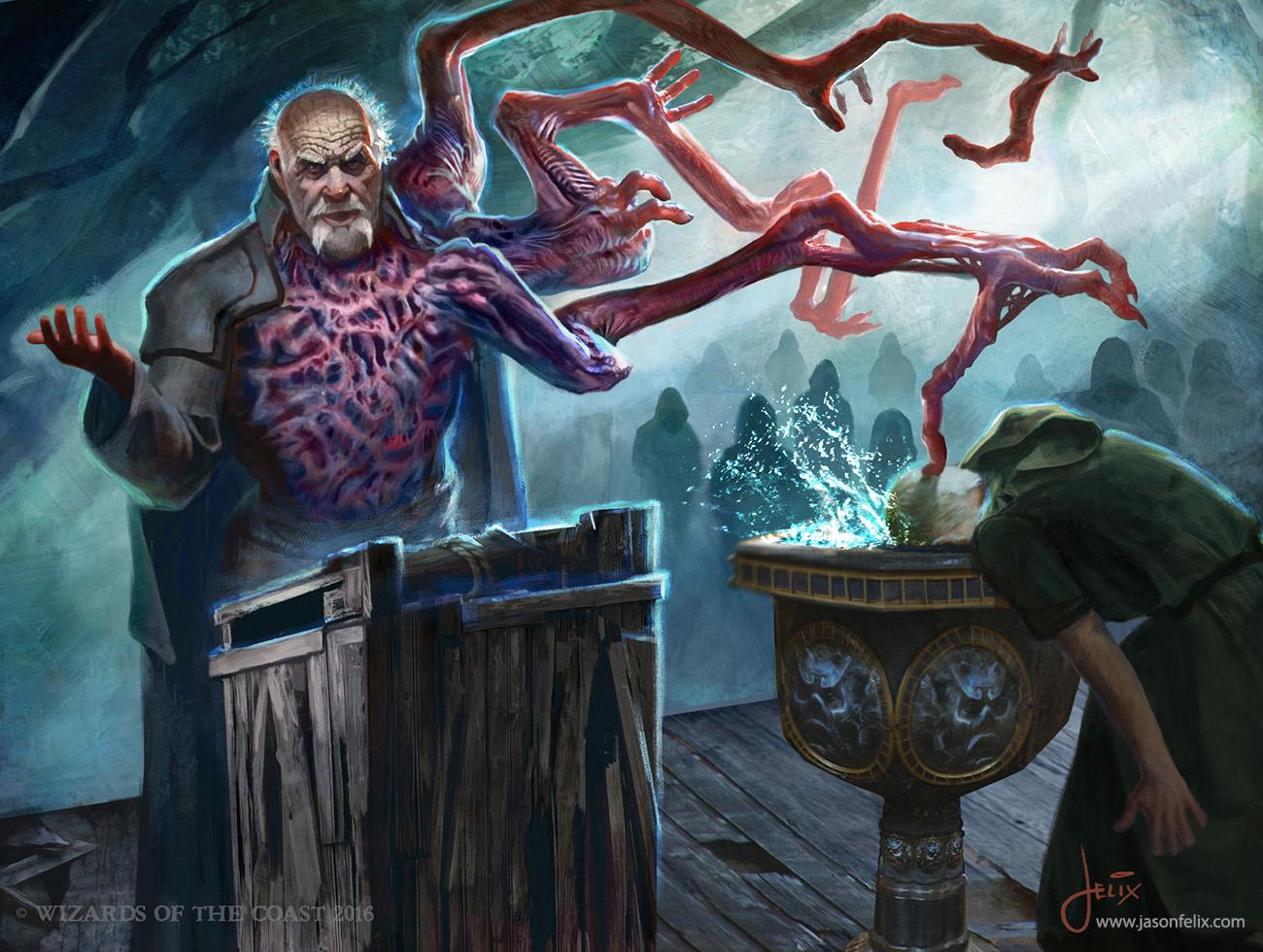






Tearing of the fabric
At 16th level you have gained the ability to manipulate the battlefield in unprecedented ways. As an action you may choose one of the following for the following effects:
- You summon two spectral tentacles that appear in any space that you can see and is in 60ft. Above you. The tentacles have a reach of 10ft and attack any hostile creature that enters into its range and deals psychic and bludgeoning damage. It uses a d6 for damage and adds your Wisdom modifier to the hit. You may change the position of one tentacle as a bonus action, andWhen you or a creature you can see takes damage while within 10 feet of the tentacle, you can use your reaction to choose one of those creatures and reduce the damage to the chosen creature by half. After doing so, the tentacle vanishes. Otherwise, the tentacle last for 1 minute.
- You summon spectral tentacles that fill a 20-foot square of ground that you can see within 30ft. of you. For the duration, these tentacles turn the ground in the area into difficult terrain.
- Inky pools of darkness, of varying sizes, with tiny, ebony, writhing tendrils, appear around and above you. In the center of these tendrils are yellowed, distorted eyes, each of which has 1 HP, and an Armor class of 10. So long as these eyes are present, you gain a +3 to your passive perception and cannot be flanked or taken by surprise. The eyes last for 1 minute, but they can be targeted for attacks. If all of the eyes are destroyed before 1 minute is up, you take 2d10 psychic damage. The amount of eyes spawned is equal to your Intelligence modifier.
- As an action, choose a point you can see within 60 feet of you. For 1 minute, a spectral maw manifests in a 10-foot radius centered on that point. The maw has a reach of 10ft., attacks any hostile creature that enters its range and uses your Charisma modifier to hit. Any creature that starts takes damage from the maw takes 3d6 psychic and piercing damage. As a bonus action, you may move the maw to a different position.
The amount of uses you have for this feature equals ⅓ of your Intelligence, Wisdom, and Charisma modifier added together and rounded down (minimum of once). Additionally, you may have 3 of the feature’s option active at the same time. You regain all uses at the end of a long rest.
Blasphemous Feast
At 16th level, you may use your action to feast upon your own flesh, dealing 1d4 piercing damage. When you do so, you regain one casting per day that you use for your spells. You may add additional d4s to regain additional castings, to a maximum of 6d4s and 6 castings.
If you have the undulating lips gift, you may instead use the following attack to regain your castings. You may only regain 6 castings using this method.
Extract Brain: You must target one incapcitated creature that you can physically touch, it takes 1d10 piercing damage and is considered grappled by you if it is not already so. At the beginning of each of its and your turns it takes an additional d10 of piercing and psychic damage. If the creature is reduced to 0 HP by this damage, it is killed and has its brain extracted by you, which is then devoured, causing you to regain 1d6 HP. You cannot take any other actions while you have a creature grappled in this manner.
Unholy child
At 16th level, you can choose to partake in a three day ritual, at the end of which you have 3 levels of exhaustion, all of your features have been used up, and you have only 1 hit point left. Also at the end of the ritual, you become pregnant with an aberrant child, regardless of what gender you are, as a gift from your “gods”. The length of the pregnancy is determined by your DM, so to is the fact whether or not it follows the same line of progression as normal pregnancies do.
At the end of the time period where you are pregnant with the child, you begin to give birth, immediately, no matter where you are, or what condition your body is in. When you give birth to the child, you must roll a d20. On a 1 or 20, you die immediately, the child tearing its way out into the world destroyed your body beyond repair. If you survive, you take 1d20 piercing damage, which cannot be mitigated in any way.
The eldritch child has four phases of life, newborn, baby, juvenile, and adult. How long it takes the child to grow through each phase is set by the DM. The child is fiercely protective of you, but is unfriendly to anything It merely protects you. and everything else, though it will only attack if you do, or if you are attacked. It takes its own turns, has its own initiative, and doesn’t take orders. It merely protects you. It’s appearance is a cross between the corresponding life stage of what your race is, one Great Old One of your choice, and every abominable gift (this has no bearing stat wise). The stats used for its life stages are listed below.

Aberrant Child(new born)
Uses the Troglodyte state block with the following changes;
-
Its creature type changes to aberration.
-
It gains the Telepathic Bond feature.
-
It loses the chameleon skin feature.
-
Its size turns into tiny.
-
Its movement speed becomes 5ft.
-
Its hitpoints drop to 9.
-
It loses the +2 to its attacks.
-
Its intelligence, wisdom, and charisma scores become 9.
-
It loses the +2 to its stealth.
-
It understands every language you do, but can’t speak.
-
It can be carried.



Aberrant Child(baby)
Uses the Ghast state block with the following changes;
-
Its creature type changes to aberrant.
-
Its size changes to small.
-
Its hit points drops to 20.
-
Its claw attack no longer causes paralysis, or the related saving throw.
-
It loses the Turn Defiance feature.
-
It loses the Stench feature.
-
It understands every language you do, but can’t speak.
-
Its intelligence, wisdom, and charisma scores become 9.
-
It can be carried.
-
Its constitution score becomes 14.
-
It loses all resistances and vulnerabilities.
-
It gains the Telepathic bond trait.



Aberrant Child(juvenile)
Uses the Red Slaad stat block with the following changes;
- It loses the Variant: Control Gem trait.
- Its claw attack no longer forces the Constitution saving throw, nor does it infect the target with a Slaad egg.
- It gains the Telepathic bond trait.
- It has fully manifested every abominable gift, giving it the features, traits, and attacks that each gift gives.
- May use the attacks granted to it by the abominable gifts when taking the multi-attack option in place of either the bite and/or two claw attacks.
- Its intelligence, wisdom, and charisma scores become 9.
- Its Dexterity score becomes 17.
- It understands every language you do, but can’t speak.
- It loses all resistances and vulnerabilities.
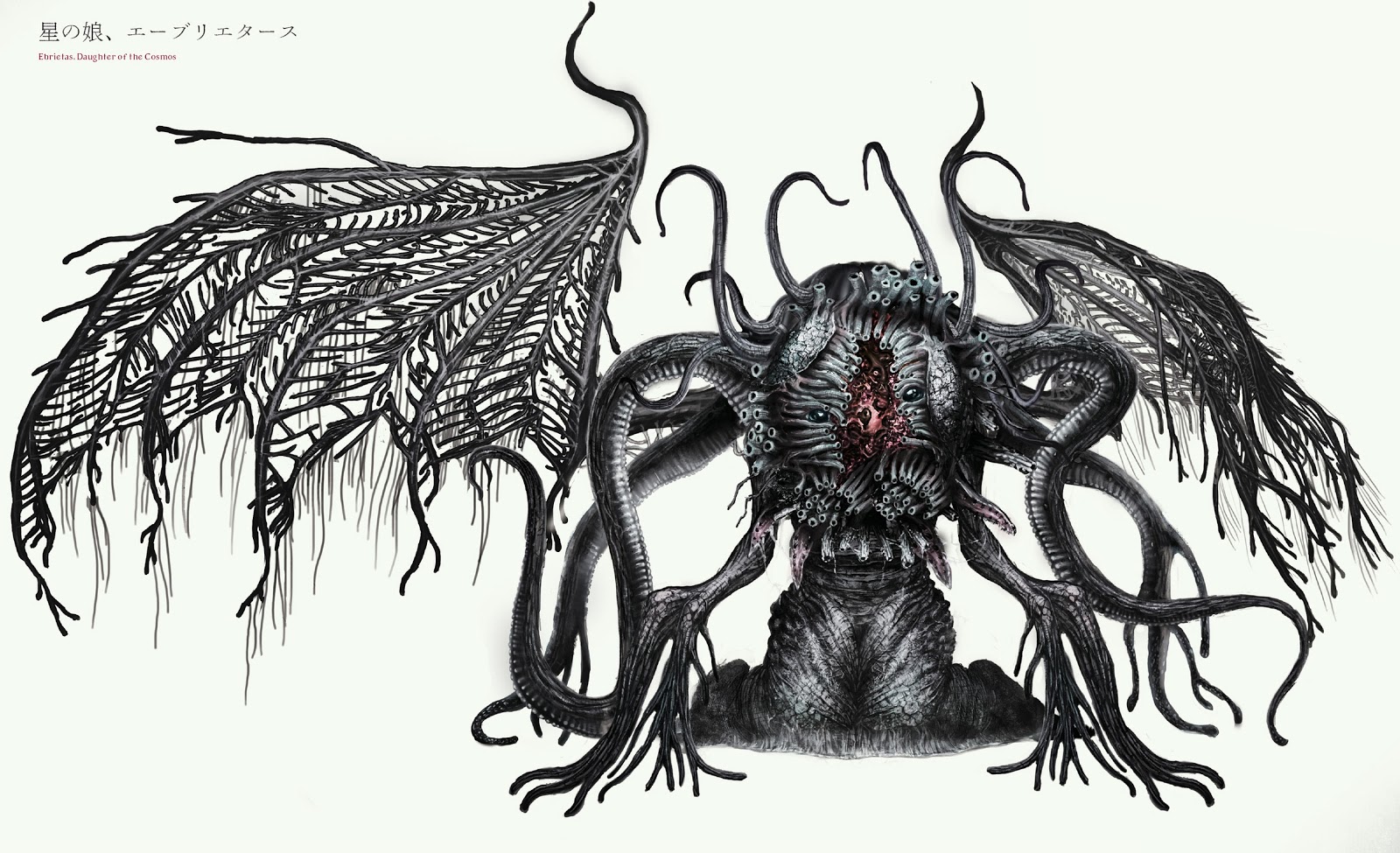






Aberrant Child(Adult)
Uses the Gray Render stat block with the following changes;
- Its creature type changes to aberration.
- Its Intelligence, Wisdom, and Charisma scores become 10.
- It is considered intelligent and chaotic evil in nature.
- Its dexterity score becomes 17.
- It understands every language you do, but can’t speak.
- It has fully manifested every abominable gift, giving it the features, traits, and attacks that each gift gives.
- May use the attacks granted to it by the abominable gifts when taking the multi-attack option in place of its bite and two claw attacks.
- It gains the magic resistance trait.
- It gains the regeneration trait.
- It gains the following actions:
Mind Blast: The Aberrant Child emits psychic energy in a 20-foot cone. Each creature in that area must succeed on a DC 15 Intelligence saving throw or take 4d8 + 4 psychic damage and be stunned for 1 minute. A creature can repeat the saving throw at the end of each of its turns, ending the effect on itself on a success.
Psychic stab: The Aberrant Child thrusts a psychic blind into the mind of a target. The target must succeed on a DC 13 Intelligence saving throw or take 6d6 psychic damage.
You can have one willing creature go through the ritual, suffering all of the effects that you would after the ritual, but you still use up all of your features during the three day period. If the parent dies during birth, either due to rolling a 1 or 20, You killing the parent during the birthing process, or simply not surviving the damage it takes from the birthing process, it bonds to you. If the parent survives, it bonds to the parent.
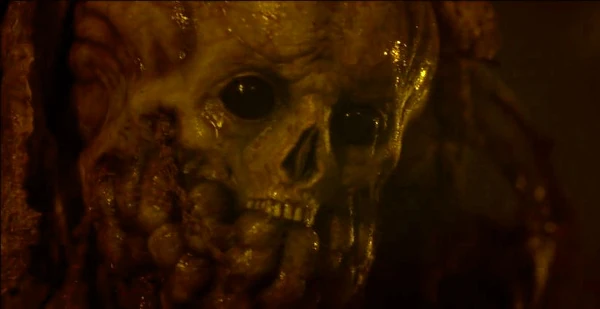



Spawn of Chaos
Once per day, for 1 hour, you can go through a transformation.
This transformation causes you to manifest every abominable gift for as long as it is active, and you gain the following traits;
- You have resistance to bludgeoning, piercing, and slashing damage.
- You regenerate 5 hit points at the start of every round, unless you have taken a critical hit that round.
- You have manifested every abominable gift, giving you the features, traits, and attacks that each gift gives.
- You may make a multiattack, where you make three attacks, using any of the attacks you gain from the abominable gifts.
- Your creature type changes to aberrant.
You also gain the following features;
- Telekinetic Manipulation: If the target is a creature that is Medium or smaller, it must succeed on a DC 12 Strength saving throw or be moved up to 30 feet directly away from you.
- Advanced Telepathy: You can perceive the content of any telepathic communication used within 60 feet of you, and you can't be surprised by creatures with any form of telepathy.
- Telepathic Shroud: You are immune to any effect that would sense your emotions or read your thoughts, as well as all divination spells.
- Psychic stab: You thrust a blade of pure psychic energy into a target's mind. The target must succeed on a DC 13 Intelligence saving throw or take 6d6 psychic damage.
- Mind Blast: You emit psychic energy in a 20-foot cone. Each creature in that area must succeed on a DC 15 Intelligence saving throw or take 4d8 + 4 psychic damage and be stunned for 1 minute. A creature can repeat the saving throw at the end of each of its turns, ending the effect on itself on a success
- Telepathic Hub: You can use your telepathy to initiate and maintain telepathic conversations with up to six creatures at a time. You can let those creatures telepathically hear each other while connected in this way.

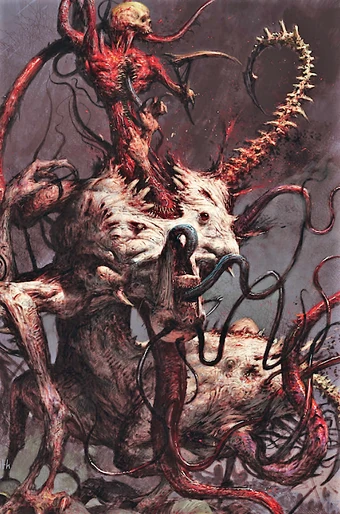











The Mad Artisan
Theses Star Touched are the second oldest of them, only younger than the occultist by a couple of years. Individuals that had attempted to preserve their mortality and prevent their aberrant powers from manifesting, they kept them inside, holding large portions of it in their minds and souls. This lead to them developing strange, new abilities, and altering their innate casting abilities.
Mad Artisans have altered their minds and souls irreversibly, their attempts at retaining their mortality only serving to strengthen their aberrant powers, and the influence they have on their minds and souls. Eventually, they cease to be humanoids in mind and soul. What’s more, this strengthened taint infects everything they create, and inspires a love for creating. They are skilled artisans, which is where they get the latter half of their name, but their works are invariably dangerous to the beholder of them. Paintings, carvings, and music all have the unfortunate trend of infecting others with temporary madness, sometimes intentionally so in the case of music.


Bonus Proficiencies
When you choose this Eldritch Emergence at 3rd level, you gain proficiency in the performance skill, The Flute, violin, or Lyre, Glassblower’s tools, Jeweler’s tools, Painter’s supplies, and finally, Woodcarver’s tools.
You only gain the instrument of your choice at 3rd level, you must buy the various tools you gain proficiencies with, as normal.
Eldritch Spirits
You are, in every place, at all times, surrounded by the strange, insanity inducing spirits of aberrations. Completely intangible, they cannot interact in any way with the physical world, or other spiritual creatures, they cannot be sensed nor blocked in any way. Only you can see them, and they play along with you.
You can use your bonus action to give yourself advantage on one attack, or skill roll by petitioning your spirits to start a concert for you. You may use this feature a number of times equal to your charisma modifier (minimum of 1).
Telling shadow
Your shadow reflects how much of you retains your mortality
At 3rd level your shadow is mostly normal, except it is always larger than it should be, it moves slightly before or after you do, and it is visible even during night. Any creature can take a DC 19 wisdom(perception) check to be able to tell these differences.
At 6th level, your shadow begins to visibly distort, with its proportions always being wrong to the level of the light, and slight twitching being added to the displays shown in third level. The DC is decreased to 12.
At 12th level, your shadow barely looks like you, gaining lashing tendrils, extra limbs, and constantly writhing in structure, all centered around your silhouette, it also retains the displays it had in 3rd and 12th level, but they are more pronounced, to the point that your shadow looks like it is moving on its own. The DC is decreased to 9.
At 16th level, your shadow no longer looks like you, no longer sharing your general shape. Your shadow often acts as if it is alive, even attempting to interact with other shadows. It retains all of its displays from previous levels. The DC is decreased to 3.
At 20th level your shadow has no discernable shape, and creatures often notice it before they notice you. It has become a constantly writhing, throbbing mass of black. Creatures immediately notice your shadow, and you have disadvantage on stealth.
Any creatures that notice your shadow are frightened or distrustful of you.
Artwork
When you choose this Eldritch Emergence at 3rd level, you gain the ability to craft a piece of art. When crafting a piece of art, you must have the required Artisan tool to make the piece of artwork. Depending on the time you spend on a piece of artwork, it has various effects. If any creature spends 1 minute looking at a piece of art, or if the creature touches a work of art that was made by you, they are forced to make a DC 5 wisdom save. If they succeed on the save, they have absolutely no idea that their mind was under attack, but must make the saving throw again every additional minute they spend looking or touching your artwork.
Creatures are only affected by the effect of a piece of artwork once when they fail their wisdom save with any one piece of artwork, but can still be affected by a different piece of artwork you made, even if it is the same type as the one the creature had been affected by previously.
You can create additional pieces of artwork at higher levels, each one becoming more complicated and requiring a longer minimum time to craft the piece of art.
You can create a Magnus Opes at 20th level, which has the ability to drive any who gaze upon it insane at a glance, grant them a wondrous boon, or do absolutely nothing. The effect that happens is determined by a d100. 10-30 does nothing, 40-60 causes insanity. and 70-100 gives the boon.
The save DC becomes 8 at 6th level, 10 at 12th level, 12 at 16th level, and 16 at 20th level.
At 3rd level you can create these pieces of artwork.
Glass Animal
Requires you to have your Glass Blowers Tools and some glass.
- 1 minute: You make a crude depiction of an animal of your choice (this has no bearing in effect), which causes any creature that gazes or touches it for a minute and that fails their wisdom save to become unsettled by you for 1 day. If you attempt to intimidate the creature during this time period, you have advantage.
- 1 hour: You make a passable depiction of any animal of your choice (this has no bearing on effect), which causes any creature that gazes or touches it for a minute and that fails their wisdom save to become obsessed with copying the animal for the total amount of time that they spent looking or touching the animal.
- 1 day: You make a realistic depiction of any animal of your choice (this has no bearing on effect), which causes any creature that gazes or touches it for a minute and that fails their wisdom save to be charmed by you for the total amount of time it spent touching or looking at the animal. You can give basic orders to the charmed creature, which it attempts to do to the best of its ability. The effect ends early if you or your allies harm it or its allies, if you order something that goes against its alignment, order it to do something it wouldn’t normally do, attempt to pry information that it would normally keep secret, or order it to do something that would obviously bring harm to it or its allies.
Jeweled Bacer
Requires you to have your Jeweler's Tools, jewels of any value, and something to use as the Bracer.
- 1 minute: You simply paste jewels onto a crudely made bracer bracer. It causes any creature that gazes or touches it for a minute and that fails their wisdom save to begin compulsively repeating a random action that cannot cause harm to it or another creature for the amount of time it has spent touching or looking at it.
- 1 hour: You work jewls into a competently made bracer. It causes any creature that gazes or touches it for a minute and that fails their wisdom save to forget what they had been doing for the past hour.
- 1 day: You set jewels inside a well made bracer. It causes any creature that gazes or touches it for a minute and that fails their wisdom save to become violently possessive of the piece for the total amount of time they had spent touching or looking at it. The creature will attack any other creature that attempts to grab or take the jeweled bracer, and becomes unfriendly towards any creature that expresses interest in it.
Painted landscape
- 1 minute: You paint a blobby painting of the landscape in front of you. It causes any creature that gazes or touches it for a minute and that fails their wisdom save to become extremely disgusted with the environment around them, causing them to refuse to go outdoors or stay inside, for the total amount of time it spent touching or looking at the piece. The creature will resist any attempts to bring it out of its preferred environment, stopping short of harming itself or anything else.
- 1 hour: You paint a decent rendition of the landscape in front of you. It causes any creature that gazes or touches it for a minute and that fails their wisdom save to become fascinated with its current environment, refusing to leave where it currently is for the total amount of time it spent touching or looking at the piece. The creature will resist any attempts to bring it out of its preferred environment, stopping short of harming itself or anything else.
- 1 day: You paint an accurate rendition of the landscape in front of you. It causes any creature that gazes or touches it for a minute and that fails their wisdom save to become convinced it is in a lucid dream, causing it to take random, nonsensical, potentially dangerous actions for the total amount of time it spent touching or looking at the piece.
Miniature Wooden House
Requires you to have your Woodcarver’s tools, and a block of wood to carve.
- 1 minute: You carve a supposed house. It causes any creature that gazes or touches it for a minute and that fails their wisdom save to become convinced that it doesn’t have any form of shelter, nor need it, whatever the conditions it is currently in, including if it is in some kind of shelter, and will deny even hard, and solid proof to the contrary for the total amount of time it spent looking or touching the piece.
- 1 hour: You carve an unimpressive carving of a house. It causes any creature that gazes or touches it for a minute and that fails their wisdom save to become apathetic to everything, including the sight of death, killing, the loss of limbs, etc., and simply stops and stares where it currently is at for the total amount of time it spent looking or touching the piece. The creature can be moved, and will do nothing in response to being moved.
- 1 day: You carve a decent wooden house. It causes any creature that gazes or touches it for a minute and that fails their wisdom save to become convinced that they are made of wood, and gives the creature a debilitating fear of fire. The creature automatically gains the fear condition if it can see fire that is 20ft. from it.
At 6th level, your skills in making pieces of art increases to be able to create better crafted works of art.
Small Glass Sculpture
Requires you to have your Glass Blowers Tools and some glass.
- 5 minutes: You create a glass sculpture made out of multiple spheres of varying sizes together. It causes any creature that gazes or touches it for a minute and that fails their wisdom save to become convinced that they have bubbles inside of them, causing them to imagine intense pain or pleasure (DM’s choice), and causing them to be unable to concentrate on anything, failing any concentration saves immediately, or causing it to not be able to focus on anything, giving a -2 to its perception rolls. The effect lasts for for the total amount of time it spent touching or looking at the item.
- 2 hours: You create a glass sculpture made out of flattened geometric shapes. It causes any creature that gazes or touches it for a minute and that fails their wisdom save to become convinced they are a construct, and will attempt to act like a random construct (DM decides), for the total amount of time that the creature spent looking or touching the piece.
- 1 day and 1 minute: You create an abstract piece that doesn’t seem possible physically. It causes any creature that gazes or touches it for a minute and that fails their wisdom save to be unable to comprehend any languages for the total amount of time it spent touching or looking at the piece.
Jeweled Ring
Requires you to have your Jeweler's Tools, jewels of any value, and something to use as the ring.
-
5 minutes: You wrap the jewel in a small, cheaply made metal band using a random material. It causes any creature that gazes or touches it for a minute and that fails their wisdom save to believe they are nanked when wearing clothing, and clothed when naked. Creatures in hostile environments are immune to this effect. This effect lasts for the amount of time that the creature spent touching or looking at the piece.
-
2 hours: You craft a cheap ring. It causes any creature that gazes or touches it for a minute and that fails their wisdom save to attempt to eat coins and cheap jewelry, including the ring, it touches. The effect lasts for 1 hour, and it regurgitates any metal it may have eaten during the time period.
-
1 day and 1 minute: You craft a proper ring. It causes any creature that gazes or touches it for a minute and that fails their wisdom save to attempt to punt any creature that is small or tiny in size that they see for ten minutes.
Abstract painting
Requires you to have your Painter’s supplies, and something to paint on.
- 5 minutes: Your painting is nothing more than random splotches. It causes any creature that gazes or touches it for a minute and that fails their wisdom save to go blind for 1 minute. If the creature can’t see already, it instead loses its feeling of touch.
- 2 hours: Your painting is of randomly sized and colored shapes. It causes any creature that gazes or touches it for a minute and that fails their wisdom save to begin obsessively picking up random items to create nonsensical shapes for the total amount of time it spent touching or looking at the piece.
- 1 day and 1 minute: Your painting has some semblance of a shape in its randomness. It causes any creature that gazes or touches it for a minute and that fails their wisdom save to gain the ability to speak Deep Speech, but not write or understand it, and forces them to continue to do so every time they attempt to speak for 1 hour.
Miniature totem pole
Requires you to have your Woodcarver’s tools, and a block of wood to carve.
- 5 minutes: You carve a rigid pole with poorly cut in faces. It causes any creature that gazes or touches it for a minute and that fails their wisdom save to be unable to see their own reflection for 1 minute.
- 2 hours: Your carve a cartoonish totem pool. It causes any creature that gazes or touches it for a minute and that fails their wisdom save to carve a smile into their face, dealing 1d6 slashing damage, afterwards, they return to normal. The creature will not return to a normal state of mind until it carves the smile into its face, becoming violent when it is being stopped by another creature, or until a Remove Curse spell is cast on it.
- 1 day and 1 minute: You carve a totem pole depicting a Death Slaad, Aboleth, Beholder, and Elder Brain, even if you have never seen nor heard of the monsters before. It causes any creature that gazes or touches it for a minute and that fails their wisdom save to have a nightmare depicting all of the mentioned monsters, preventing it from gaining a restful sleep for 1 day.
At 12th level, your skills in making pieces of art increases to be able to make proper works of art.
Glass Humanoids
Requires you to have your Glass Blowers Tools and some glass.
-
10 minutes: You craft an undetailed, 3-D silhouette of any humanoid creature you know of (this has no bearing on effect). It causes any creature that gazes or touches it for a minute and that fails their wisdom save to cause it to believe that if it’s proficient in acrobatics or athletics become convinced it are no longer proficient in either skill-both if it has both-or if it’s not proficient in either skills to believe it is-both if it has neither-for 5 minutes.
-
3 hours: You craft a highly detailed 3-D model of a random humanoid you know of (this has no bearing on effect). It causes any creature that gazes or touches it for a minute and that fails their wisdom save to believe that they are the perfect example of a race that they are not, mostly races that they have a prejudice against or are fascinated of, for the total amount of time that it spent looking or touching the piece.
-
1 day and 30 minutes: You craft a grotesquely detailed humanoid you know of (this has no bearing on effect). It causes any creature that gazes or touches it for a minute and that fails their wisdom save to be horrified by the appearances of others, gaining the fear condition so long as there is another creature within 10ft. of them.
Jeweled Crown
Requires your Jewelers Tools, jewels of 50gp, and a gold band of 80gp.
- 10 minutes: You craft a golden hand band with jewels encrusted in it. It causes any creature that gazes or touches it for a minute and that fails their wisdom save to believe that they are the Royalty of the area they are in for 5 minutes.
- 3 hours: You create an ornate gold headband with jewels encrusted in it. It causes any creature that gazes or touches it for a minute and that fails their wisdom save to attempt to sew their mouth and eyes shut, taking 1d6 piercing damage, after which it returns to normal. The creature will not return to a normal state of mind until it sews both eyes and its mouth shut, becoming violent when it is being stopped by another creature, or until a Remove Curse spell is cast on it.
- 1 day and 30 minutes: You create a twisted jeweled crown. It causes any creature that gazes or touches it for a minute and that fails their wisdom save to enter the Rage state that a barbarian can enter into, after which the DM decides what it does.
Canvas Painting
Requires you Painter’s supplies and a canvas.
- 10 minutes: You paint a picture depicting how you're feeling at the moment (this has no bearing on effect). It causes any creature that gazes or touches it for a minute and that fails their wisdom save to forget their name for 5 minutes.
- 3 hours: You paint an ornate picture of a random object you see (this has no bearing on effect). It causes any creature that gazes or touches it for a minute and that fails their wisdom save to become deaf for 10 minutes.
- 1 day and 30 minutes: You paint a hellish sky. It causes any creature that gazes or touches it for a minute and that fails their wisdom save to believe that the world was just created, and loses all knowledge of social norms and the laws of the land for 1 minute.
Wooden Tablet
Requires you to have your Woodcarver’s tools, and a block of wood to carve.
- 10 minutes: You carve an ornately decorated wooden square. It causes any creature that gazes or touches it for a minute and that fails their wisdom save to become stunned.
- 3 hours: You carve scripture in a strangely decorated wooden tablet. It causes any creature that gazes or touches it for a minute and that fails their wisdom save to be unable to speak anything other than deep speech, but it is unable to understand what it is saying if it doesn’t understand it, for 5 minutes.
- 1 day and 30 minutes: You carve black speech in a blasphemously decorated wooden tablet. It causes any creature that gazes or touches it for a minute and that fails their wisdom save to become murderous, and it will attack as many creatures as possible in an attempt to kill them for 5 minutes.
At 16th level, you can create masterfully crafted works of art, even using art that is unimpressive to give off a degree of grandeur.
Glass sculptures
Requires you to have your Glass Blowers Tools and glass that costs 50gp.
- 30 minutes: You combine the hour long pieces of the three other options you have to create a diorama. It causes any creature that gazes or touches it for a minute and that fails their wisdom save to be inflicted with a random temporary madness.
- 4 hours: You combine the day long pieces into an abstract sculpture. It causes any creature that gazes or touches it for a minute and that fails their wisdom save to be inflicted with a long-term madness.
- 1 day and 1 hour: You create a sculpture of the Great Old One you had with (this has no bearing on effect). It causes any creature that gazes or touches it for a minute and that fails their wisdom save to suffer from an indefinite madness.
Jewelry
Requires your Jeweler's Tools, rare jewels worth 1000gp and a pound of precious metals costing 100gp.
- 30 minutes: You combine your hours long artwork to create an armband. It causes any creature that gazes or touches it for a minute and that fails their wisdom save to be inflicted with a random temporary madness.
- 4 hours: You combine your day long artwork to create a headdress. It causes any creature that gazes or touches it for a minute and that fails their wisdom save to be inflicted with a random long-term madness.
- 1 day and 1 hour: You create a mask of the Great Old One you had contacted (this has no bearing on effect). It causes any creature that gazes or touches it for a minute and that fails their wisdom save to suffer from an indefinite madness.
Full Paintings
Requires your Painter’s supplies, rare paints costing 500gp, and a canvas.
- 30 minutes: You combine your hours long artwork to create a subjective piece. It causes any creature that gazes or touches it for a minute and that fails their wisdom save to be inflicted with a random temporary madness.
- 4 hours: You combine your day long artwork to create a surrealist piece. It causes any creature that gazes or touches it for a minute and that fails their wisdom save to be inflicted with a random long-term madness.
- 1 day and 1 hour: You paint a picture of the Great Old One you had contacted in its home dimensions (this has no bearing on effect). It causes any creature that gazes or touches it for a minute and that fails their wisdom save to suffer from an indefinite madness.
Wooden sculptures
Requires your Woodcarver’s Tools and a block of fine wood costing 60gp.
- 30 minutes: You combine your hours long artwork to create a panorama piece. It causes any creature that gazes or touches it for a minute and that fails their wisdom save to be inflicted with a random temporary madness.
- 4 hours: You combine your day long artwork to create a surrealist piece. It causes any creature that gazes or touches it for a minute and that fails their wisdom save to be inflicted with a random long-term madness.
- 1 day and 1 hour: You carve the figure of the Great Old One you had contacted (this has no bearing on effect). It causes any creature that gazes or touches it for a minute and that fails their wisdom save to suffer from an indefinite madness.
Magnum Opus
Finally, you gain the ability to create your magnum opus, which requires a full week of uninterrupted work, otherwise you must start over. It requires all of the materials you need for every 16th level artwork, one of every artwork option from every level, and all of your tools. The Piece represents your madness, but you decide its appearance. Creatures that gaze or touch your magnum opus for a minute do not roll a wisdom save, but instead, a d100 is rolled, with the following effects; 10-30 does nothing, 40-60 causes insanity. and 70-100 gives a random boon.
- 10-30: Nothing. Creatures that view it think it highly interesting, but also highly disturbing.
- 40-60: Creatures that view the piece are allowed to understand the meaning of it personally, shattering their minds and giving them an indefinite madness that can never be cured, unless a Wish is made to do so
- 70-100: Creatures that gaze upon the piece understands the meaning of it, and use their horror to strengthen themselves. The creature gains a +2 to all of its intelligence, wisdom, and charisma rolls, or to its strength, dexterity, and constitution rolls (creature’s choice).
Spiritual influence
At 3rd level, you become empathetic to the spirits desires and thoughts, allowing them to slightly influence you body, causing sudden and jerking movements at opportune times. When you are influenced, you gain the following benefits for the rest of your turn;
- You gain the benefits of taking the Dash and Disengage actions.
- You gain a climbing speed equal to your current speed.
- You take half damage from falling.
You must use your bonus action to gain the benefits of this feature.
Song of Unrest
When you choose this Eldritch Emergence at 3rd level, you gain the ability to stir up a crowd in the worst possible way. The spirits play a tune of harm, and you translate it into one of unrest, forcing creatures to make a save against a skill check made from you. Each option grants various effects. Every creature that succeeds on the save is unaffected by the effects of this feature.
Wisdom v. Charisma: Any creature that fails its saving throw attacks one individual that you had singled out in a display of mob mentality. However, they do not do more than incapacitate the creature that was marked.
Intelligence v. Wisdom: Any creature that fails its saving throw is considered afraid of you.
Charisma v. Intelligence: Any creature that fails its saving throw is tricked into believing that it is guilty of some kind of crime, and thus will attempt to attain repentance in some way.
The creatures affected by this feature must be able to hear you, and you can only use this feature once per long rest.
Blackened voice
At 6th level, you gain the ability to unleash a portion of your black speech’s abilities into your normal words and tap into a creature’s deepest fears.
As an action, you psionically whisper a phrase that only one creature of your choice within 30 feet of you can hear. The target must make a DC 9 Wisdom saving throw. It automatically succeeds if it doesn’t share a language with you or if it can’t hear you. On a successful saving throw, your whisper sounds like unintelligible mumbling and has no effect.
If the target fails its saving throw, it is charmed by you for the next 8 hours or until you or your allies attack or damage it. It interprets the whispers as a description of its most mortifying secret.
While you gain no knowledge of this secret, the target is convinced you know it. While charmed in this way, the creature obeys your commands for fear that you will reveal its secret. It won’t risk its life for you or fight for you, unless it was already inclined to do so. It grants you favors and gifts it would offer to a close friend.
When the effect ends, the creature becomes actively hostile towards you and any you associate with.
Once you use this feature, you can’t use it again until you finish a long rest.
Out of Tune
At 6th level, you can use your action to play seemingly out of tune notes, but are in reality the voices of your spirits being channeled through you and your instrument. When using your action for this feature, choose a number of creatures equal to your wisdom modifier, each creature takes 1d6 force damage. You can choose to take 1d4 psychic damage to deal an additional 1d4 psychic damage to the 1d6 force damage.
At 12th level the d6 turns into a d8. You can use this feature three times before needing to take a short or long rest to do so again.
Painfully Beautiful
At 6th level your spirits grant you the ability to play a maddeningly beautiful tune. You can use your turn for the round to put on a performance by playing your instrument. You choose creatures equal to your intelligence modifier, they must make a DC 12 wisdom roll or be charmed by you for the round. When a creature is charmed by you, it will take any action that is in your current best interest, to the best of its ability. After its turn ends, it is no longer considered charmed by you.
If the creature succeeds on its save, it instead takes 1d12 psychic damage.
You can use this feature twice before needing to take a long rest to do so again.
Unnatural Performance
At 12th level you can temporarily cede control of your body to your spirits, letting you perform a show of playing music, singing, and dancing, contorting in unnatural manners. You can use your turn for the round to put on an unnatural performance, which lets you choose a number of creatures equal to your intelligence modifier. The chosen creatures gain the ability to augment their first attack on their turns with an additional 1d6 psychic damage.
At the end of the performance, due to the alienness of your body to your spirits, your hit points are halved from the accidental harm they inflicted upon it.
You can use this feature three times before having to take a short or long rest.
Dissonant Notes
At 16th level, you have become a firm vessel for your spirits, allowing for some of their chorus to be heard, and seen by other creatures. You can use your action to use the following actions;
- Your spirits become semi-visible, and dance a horrific, unnatural performance, causing every creature to see it to make a DC 12 wisdom save. On a failure, they are considered to be afraid of you.
- The chorus of your spirits can be partially heard by a number of spirits equal to your charisma modifier. All creatures that can hear the chorus have disadvantage to hit on their next attacks.
- You sing in the language of your spirits, causing every creature that can hear you to make a DC 11 intelligence save. On a failure, you roll a d6, each creature that failed their save has the rolled number subtracted from their intelligence score. Creatures cannot have their intelligence score reduced below 1 with this feature.
You take 1d12 unmitigated psychic damage once you use this feature, and you must take a long rest before you can use it again.
Dissonant Songs
At 20th level, you have flooded your mind and soul with so much aberrant energy that they have altered into that of an aberrant creature. You have lost any sense of morality, or empathy. You have the following changes;
- Your creature type changes to aberrant.
- You gain immunity to all mind reading effects and divination.
- Your alignment changes to true neutral.
- You gain immunity to any spell that would affect your emotions.
- Your Unnatural casting counts as psionics now.
Additionally, once per day, you can put on an hour-long performance. During the performance your spirits can be seen and heard by other creatures, and you play, sing and dance with them. This causes any creature up to 60ft. That can see, or hear, the performance to make consecutive DC 15 intelligence, wisdom, and charisma saves. Depending on the results, the following effect are applied;
Success on all saves: Nothing happens to the creature, and it has advantage on any saving throw you force on it for the entirety of the next round.
Failure on one save: The creature takes 2d8 psychic damage.
Failure on 2 saves: The creature takes 2d8 psychic damage and 1d12 force damage.
Failure on all saves: The creature takes 2d8 psychic damage, 1d12 force damage and is driven irrevocably insane.
You cannot be interrupted during this performance, nor take actions, you can still take damage. If you would drop to 0 Hit Points during the performance, you continue performing until the end, the spirits and you are in an open flow of energy exchange, but you die immediately and outright after the end of it.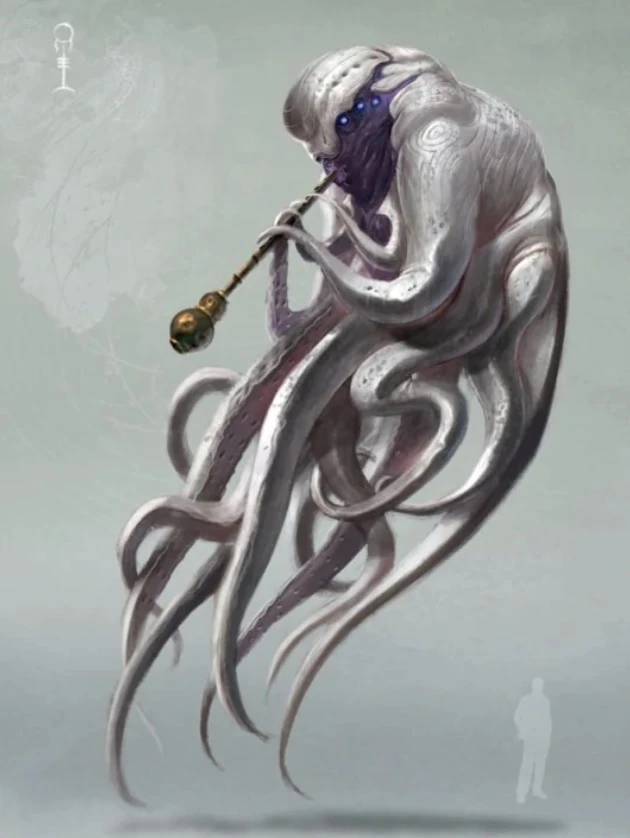

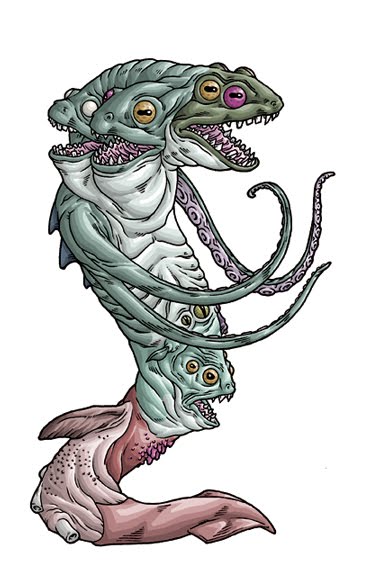



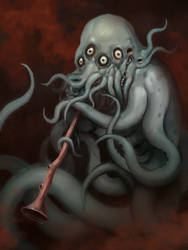



The Aberrant of Flesh
The third oldest of the Starborn, and the second known attempt by them to retain their mortality, they took the lesson of the Mad Artisans to heart, and instead of trying to keep the aberrant powers they now possess within, they shunted it all out to their bodies. They are also one of the most notorious failures, as their bodies become increasingly more twisted, until they retain only their mind and soul, but at the cost of being trapped inside an aberrant body.
Aberrants are successful in shunting all of the aberrant power inside them to their bodies, and this ordinarily would have cured them of their madness, but the consequences of this action is more than enough to keep them from healing. Their bodies have become like clay for them, able to shapeshift easily, being able to adapt their bodies to almost any situation. But as they gain further control over their powers, their true form becomes increasingly alien
Unarmored Defense
Starting at 3rd level, when you are not wearing armor of any kind, your AC becomes 6 + your intelligence modifier + your wisdom modifier + your charisma modifier.
Aberrant body
When you choose this eldritch emergence at level 3, your hit points go up by 3 and increases by an additional 1 every time you level up in this class.
Extreme Shifts and Subtle Adaptations
Starting at 3rd level, you have gained the ability to form natural weapons, and subtler alterations. You are unable to cast the Alter Self spell when you choose this eldritch emergence. Any clothing or armor you wear must be specially made to accommodate any shifting you do, otherwise it is destroyed. Alternatively, you could wear rags or an easily removed robe.
At 3rd level you have access to the following extreme shifts. It takes an action to form and unform a shift. You cannot shift from one option to the next, you must unform a current shift to use another.









Extreme Shifts
| Shift | Description | Effect |
|---|---|---|
| Claws | You grow claws, which count as two seperate weapons. | Each claw deals 1d6 slashing damage. If you already have claws as natural weapons, the damage die turns to a d8. |
| Horns | You sprout horns, which allows you to make a charging attack if you dash at least 10ft. at a target. | The charging attack deals 1d8 bludgeoning damage. If you already have horns as a natural weapon, the damage die becomes a d10. |
| Antlers | You sprout antlers, allowing you to make a goreing attack. | Deals 1d4 piercing damage. You can shove the target back 10ft. if it fails a strength save. |
| Hooves | Your legs become digitigrade and your feet twist into hooves, increasing your speed and letting you make a trampling attack if the target is knocked down or prone. | Your movement increases speed by 5ft.The trampling attack deals 1d10 bludgeoning damage. If you already have hooves as natural weapons, your movement speed is increased by 10ft. instead. |
| Arm blade | Your arm shifts into a blade, preventing you from using it for anything other than an attack. | The blade deals 1d8 slashing damage on a hit. |



Extreme Shifts
| Shift | Description | Effect |
|---|---|---|
| Fanged maw | Your head transforms into a fanged maw, giving you a bite attack. | The bite attack deals 1d4 piercing damage. If you already have a bite attack as a natural weapon, the d4 becomes a d6. |
| Slicing madibles | Your mouth sprouts two razor sharp mandibles which lets you use your bonus action to make one cutting attack. | The cutting attack deals 1d4 slashing damage. If you have a bite attack due to a naturel weapon, you can add 1d4 slashing damage to it instead. |
| Stabbing tongue | Your tongue extends and gains a barb at the end. | You can use your reaction to lash out with your tongue, dealing 1d4 piercing damage on a hit. It has a range of 10ft. |
| Slashing talons | Your legs become digitigrade and your feet twist into having three toes, one of which is held above the others and is sickle shaped, increasing your jumping range and letting you make a slashing attack, and a pounce attack. | You can jump an additional 5ft. You can use a bonus action to make a slashing attack, which deals 1d6 slashing damage on a hit. You can attempt to make a pouncing attack, which requires you to dash 10ft., jump, and the creature failing a strength(athletics) or dexterity(acrobatics) save. On a failure it is knocked prone. |



Extreme Shifts
| Shift | Description | Effect |
|---|---|---|
| Enlarged arm | One of your arms becomes grotesquely enlarged. It cannot be used for anything other than attacking. | When you make an unarmed attack, it deals 1d8 bludgeoning instead. |
| Enhanced forearms | Your forearms extend slightly and increase in muscle. You cannot hold weapons. | When you make an unarmed attack you deal 2d4 bludgeoning damage instead. You can use your bonus action to make an additional attack. |
| Split tendrils | Each of your arms split into 1d6 bladed tendrils, to a maximum of six, and preventing you from doing anything other than attacking if you shift more than 3 tendrils. | When you hit with your tendril attack you deal 1d4 slashing damage on a hit for every tendril you manifested. If you have more than 1 tendril, you subtract 2 from the number you rolled when rolling to hit, but you can’t go below 1. |
| Sprouted tendrils | Your stomach or back spouts 1d4 tendrils, which lets you use a battering attack. | You can choose a number of targets equal to the number of tendrils you have, you may make one attack against each. You deal 1d4 bludgeoning damage on a hit, and have a range of 10ft. |




You can have a total of two shifts active, but you cannot use shifts that conflict with each other, like the “split tendrils” shift and the “claws” shift, which both affect both of your arms, but you can use the “enlarged arm” shift with the “arm blade” shift since both only affect one arm. All shifts count as natural weapons, you are considered proficient with them, and you can use your intelligence, wisdom, or charisma modifier (whichever is highest at any point of time) instead of strength modifier when rolling to hit and damage.
You also have access to the following subtle adaptations.

Subtle Adaptations
| Adaptations | Description | Effect |
|---|---|---|
| Acidic bodily fluids | Your saliva and blood become acidic. | If you have the stabbing tongue, fanged maw, or slicing mandibles shifts, your attacks deal an additional 1d4 acid damage. Additionally, if you are hit by a melee attack, the attacker makes a DC 6 dexterity save or takes 1d4 acid damage.The target must make a DC 4 con. save or be poisoned for 1 turn. |
| Venom glands | Your attacks become venomous. | Everytime you attack and hit with an extreme shift, you also deal 1d4 poison damage. |
| Grip pads | Your fingers, hands, feet and toes gain gripping pads. | You gain a climb speed equal to your walking speed, as well as the spider climb feature. You also gain advantage against being disarmed. |
Subtle Adaptations
| Adaptations | Description | Effect |
|---|---|---|
| Cat eyes | Your eyes change to that of a feline. | You gain darkvision up to 60ft. You cannot discern color, only shades of grey. If you already have darkvision, you gain disadvantage on attack rolls in the sunlight and the range of your darkvision increases by 60ft. |
| Flexible body | Your body becomes slightly elastic. | You gain advantage on dexterity(acrobatics) checks and saves, but gain disadvantage on strength(athletics) checks and saves. You can add half of your proficiency bonus to sleight of hand checks if you are proficient in it. |
| Strengthened musculature | Your muscles and tendons shift to grant further strength. | You gain advantage on strength(athletics) checks and saves, but gain disadvantage on dexterity(acrobatics) checks and saves. |
| Heightened senses | Your senses become hyper-attuned to your environment. | You gain a +3 to your passive perception score, and gain proficiency in Perception. If you are already proficient in it, you add double your profinciney bonus instead.You also gain disadvantage against being blinded or deafened. |
| Pheromone detection | You become able to pick on the pheromones of other creatures. | You gain advantage on wisdom(insight) checks. |
| Soothing Pheromones | You are able to give off soothing pheromones. | You gain advantage on deception and persuasion checks, but disadvantage on intimidation checks. |
You can have a maximum of 2 subtle adaptations. It takes a bonus action to gain and remove an adaptation, and you cannot switch from one adaptation to the next, you must remove one to gain another.
If you wish to have both a subtle adaptation and an extreme shift, you can have only one of each.
Beastly Bile
At 3rd level, your decision to pour your aberrant abilities into your body has caused unexpected side effects. As an action, you can choose a number of creatures equal to your charisma modifier and are up to 10ft. away from you. You regurgitate foul stomach acid on these creatures, dealing 1d6 acid damage. Additionally, the creatures hit by this must take a Con. save or be poisoned until the end of their next turn.
You can only use this feature once before needing to take a short or long rest.


Advanced Extreme Shifts and Subtle Adaptations
At 6th level you gain stronger extreme shifts and subtle adaptations, all of which are more varied. Your maximum for each turns to three, and you can now two of each if you decide to have both active.
At 6th level, you gain these following advanced extreme shifts.
Advanced Extreame Shifts
| Shift | Description | Effect |
|---|---|---|
| Wings | Your arms turn into membranous wings and your bones become hollow. | You gain a flying speed equal to your walking speed +10ft. You also gain vulnerability to bludgeoning, force, and thunder damage. |
| Aquatic body | You gain gills, your fingers gain webbing between them, and your legs merge together into a tail with a fluke at the end, but you lose your lungs. | You gain a swimming speed equal to twice your walking speed, and you have advantage on all dexterity while you are in the water. You also lose the ability to breathe and walk on land. |
| Altered appearance and gender | You take on a different appearance, sex or both. | You gain advantage on deception rolls, but you can’t take on the appearance of a different race other than yours. Additionally,you may decide to become hermaphroditic, or genderless. |
| Gliding membrane | You grow additional, large digits down your arm to your hips, starting at the wrist, and that have a large, thin, wing like membrane between them. | When you fall and aren't incapacitated, you can subtract up to 100 feet from the fall when calculating falling damage, and you can move up to 2 feet horizontally for every 1 foot you descend. |
| Projectile acid | You gain glands that can spray highly caustic acid. | As an action you target one creature or object you can see within 30 feet of you. The target takes 2d10 acid damage unless it succeeds on a Dexterity saving throw. This counts as a use of your Beastly Bile Feature. |


Advanced Extreame Shifts
| Shift | Description | Effect |
|---|---|---|
| Crushing claws | Your arms become large, crab-like claws, preventing you from using them for anything other than attacking. | As an action, you can attack using these claws and deal 1d6 bludgeoning damage on a hit. Immediately after hitting, you can try to grapple the target as a bonus action. |
| Carapaced/scaled body | Your body gains either a thick carapace, or armor like scales. | You can add your constitution modifier to your AC. |
| Strengthened skeletal-structure | Your body’s skeleton becomes denser, adding 20lb. to your weight. | You gain a +1 modifier to your constitution score. |
| Gripping tail | You grow a long tail capable of holding most items, but is unable to use weapons. | You gain an additional appendage that can be used to hold various items, but you cannot use weapons, even though you can hold them. |


Advanced Extreame Shifts
| Shift | Description | Effect |
|---|---|---|
| Bludgeoning tail | You grow a large, muscular tail. | You can use your bonus action or reaction to make a tail attack, which deals 1d6 bludgeoning damage on a hit. If you already have a tail attack due to a natural weapon, the damage die changes to a d8. |
| Lashing Tail | You grow a long ,whip-like tail that is constantly in movement. | You can use a bonus action or reaction to make a lashing tail attack, dealing 1d6 slashing damage on a hit. It has a reach of 10ft .If you already have a tail attack due to a natural weapon, the damage die changes to a d8. |
| Piercing tail | You grow a thin, constantly twitching tail. | You can use a bonus action or reaction to make a piercing tail attack, dealing 1d6 piercing damage on a hit. If you already have a tail attack due to a natural weapon, the damage die changes to a d8. |
| Additional arms | You sprout a pair of full function arms somewhere on your torso. | You can use these arms in exactly the same way you use your normal way, they are also eligible to shift, just like your normal ones. |
| Scythe arms | Your arms twist and extend into brutal scythes, but preventing you from using them for anything other than attacking. | You can make a scything attack, which deals 2d6 slashing damage, and if there is another target within 5ft. to the first one, it is also considered attacked by this action. |
| Organic shield | One of your arms condenses, and then spreads, forming a large, sturdy shield, preventing you from using it for anything other than defense. | You gain a +2 to your AC. |
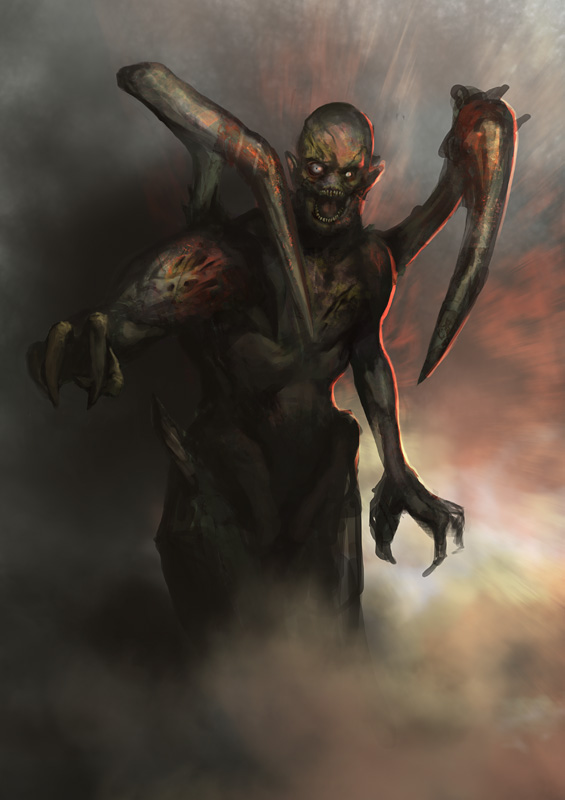
 Each of your advanced extreme shifts follow the same rules as your extreme shifts, and count as extreme shifts in terms of features that specify them.
Each of your advanced extreme shifts follow the same rules as your extreme shifts, and count as extreme shifts in terms of features that specify them.
You also gain access to these Advanced Subtle Adaptations at 6th level.
Advanced Subtle Adaptations
| Adaptations | Features | Police Cultist |
|---|---|---|
| Adrenal glands | You have excess adrenaline being pumped through your blood. | You can attack twice instead of once when you take the attack option. |
| Heightened metabolism | Your body heat rises, your body heals faster. | You heal 1d6 hit points at the end of every one of your turns. You also gain vulnerability to fire damage. |
| Hyperendocrin control | Your body is fully manageable now. | You gain 10ft. To your movement speed, resistance to effects that attempt to force you to sleep, and can end one condition affecting you by using an action. |
| Paralytic toxin | You’ve developed a new toxin for offense. | Whenever you make an attack using a natural weapon, on a hit the target must succeed on a DC 10 constitution saving throw or be paralyzed for 1 minute. The target can repeat the saving throw at the end of each of its turns, ending the effect on itself on a success. |



Advanced Subtle Adaptations
| Adaptations | Features | Police Cultist |
|---|---|---|
| Echolocation | Your eyes are just there to improve your awareness. | You gain blindsight up to 60ft., but are unable to use it if you are deafened. |
| Defensive musk | You begin to sweat foul smelling substances. | Any creature that starts its turn within 5 ft. of you must succeed on a DC 10 Constitution saving throw or be poisoned until the start of its next turn. On a successful saving throw, the creature is immune to your Stench for 24 hours.Undead, oozes, elementals, and constructs are immune to this effect. |
| Electric cells | You grow the battery cells found in eels throughout your body. | If a creature attempts to grapple you it must make a DC 12 Constitution saving throw. On a failed save, the target takes 1d8 lightning damage. If the target takes any of this damage, the target is stunned until the end of your next turn. On a successful save, the target takes half as much damage and isn't stunned. You can also add 1d4 lighting damage to your attacks if it was done using a natural weapon. |
| Chameleon skin | You gain the ability to change the color of your skin. | You have advantage on dexterity (Stealth) checks made to hide. |
Your advanced subtle adaptations follow all of the same rules as your subtle adaptations, and count as subtle adaptations in terms of features that specify them.
Transformations
At 6th level you gain two transformations that take the entirety of your turn to activate, but give you substantial, albeit specializing, bonuses to either diplomacy or combat. You must use a turn to shift out of either form, and you can’t shift from one to the other, you must be in your base form to transform into either form. You automatically go back to your base form if you take a long or short rest.
Combat form
You become a hulking, almost monstrous version of your race, lacking any discernible facial features, hair(if you have hair), or coloration. While you are in this form, you gain the following features and traits;
- You can have 3 extreme shifts and 3 subtle adaptations active at the same time, which increases to 4 each at 12th level. You are unable to form the soothing pheromones subtle adaptation so long as you remain in this form.
- You automatically fail any and all persuasion and deception rolls, but have advantage on intimidation rolls.
- Your hit points go up by an amount equal to your level in this class.
- When you take damage, you can use your reaction to roll a d12. Add your Constitution modifier to the number rolled, and reduce the damage by that total. You may use this feature three times every transformation.
- You count as one size larger when determining your carrying capacity and the weight you can push, drag, or lift.
- You become 8ft. tall, unless you already were, then you become 10ft. and your size changes to large. If you were originally size small or smaller, your size changes to medium and you are either 5ft. or 6ft.
- Your weight always doubles.
- When you score a critical hit with a melee weapon attack, you can roll one of the weapon's damage dice one additional time and add it to the extra damage of the critical hit.
- Any creature that meets you and does not know who you are, nor have had any interactions with you will be unfriendly towards you, and extremely on guard. The only creatures that do not act like this are friends and close associates, or allies regardless, albeit grudgingly.
Diplomatic form
You become a stunningly beautiful version of whatever race you are. There is almost a painfulness to the beauty of your complexion, with every movement being as graceful and smooth as silk, and every feature on you being delicate and dreamlike. This came at a cost however.
-
Every creature that sees you must make a DC 10 perception save or be charmed by you. Charmed creatures speak glowingly of you for 1 hour, or for as long as you are around them, they also become extremely willing to help you, but will turn against you if you harm them or close associates, nor will they commit violence or crimes for you.
-
You automatically fail any intimidation rolls, but you add 2 to any persuasion and deception rolls you make.
-
You can not access any extreme shift or subtle adaptations while in this form, with the exception of the soothing pheromones subtle adaptation.
-
You have disadvantage on all rolls when rolling to hit while in this form.
-
You subtract 3 from any damage roll you make while in this form, but your roll cannot go below 0
-
You take double damage from any attack while in this form.
-
Close friends, associates, and allies are immune to the effects of this form.
You may use this feature 3 times per long rest. At 12th level you can use this 4 times before needing to take a long rest.
Aberrant Cost
As of 6th level, your body slowly starts to permanently shift into that of an aberration, acting akin to the curse that a Wild Magic Sorcerer has. At 6th level, you can easily hide this mutation, as it is only affecting a small portion of your body, such as your eyes, or your hand. You decide what the actual mutation looks like, but there is no way to get rid of it. Any creature can take a DC 19 wisdom(perception) check to be able to tell these differences.
The only way to stop the spreading of the mutation is to no longer take any levels in this class, otherwise the mutation will continue to spread.
By 12th level your mutation has covered roughly half of your body, giving you a significantly different body structure. While you can hide the mutation, you most use heavily obscuring clothing or armor. The portions of your body that were not affected look sickly, and off, as they are already mutating as well. The portions covered can be your lower body, your upper body(excluding your face), or random patches around your body. The DC is reduced to 6.
By 16th level only a third of what you used to be remains, and even that looks like a cross between your mutations features and your races. Your face is the only thing recognizable about you, and already portions of that are mutated. The DC is reduced to 3.
By 20th level, all of your body has mutated, become that of an aberrant, which can be an ever shifting blob, to something more recognizable, you decide your appearance. Your creature type changes to aberrant, and your innate casting becomes psionic. Every creature releases your appearance.
Any creature that views your mutations is disgusted, and immune to your diplomatic forms affects. It will become unfriendly, or outright hostile if it realises you are trying to influence it.
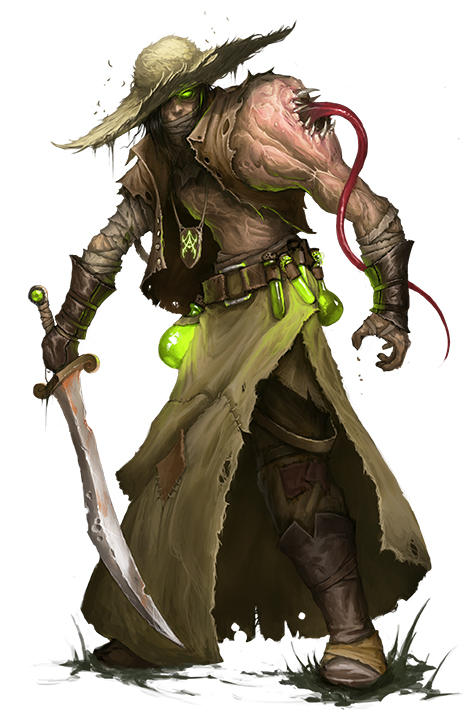

Greater transformations
At 16th level, your aberrant powers evolve, you gain additional transformations. You are unable to use any extreme shifts or subtle adaptations while in any of these forms, but each gives extreme combat power in its own regard. Every form gives you the bonuses of the combat form, excluding the ability to use your extreme shifts and subtle adaptations.
Aberrant Fiend
You become a creature that looks akin to a horrifically mutated Glabrezu, but with one pair of arms, hooved, winged, no pincers, and a thin wiping tail. While you are in this form, you have the following features, you use charisma when rolling to hit and damage.
- Claw attack: 2d6 slashing damage.
- Bite attack: 1d8 piercing damage.
- Horns: 1d6 piercing damage.
- Hooves: 1d6 bludgeoning damage.
- Goreing attack: You can use a bonus action to attempt to shove that target with your horns, dealing 1d8 piercing damage on a hit. The target must be no more than one size larger than you and within 5 feet of you. Unless it succeeds on a Strength saving throw against a DC equal to 8 + your proficiency bonus + your Charisma modifier, you push it up to 10 feet away from you.
- Charge attack: If you move at least 15 feet straight toward a target and then hit it with a goreing attack on the same turn, the target takes an extra 2d4 piercing damage.
- Magic Resistance: You advantage on saving throws against spells and other magical effects.
- **Expanded Innate Casting:++ You can cast Burning Hand, Searing Smite, and Branding Smite at will without expending material components a number of times equal to you Charisma modifier.
- Mantle of flame: You can cause flames to wreathe you until the end of your next turn. The flames don’t harm you, and they shed bright light out to 30 feet and dim light for an additional 30 feet. While the flames are present, any creature within 5 feet of you that hits you with a melee attack takes 1d4 fire damage.
- Hidden barbs: As a bonus action, you can cause small barbs to protrude all over your body or cause them to retract. At the start of each of your turns while the barbs are out, you deal 1d6 piercing damage to any creature grappling you or any creature grappled by you.
- You have resistance to cold damage
- You have immunity to fire damage
- You gain a bonus to your AC equal to your constitution modifier.
- You have a flight speed equal to your walking speed.




Aberrant Monstrosity
You become a creature akin to a cross breed between a Gray Render, an Ettercap and a Displacer Beast. While in this form, you use your wisdom modifier to hit and damage. You gain the following features;
- Bite attack: 1d12 piercing +1d4 poison damage, the target must make a DC 6 constitution save or be poisoned for the remainder of the round.
- Claw attack: 2d6 slashing damage.
- Web attack: (Ranged Weapon Attack: range 30/60 ft.), The creature is restrained by webbing. As an action, the restrained creature can make a DC 11 Strength check, escaping from the webbing on a success. The effect ends if the webbing is destroyed. The webbing has an AC of 5, 5 hit points, is vulnerable to fire damage and immune to bludgeoning damage. You ignore movement restrictions caused by your webs.
- Tentacle attack: 1d6 bludgeoning damage+1d4 slashing damage, has a reach of 10ft.
- Multi-attack: You make three attacks, two with your claws or tentacles, and one with your web or bite attack.
- When you are subjected to an effect that allows you to make a constitution saving throw you have advantage.
- You have resistance to non-magical bludgeoning, piercing, and slashing damage.
- You can drop to all fours to double your movement speed.
- Creatures within 5 feet of you provoke opportunity attacks from you even if they take the Disengage action before leaving your reach.









Aberrant Beast
You transform into a creature akin to a heavily mutated wolf/rat/goat hybrid. While in this form you use your intelligence modifier when rolling to hit, and you gain the following features.
- Bite attack: 1d10 piercing damage.
- Claw attack: 2d8 slashing damage.
- Diseased hide: Whenever you are hit by a melee attack from a creature that is 10ft. from you, you can force them to make a constitution. save or be poisoned until the end of your turn.
- Projectile barbs: (Ranged Weapon Attack: range 30/60 ft.), you can choose a number of creatures equal to your intelligence modifier, each must make a dexterity save or is hit by a projectile barb that deals 2d4 piercing damage.
- you can use the Hide action as a bonus action on your turn. Also, you can't be tracked by non magical means, unless you choose to leave a trail.
- You can use the Dash action as a bonus action on your turn.
- When you use your action to Dash, you can use a bonus action to make one melee weapon attack or to shove a creature. If you move at least 10 feet in a straight line immediately before taking this bonus action, you either gain a +5 bonus to the attack’s damage roll (if you choose to make a melee attack and hit) or push the target up to 10 feet away from you (if you chose to shove and you succeed).
- When you are subjected to an effect that allows you to make a Dexterity saving throw to take only half damage, you instead take no damage if you succeed on the saving throw, and only half damage if you fail.
- You can add your dexterity modifier to your AC.
- Your movement speed increases by 30ft.


Aberrant Celestial
You become a creature akin to a mockery of a celestial, having small almost vestigial arms tipped by three clawed, delicate hands, large, bulbous insectoid eyes set inside an owl-like, shrunken skull atop a thin body and having a pair of wings made of a mass of tendrils.
-
Mastery of auras: You can cast Nystul's Magic Aura, Aura of Vitality, Aura of Life, and Aura of Purity at will without expending material components a total number of times equal to your wisdom modifier. You are also able to use the Aura of Protection, and Aura of Courage features.
-
Distorted space: Once on each of your turns, you can deal extra radiant or necrotic damage to one target when you deal damage to it with an attack or a spell. The extra radiant or necrotic damage equals your Star Touched level. You may also decide to take damage equal to half your Star Touched level (rounded up) to have each creature within 10 feet of you take the same amount of damage you did.
-
Fearful Gaze: You fix your gaze on one creature it can see within 10 feet of you. The target must succeed on a DC 11 Wisdom saving throw or be paralyzed for 1 minute. A paralyzed creature can repeat the saving throw at the end of each of its turns, ending the effect on itself on a success. If a creature’s saving throw is successful or the effect ends for it, the creature is immune to this feature for the next 24 hours.
-
Maddening embrace: You can attempt to grapple one creature that is within 5 feet of you. On a success, you envelop that creature in your wings. When the creature is enveloped, it must make an intelligence save against your aberrant die dc. Upon a failure, the creature is driven insane, sharing the same type of insanity you have, upon a success, it takes 2d6 psychic damage. The creature is considered charmed until you use this feature again, or if Remove curse or a similar spell is cast on it. You may use this feature a number of times equal to your intelligence modifier. You have a flying speed that is double your movement speed. You may make an unarmed claw attack, which deals 1d4+ your dexterity modifier slashing damage
-
Celestial casting: You can can innately cast the following spells, requiring no material components;
-
At will: detect evil and good, invisibility (self only), detect magic, detect thoughts, gaseous form
-
3/day each: blade barrier, dispel evil and good, cure wounds, shield
-
1/day each: commune, control weather, entangle
Aberrant Undead
You take on the form of a vaguely humanoid creature, more akin to a ghoul or ghast than anything else, but you have numerous deformations that tell otherwise.
-
Horrifying Aura: Any creature hostile to you that starts its turn within 10 feet of you must succeed on a DC 13 Wisdom saving throw or be frightened until the end of its next turn. If a creature’s saving throw is successful, the creature is immune to this for the next 24 hours. Stench: Any creature that starts its turn within 5 ft. of you must succeed on a DC 10 Constitution saving throw or be poisoned until the start of its next turn. On a successful saving throw, the creature is immune to this feature for 24 hours.
-
Keen Sight and Smell: You have advantage on Wisdom (Perception) checks that rely on sight or smell.
-
Undead Fortitude: If damage reduces you to 0 hp, you must make a Constitution saving throw with a DC of 5 + the damage taken, unless the damage is radiant or from a critical hit. On a success, you drop to 1 hp instead.
-
Bite attack: 1d8 piercing +1d4 poison damage, the target must make a DC 6 constitution save or be poisoned for the remainder of the round
-
Claw attack: 1d6 slashing damage + 1d4 acid damage
-
Standing Leap: As part of your movement, you can jump up to 20 feet horizontally and 10 feet vertically, with or without a running start.
-
Spider Climb: You can climb difficult surfaces, including upside down on ceilings, without needing to make an ability check.
-
Your jump distance is doubled.



Aberrant Humanoid
You transform into a creature that could be likened to if a Slaadi had gone through Ceremorphosis, becoming a hybrid of Slaad and Mind Flayer.
- Tentacles: 1d6 bludgeoning damage +1d4 psychic. If the target is Medium or smaller it must make a dexterity saving throw or be grappled, and must succeed on an Intelligence saving throw or be stunned until this grapple ends.
- Extract Brain: You must target one incapcitated creature that you can physically touch, it takes 1d10 piercing damage and is considered grappled by you if it is not already so. At the beginning of each of its and your turns it takes an additional 1d10 of piercing and psychic damage. If the creature is reduced to 0 HP by this damage, it is killed and has its brain extracted by you, which is then devoured, causing you to regain 1d6 HP. You cannot take any other actions while you have a creature grappled in this manner.
- Multiattack: You make three attacks: one with its bite and two with its claws. You may replace the bite attack with a tentacle attack.
- Bite: You make one bite attack, dealing 1d4 +1 piercing +1d4 psychic damage on a hit.
- Claw: You make two claw attacks, dealing 1d8 slashing damage + 1d4 psychic damage on a hit.
- Psychic camouflage: You cannot have your mind read by any means, nor can you be tracked by means that target your mind.
- You may add ½ of your proficiency bonus to your AC (rounded down).
- Horrific Garbling: Choose a number of creatures equal to your charisma modifier, each creature must make a wisdom saving throw or take 1d12 psychic damage.


You can only use this feature twice per day, but you are unable to access your combat and diplomatic forms if you use any of these transformations for the entire day. The transformation lasts for one hour, and you must wait out the time period before you revert, or take a short or long rest.
You can use this feature 4 times and can end the transformation at will at 20th level.
Every feature granted by each transformation takes your action unless otherwise stated, your attacks are considered magical for the purposes of overcoming immunities and resistances, and you are considered proficient with all attacks you have in each form.
While transformed, common people will see just a monster and will become hostile towards you.
Each of these forms lets you regenerate 1d10 at the start of your turn, unless you are already at max Hit points. You do not regenerate from critical hits, magic, or magical weapons.
Whenever you transform, your equipment merges with you, but gives you no effect.
True Aberrant
You gain the ability to truly ascend over other creatures, using a combination of your knowledge over transformations, and to take on a new form. When you take this form, you take on the appearance of your originale unmutated form, an aboleth, a morkoth, an elder brain, death slaad, and finally a beholder. You also gain the following features;
-
Tentacles: You make three attacks, each deals 4d4 bludgeoning or slashing damage. Has a reach of 10ft.
-
Tail: You make two attacks, each deals 1d12 bludgeoning damage, has a reach of 5ft.
-
Claws: You make two attacks, each deals 2d6 slashing damage damage
-
Regeneration: You regain 10 + 1d8 hit points at the start of your turn if you have at least 1 hit point.
-
Hypnosis: You project a 30-foot cone of magical energy. Each creature in that area must make a DC 17 Wisdom saving throw. On a failed save, the creature is charmed by you for 1 minute. While charmed in this way, the target fights for you, though it doesn’t obey commands given to it.. After the minute is up, it becomes immune to your hypnosis. Magic Resistance: You have advantage on saving throws against spells and other magical effects Telekinetic Manipulation: If the target is a creature that is Medium or smaller, it must succeed on a DC 12 Strength saving throw or be moved up to 30 feet directly away from you. Advanced Telepathy: You can perceive the content of any telepathic communication used within 60 feet of you, and you can't be surprised by creatures with any form of telepathy. Telepathic Shroud: You are immune to any effect that would sense your emotions or read your thoughts, as well as all divination spells.
-
Psychic stab: You target one creature, the target must succeed on a DC 13 Intelligence saving throw or take 6d6 psychic damage.
-
Mind Blast: You emit psychic energy in a 20-foot cone. Each creature in that area must succeed on a DC 15 Intelligence saving throw or take 4d8 + 4 psychic damage and be stunned for 1 minute. A creature can repeat the saving throw at the end of each of its turns, ending the effect on itself on a success.
-
Multiattack: You make three attacks using any of the attacks granted by this feature.
-
Telepathic Hub: You can use your telepathy to initiate and maintain telepathic conversations with up to six creatures at a time. You can let those creatures telepathically hear each other while connected in this way. -Innate casting(psionics): You can cast gain Cause Fear, Calm Emotions, and Detect Thoughts, Telekinesis, Rary's Telepathic Bond and finally Telepathy. You can cast each spell three times at will without expending material components. Intelligence, Wisdom, or Charisma is the modifier you use, whichever is the highest of the three.
-
You have blindsight up to 60ft.
-
Your size becomes huge.
-
Your alignment changes to true neutral.
All abilities listed, and all attacks listed are considered magical for the purpose of overcoming immunities and resistances.
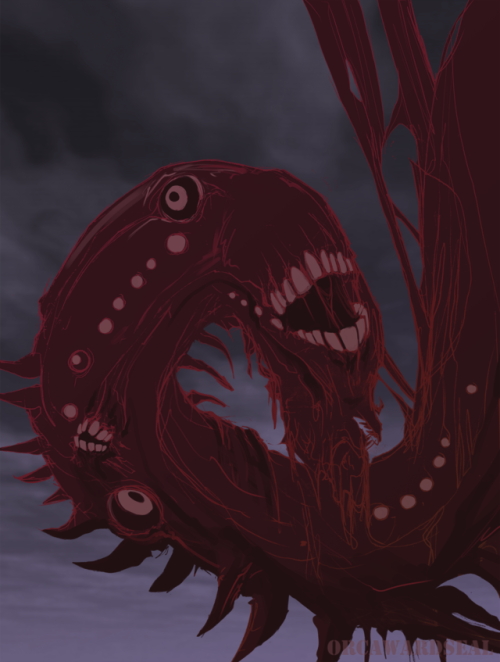



The Dual Warped
The youngest of the Star touched, these individuals are a direct result of the massive diversification that the Star Touched have gone through over the years. Individuals that looked at the oldest of the Star Touched, they have gained a unique insight into the causes and functions of their abilities, becoming something of a hybrid of the Twisted Artisans, and Abominations, splitting the influence of their powers between their mind, body and soul.
Individuals who often seek out their own paths in life, their insanity has become the core of their personality, being the base of what it is built upon, instead of twisting it. Often having nonsensical views of the world, they are not inherently harmful to others, and can be of good alignments in cases where their insanity doesn’t inspire mindless bloodlust, and can be of evil alignments when they have built up bloodthirsty personalities that aren’t interfered with by nonsensical fantasies. Most, however, walk the path of some form of neutrality, rither living by a skewed code of ethics, living without a care for law or chaos, or causing chaos for the sake of it, harmful or otherwise.
Crazy is my personality
Whatever effect of madness you had picked during character creation is now permanently, and can only be removed by a wish spell. What’s more, instead of having your actions being affected by your madness, they revolve around it. Your identity is built upon that flaw, and without, you would be lost.
Friendly, ugly spirits
You gain aberrant spirits that occasionally manifest during times of rest, or when you call upon them. Unlike the mad artisans however, these spirits can in fact interact with the material plane, but only in limited ways. They also do not cause any creative impulses, and are normally only visible to you. They make no sounds, but communicate via sensations, and occasionally during dreams.
Evolving shadow
Like Twisted Artisans, your shadow gains unnatural elements to it, however, these elements are far more extreme and physical, with your shadow getting stronger as you do.
Shifting Form
Like the Aberrants of Flesh, you are able to twist your limbs into natural weapons, but are unable to gain the finesse to alter your body in any way beyond that.




Spiritual Guardians
At 3rd level you can bring your spirits into battle. As an action, you can target one creature for your spirits to harass, Until the start of your next turn, that target has disadvantage on any attack roll that isn't against you, and when the target hits a creature other than you with an attack, that creature has resistance to the damage of the target’s attacks.
Also at 3rd level, you cannot be made to dream by any means, when you choose this Eldritch Emergence at 3rd level. You can still be put to sleep however.
Shadow Hound
Starting at 3rd level, your shadow can split from you and transform into a hound of pure darkness. Most of the time, your shadow hound masquerades as your normal shadow. As a bonus action, you can command it to magically slip into the shadow of a creature you can see within 60 feet of you. While the shadow hound is merged in this manner, the target can’t gain the benefits of half cover or three-quarters cover against your attack rolls, and you know the distance and direction to the target even if it is hidden. The hound can’t be seen by anyone but you and those with truesight, and it is unaffected by light. The target has a vague feeling of dread while the hound is present. As a bonus action, you can command your shadow hound to return to you. It also automatically returns to you if you and the target are on different planes of existence, if you’re incapacitated, or if Dispel Magic, Remove Curse, or similar magic is used on the target. Additionally, while your shadow hound is split from you, you cast no shadow.
Creatures can notice your lack of a shadow if they pass a DC 12 wisdom(perception) check. Any creatures that notice your lack of a shadow immediately becomes wary and distrustful of you.
Extreme Shifts and Subtle Adaptations
Starting at 3rd level, you have gained the ability to form natural weapons. You are unable to cast the Alter Self spell when you choose this eldritch emergence. Any clothing or armor you wear must be specially made to accommodate any shifting you do, otherwise it is destroyed. Alternatively, you could wear rags or an easily removed robe.
At 3rd level you have access to the following extreme shifts. It takes an action to form and unform a shift. You cannot shift from one option to the next, you must unform a current shift to use another.


Extreme Shifts
| Shift | Description | Effect |
|---|---|---|
| Claws | You grow claws, which count as two seperate weapons. | Each claw deals 1d6 slashing damage. If you already have claws as natural weapons, the damage die turns to a d8. |
| Horns | You sprout horns, which allows you to make a charging attack if you dash at least 10ft. at a target. | The charging attack deals 1d8 bludgeoning damage. If you already have horns as a natural weapon, the damage die becomes a d10. |
| Antlers | You sprout antlers, allowing you to make a goreing attack. | Deals 1d4 piercing damage. You can shove the target back 10ft. if it fails a strength save. |
| Hooves | Your legs become digitigrade and your feet twist into hooves, increasing your speed and letting you make a trampling attack if the target is knocked down or prone. | Your movement increases speed by 5ft.The trampling attack deals 1d10 bludgeoning damage. If you already have hooves as natural weapons, your movement speed is increased by 10ft. instead. |
| Arm blade | Your arm shifts into a blade, preventing you from using it for anything other than an attack. | The blade deals 1d8 slashing damage on a hit. |

Extreme Shifts
| Shift | Description | Effect |
|---|---|---|
| Fanged maw | Your head transforms into a fanged maw, giving you a bite attack. | The bite attack deals 1d4 piercing damage. If you already have a bite attack as a natural weapon, the d4 becomes a d6. |
| Slicing madibles | Your mouth sprouts two razor sharp mandibles which lets you use your bonus action to make one cutting attack. | The cutting attack deals 1d4 slashing damage. If you have a bite attack due to a naturel weapon, you can add 1d4 slashing damage to it instead. |
| Stabbing tongue | Your tongue extends and gains a barb at the end. | You can use your reaction to lash out with your tongue, dealing 1d4 piercing damage on a hit. It has a range of 10ft. |
| Slashing talons | Your legs become digitigrade and your feet twist into having three toes, one of which is held above the others and is sickle shaped, increasing your jumping range and letting you make a slashing attack, and a pounce attack. | You can jump an additional 5ft. You can use a bonus action to make a slashing attack, which deals 1d6 slashing damage on a hit. You can attempt to make a pouncing attack, which requires you to dash 10ft., jump, and the creature failing a strength(athletics) or dexterity(acrobatics) save. On a failure it is knocked prone. |
| Enlarged arm | One of your arms becomes grotesquely enlarged. It cannot be used for anything other than attacking. | When you make an unarmed attack, it deals 1d8 bludgeoning instead. |
Extreme Shifts
| Shift | Description | Effect |
|---|---|---|
| Enhanced forearms | Your forearms extend slightly and increase in muscle. You cannot hold weapons. | When you make an unarmed attack you deal 2d4 bludgeoning damage instead. You can use your bonus action to make an additional attack. |
| Split tendrils | Each of your arms split into 1d6 bladed tendrils, to a maximum of six, and preventing you from doing anything other than attacking if you shift more than 3 tendrils. | When you hit with your tendril attack you deal 1d4 slashing damage on a hit for every tendril you manifested. If you have more than 1 tendril, you subtract 2 from the number you rolled when rolling to hit, but you can’t go below 1. |
| Sprouted tendrils | Your stomach or back spouts 1d4 tendrils, which lets you use a battering attack. | You can choose a number of targets equal to the number of tendrils you have, you may make one attack against each. You deal 1d4 bludgeoning damage on a hit, and have a range of 10ft. |
You can have a total of two shifts active, but you cannot use shifts that conflict with each other, like the “split tendrils” shift and the “claws” shift, which both affect both of your arms, but you can use the “enlarged arm” shift with the “arm blade” shift since both only affect one arm. All shifts count as natural weapons, you are considered proficient with them, and you can use your intelligence, wisdom, or charisma modifier (whichever is highest at any point of time) instead of strength modifier when rolling to hit and damage.
Enhanced Unnatural casting
At 6th level your unique insight on your powers expand your innate casting abilities. You know the Minor Illusion cantrip, and can cast it at will. You can also cast the Disguise Self and Invisibility twice. You must finish a short or long rest to cast these spells again with this Feature. You do not need material components to cast these spells. You can use your Intelligence, Wisdom, or Charisma modifier to cast these spells, with each modifier granting different effects;
- Intelligence: The spell’s duration is doubled.
- Wisdom: The spell does not require verbal components.
- Charisma: The spell does not require somatic components.
Aberrant Shield
Beginning at 6th level, the Aberrant spirits that aid you can provide supernatural protection to those you defend. If you can see within 30 feet of you takes damage, you can use your reaction to reduce that damage by 2d4 + your charisma modifier.
You can use this feature three times before needing to take a short or long res
Extra attack
At 6th level, whenever you take the attack option, you can attack twice instead of once.
Shadow shifting
At 6th level, your shadow has become strengthened enough to begin physically interacting with the material world, and you have gained enough control over it to mold its shape and form. You can use these following options by using your action;
- Wings: You wear your shadow in the form of either raven, or bat wings (your choice). You gain a flying speed of 60ft.
- Writhing shadows: You create an aura of constantly lashing shadows around your self. You can use a bonus action on your turn to cause the shadows in the aura to attack one creature. Make a melee spell attack against the target. If the attack hits, the target takes necrotic damage equal to 1d10 + your Intelligence modifier. Afterwards, your shadow goes back to you.
- Solid shield: You shadow rises and petals around you, giving you a +2 to your AC.
- Obscuring Shadows: You use your shadow to obscure you and a number of creatures equal to your intelligence modifier. Creatures that rely on sight have disadvantage when attempting to attack you or those you have chosen.
- **Grabbing Shadows: You spread your shadow over the ground in a 20-foot square starting from a point within range. For the duration, your shadow turns the ground in the area into difficult terrain. A creature in the area when you cast your shadow must succeed on a Strength saving throw or be restrained by the entangling tendrils of murky shadow for 3 turns. A creature restrained by your can use its action to make a Strength check against your aberrant die DC. On a success, it frees itself. When a creature frees itself, or when the 3 turns are up, your shadow goes back to you.
- Impaling Darkness: Your shadow suddenly leaps out to impale creatures you see up to your Intelligence Modifier. Creatures chosen must pass a dexterity(acrobatics) save or take 1d6 piercing and 1d4 necrotic damage. Afterwards, your shadow goes back to you.
- Soothing Night: Your shadow gently envelopes a number of creatures equal to your Wisdom modifier. These creatures can be healed a total number of hit points equal to your level, or you can choose to end one condition they are afflicted with. Afterwards, your shadow goes back to you.
- Dark Blade: Your shadow forms a sword of pure darkness, you use your charisma modifier to hit with it. On a hit, you deal 1d8 psychic damage + your charisma modifier.
- Black Cloak: You wear your shadow like a cloak, which lets you freely shift it into any two extreme shifts that you have available as it develops the necessary parts. These extreme shifts deal an additional 1d4 necrotic damage. You may also attack with one when you make an attack with one of your actual extreme shifts as a part of the same action.
- Black Hound: Your shadow hound takes physical form, becoming a vaguely lupine creature made of writhing shadows and tendrils. It uses the shadow mastiff stat block with the following changes;
- It appears with a number of temporary hit points equal to half your Star Touched level.
- It can move through other creatures and objects as if they were difficult terrain. The hound takes 5 force damage if it ends its turn inside an object.
- It has 2 of your shadow shifts active, gaining the features granted by them, but can not use the Dark blade, Soothing night, impaling darkness, grabbing shadows, or obscuring shadows shadow shifts.
All options continue to exist until they have been called back, unless otherwise stated. You can only use one of these options at a time, but you can use any feeel with your extreme shifts.
Mantle of the Dead
At 12th level, you gain the ability to adopt a humanoid's persona. When a humanoid dies within 30 feet of you, you can use your shadow to devour its shadow using your reaction. You retain this devoured shadow until you use it or you finish a long rest.
You can use the devoured shadow as an action. When you do so, it vanishes, magically transforming into a disguise that appears on you. You now look like the dead person, but healthy and alive. This disguise lasts for 1 hour or until you end it as a bonus action.
While you're in the disguise, you gain access to all information that the humanoid would freely share with a casual acquaintance. Such information includes general details on its background and personal life, but doesn't include secrets. The information is enough that you can pass yourself off as the person by drawing on its memories.
Another creature can see through this disguise by succeeding on a Wisdom (Insight) check contested by your Charisma (Deception) check. You gain a +5 bonus to your check.
Once you capture a shadow with this feature, you can't capture another one with it until you finish a short or long rest.
Aberrant counsel
At 12th level, you gain the ability to consult with your aberrant spirits. When you do so, you cast the Augury or Clairvoyance spell, without using a spell slot or material components. Rather than creating a spherical sensor, this use of Clairvoyance invisibly summons your aberrant spirits to the chosen location. Wisdom is your spellcasting ability for these spells.
After you cast either spell in this way, you can’t use this feature again until you finish a short or long rest.


Aberrant and Shadowy transformations
At 16th level, you gain the ability to transform into three different forms, either super-charging your body with your aberrant powers, merging fully with your shadow, or being possessed by your spirits.
Shadow form
our appearance is whatever you wish it to be, but it must be vaguely similar to your race. You use the Alip stat block with the following changes;
- Your creature type changes to aberration.
- Your alignment doesn’t change.
- You can freely choose up to 4 shadow shifts, and you can now use a bonus action to do so.
- Your hit points and AC stay the same as they were.






Beast form
Your appearance is that of a large, lumbering beast. You use the Umber Hulk stat block with the following changes;
-
Your creature tyoe changes to aberrant.
-
Your intelligence score doesn’t change.
-
You choose any four extreme shifts, obeying all of the restrictions, and gaining the attacks from each one, you also now use either your Strength or dexterity modifier to hit and damage with them.
-
Your alignment does not change.
Spirit form
Your appearance is that of a strange mix between spider, wolf, and snake with three tentacles You use the Otyugh stat block with the following changes;
- Your proficiency bonus still applies.
- You lose the limited telepathy trait.
- Charisma and Intelligence scores become 10.
- You can still choose one shadow shift and 2 extreme shifts, following all restrictions.
- Your hit points do not change.
- Your AC does not change.
- Your alignment does not change.
- Your size doesn’t change.
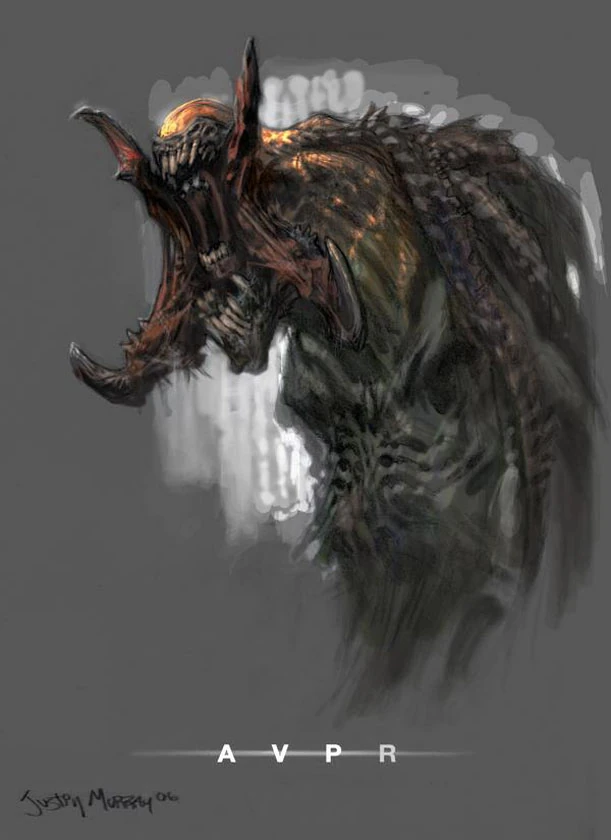



You can stay Transformed for a number of hours equal to half your Star touched level (rounded down). You then revert to your normal form. You can revert to your normal form earlier by using a bonus action on your turn. You automatically revert if you fall unconscious, drop to 0 hit points, or die. Any damage that is more than your current hit points in your transformed state is carried over to you.
Whenever you transform, your equipment merges with you, but gives you no effect.
You may only use this feature once per long rest.
All attacks made by you are considered magical when overcoming resistances and immunities.
Body, Mind, and Spirit
At 20th level you gain the ability to combine all three methods of transformation, creating a creature of incredible power.
Your appearance is up to you to decide. You use the Boneclaw stat block with the following changes;
- Your creature type changes to aberrant.
- Your charisma becomes 19.
- You lose the Rejuvenation trait.
- You can use 4 shadow shifts and 4 extreme shifts at the same time, you can use a bonus action to do so.
- You rejenerate 1d8 at the start of your every turn.
- Your multi attack can use any attack granted by your extreme shifts and/or shadow shifts.
- Gains the Innate casting(psionics) feature;
- You gain access to the following spells and slots:
- Innate Spellcasting (Psionics). You are a 10th-level spellcaster. Your innate spellcasting ability is Intelligence (spell save DC 15; +7 to hit with spell attacks). You do not gain any additional effects when casting these spells. You can innately cast the following spells, requiring no components:
- At will: guidance, mage hand, vicious mockery, true strike
- 1st-level (4 slots): charm person, command, comprehend languages, sanctuary
- 2nd level (3 slots): crown of madness, phantasmal force, see invisibility
- 3rd level (3 slots): clairvoyance, fear, meld into stone
- 4th level (3 slots): confusion, stone shape
- 5th level (2 slots): scrying, telekinesis
Whenever you transform, your equipment merges with you, but gives you no effect.
You may only use this feature once per day, and your transformation lasts for 1 hour.



Occultist Spells
1st level
- Dissonant Whispers
- Arms of Hadar
- Bane
- Hex
- Wrathful Smite
- Silent Image
- Illusory Script
- Disguise Self
- Tasha's Hideous Laughter
- Cause Fear
- Witch Bolt
2nd Level
- Phantasmal Force
- Alter Self
- Mirror Image
- Invisibility
- Blur
- Detect Thoughts
- Misty Step
- Mind Spike
- Web
- Ray of Enfeeblement
- Crown of Madness
- Hold Person
3rd Level
- Fear
- Hypnotic Pattern
- Major Image
- Hunger of Hadar
- Speak with Dead
- Stinking Cloud
- Vampiric Touch
- Enemies Abound
- Bestow Curse
4th Level
- Greater Invisibility
- Hallucinatory Terrain
- Phantasmal Killer
- Staggering Smite
- Blight
- Confusion
- Evard's Black Tentacles
- Shadow of Moil
- Sickening Radiance
- Confusion
- Mordenkainen's Faithful Hound
5th Level
- Dream
- Mislead
- Cure Baldness
- Seeming
- Cloudkill
- Contagion
- Insect Plague
- Synaptic Static
- Modify Memory
- Immolation
- Enervation
6th Level
- Programmed Illusion
- Mental Prison
- Eyebite
- Harm
- Tenser's Transformation
- Soul Cage
- Flesh to Stone
- Circle of Death
7th Level
- Mirage Arcane
- Project Image
- Simulacrum
- Power Word Pain
- Crown of Stars
- Etherealness
- Teleport
8th Level
- Abi-Dalzim's Horrid Wilting
- Maddening Darkness
- Power Word Stun
- Feeblemind
9th Level
- Weird
- Psychic Scream
- Power Word Kill
Gaurdian of the gate Spells
1st level
- Color Spray
- Disguise Self
- Illusory Script
- Silent Image
- Detect Evil and Good
- Detect Magic
- Hunter's Mark
- Hex
- Protection from Evil and Good
- Searing Smite
- Thunderous Smite
- Wrathful Smite
- Unseen Servant
2nd Level
- Invisibility
- Magic Mouth
- Mirror Image
- Phantasmal Force
- Silence
- Shadow Blade
- Branding Smite
- Enhance Ability
3rd Level
- Fear
- Hypnotic Pattern
- Major Image
- Phantom Steed
- Blinding Smite
- Dispel Magic
- Elemental Weapon
- Thunder Step
- Slow
- Gaseous Form
4th Level
- Greater Invisibility
- Hallucinatory Terrain
- Phantasmal Killer
- Staggering Smite
- Dimension Door
- Freedom of Movement
5th Level
- Creation
- Dream
- Mislead
- Seeming
- Banishing Smite
- Telekinesis
Rapturous Priest Spells
1st level
- Dissonant Whispers
- Arms of Hadar
- Bane
- Dissonant Whispers
- Hex
- Wrathful Smite
- Silent Image
- Illusory Script
- Disguise Self
- Tasha's Hideous Laughter
- Cause Fear
- Witch Bolt
- Dissonant Whispers
- Arms of Hadar
- Bane
2nd Level
- Phantasmal Force
- Alter Self
- Mirror Image
- Invisibility
- Blur
- Detect Thoughts
- Misty Step
- Mind Spike
- Web
- Ray of Enfeeblement
- Crown of Madness
- Hold Person
3rd Level
- Fear
- Hypnotic Pattern
- Major Image
- Hunger of Hadar
- Speak with Dead
- Stinking Cloud
- Vampiric Touch
4th Level
- Greater Invisibility
- Hallucinatory Terrain
- Phantasmal Killer
- Staggering Smite
- Blight
- Confusion
- Evard's Black Tentacles
- Shadow of Moil
- Sickening Radiance
- Mordenkainen's Faithful Hound
5th Level
- Dream
- Mislead
- Seeming
- Cloudkill
- Contagion
- Insect Plague
- Synaptic Static
- Modify Memory
- Immolation
- Enervation
6th Level
- Programmed Illusion
- Mental Prison
- Eyebite
- Harm
- Tenser's Transformation
- Soul Cage
- Flesh to Stone
- Circle of Death
7th Level
- Mirage Arcane
- Project Image
- Simulacrum
- Power Word Pain
- Crown of Stars
- Etherealness
- Teleport
8th Level
- Abi-Dalzim's Horrid Wilting
- Maddening Darkness
- Power Word Stun
- Feeblemind
9th Level
- Weird
- Psychic Scream
- Power Word Kill
- Irritate Peanut Butter Fairy
- Luminous Erruption of Tea
- Astral Rite of Acne
Credits
- Image 1= by Eva Widermann
- Image 2= by Mark Burns
- Image 3= by Gregory Adams
- Image 4= by Julian from Poole
- Image 5= Capcom, Mercenary Technology
- Image 6= by Wizards of the Coast
- Image 7= by EGOR-URSUS
- Image 8= by blackstarsshine
- Image 9= by mechasamurai
- Image 10= by Kade Khan
- Image 11= by David LaRocca
- Image 12= by Brian Wade
- Image 13= by Roowodock
- Image 14= by Brian Wade
- Image 16= by @Eldritch_Sign
- Image 17= by Halycon450
- Image 18= by chankljp
- Image 19= by Ralph Horsley
- Image 20= by Jae Lee
- Image 21= by Steve Maschuck
- Image 22= by Tango Gameworks, Bethesda Softworks
- Image 23= by Dave Rapoza
- Image 24= by Aaron Poole, Kenneth Welsh
- Image 25= by Josh Lewis
- Image 26= by Rob-Joseph
- Image 27= by Victorisdrawing
- Image 28= by Bethesda
- Image 29= by Cory Trego-Erdner
- Image 30= by Cory Trego-Erdner
- Image 31= by Cory Trego-Erdner
- Image 32= by Cory Trego-Erdner
- Image 33= by Cory Trego-Erdner
- Image 34= by Adrián Prad
- Image 35= by ibroid
- Image 36= by 小島青 Ao Kojima
- Image 37= by ruinerhalo
- Image 38= by Leanna Russell
- Image 39= by Cameron Mark
- Image 40= by C0re1
- Image 41= by Dominik Mayer
- Image 42= by mobiusu14
- Image 43= by heathenly_aesthetic
- Image 44= by ProdigyDuck
- Image 45= by Rick Hefner
- Image 46= by Visceral Games, Electronic Arts
- Image 47= by Adrian Smith
- Image 48= by Jason Felix
- Image 49= by John Chiu
- Image 50= by Makato Sato
- Image 51= by Jack Rezz
- Image 52= by Makato Sato
- Image 53= by Adrian Smith
- Image 54= by Theocrata
- Image 55= by Richard Luong
- Image 56= by Michael Bukowski
- Image 57= by dant2906
- Image 58= by Guilherme Batista
- Image 59= by Adidas Phung
- Image 60= by Adidas Phung
- Image 61= by Adidas Phung
- Image 62= by Adidas Phung
- Image 63= by Adidas Phung
- Image 65= by Marko Djurdjevic
- Image 66= by Adidas Phung
- Image 67= by Adidas Phung
- Image 68= by gabrieldavis665
- Image 69= by Viktor Fetsch
- Image 70= by MorkarDFC
- Image 71= by e7rrz7
- Image 72= by Raymond Swanland
- Image 73= by Turtle Rock Studios
- Image 74= by Jensen Couch
- Image 75= by Yashy
- Image 76= by Matias Tapia
- Image 77= by notoforcasnadseals
- Image 78= by Konstatin Vavilov
- Image 79= by scontent
- Image 80= by Stephen Cornu
- Image 81= by Fei F. Ou
- Image 82= by Antonio José Manzanedo
- Image 83= by JustpyMurphy06
- Image 84= by TylerEdlinArt
- Image 85= By Funcom and Eidos Interactive
I own absoultly none of the art used
PDF was created useing The Homebrewery.
In cases where there wasn't a specific artist cited anywhere, publishers where used, i.e. concept art.